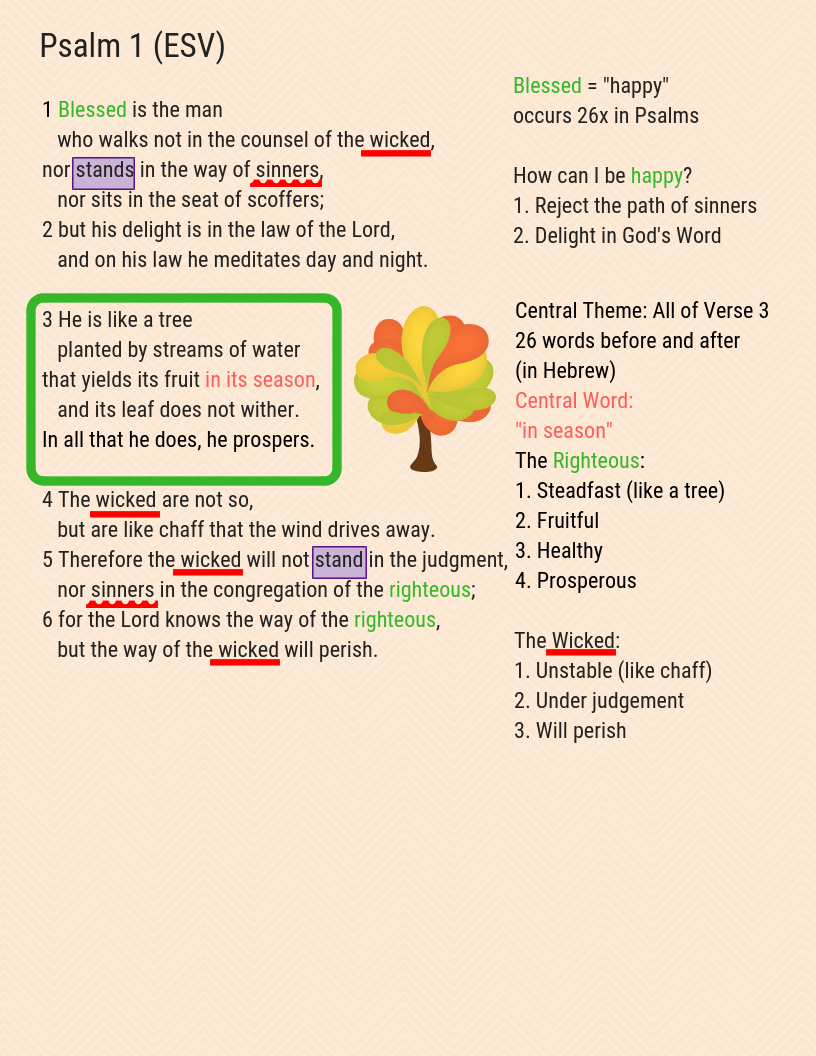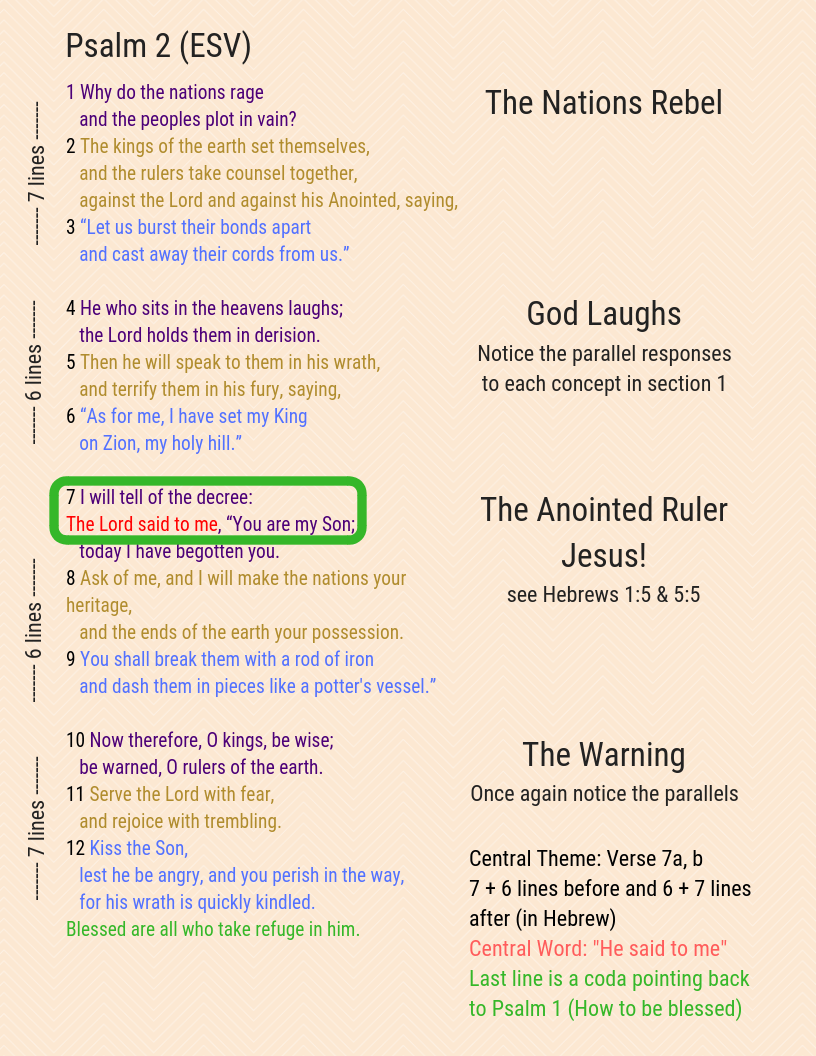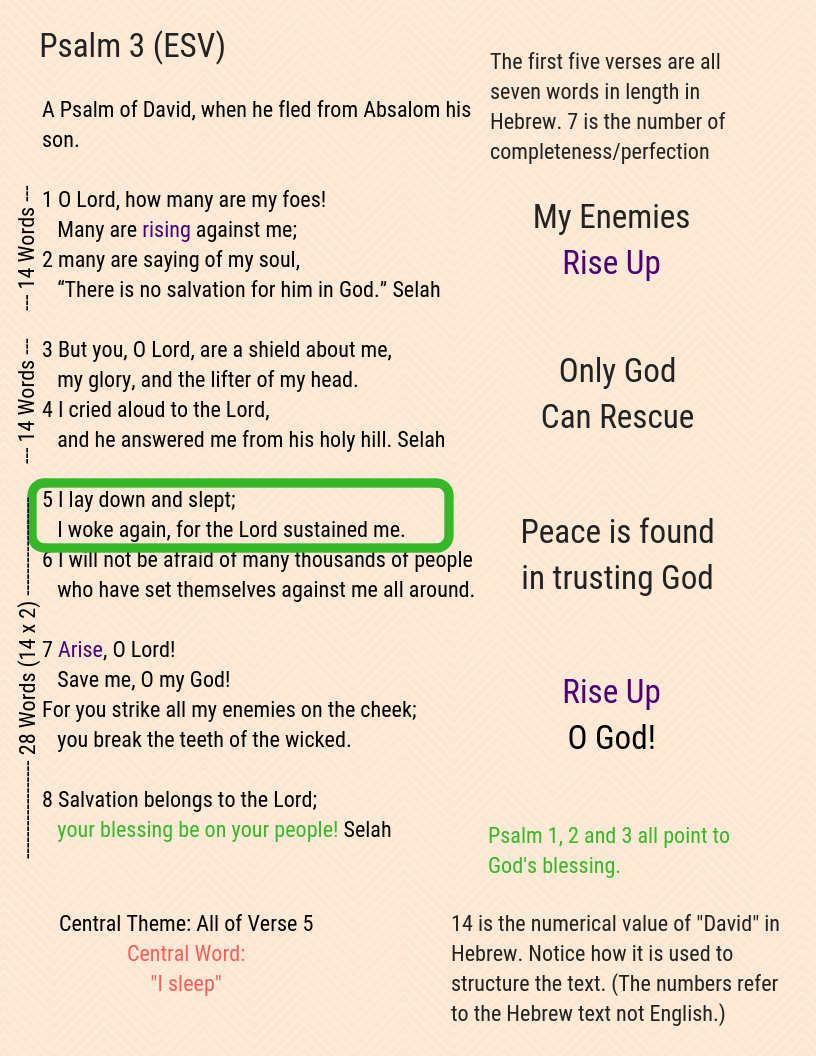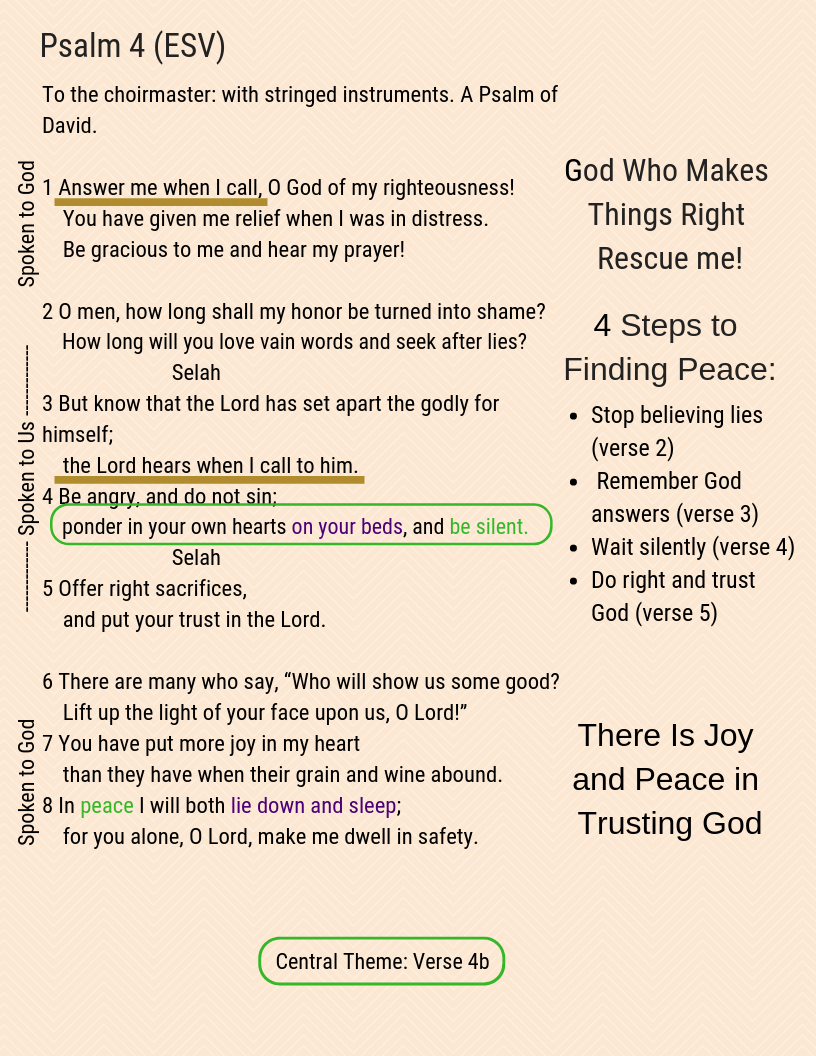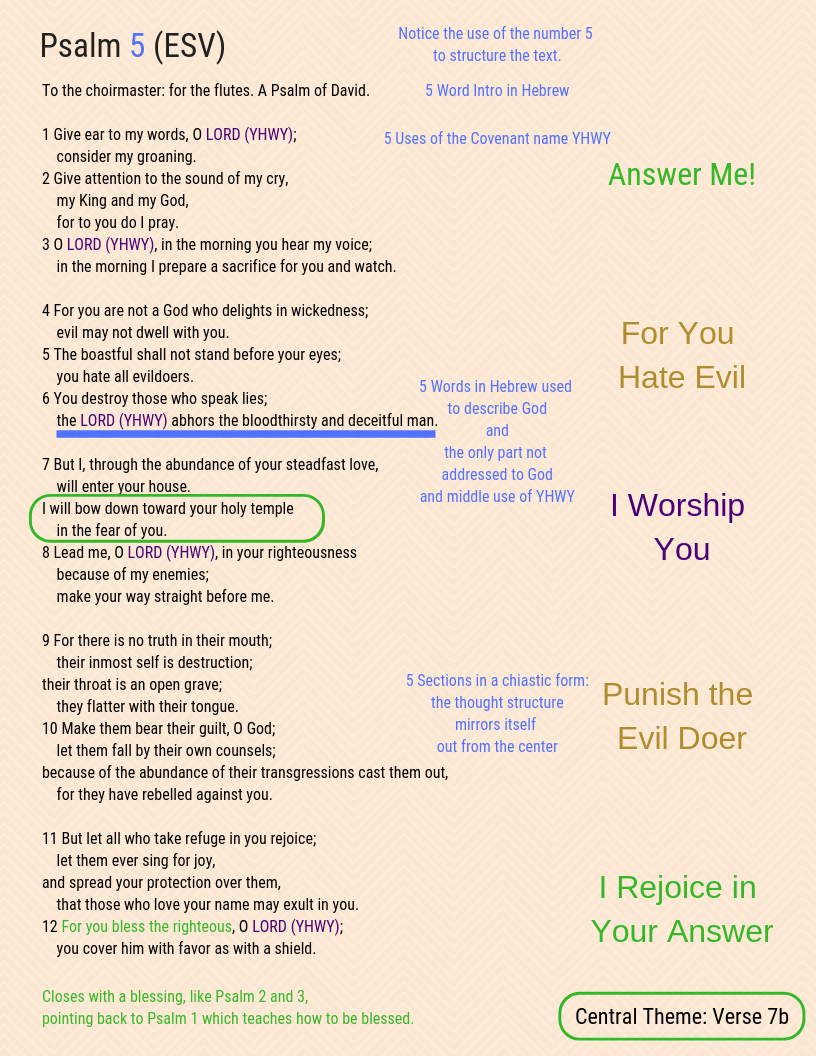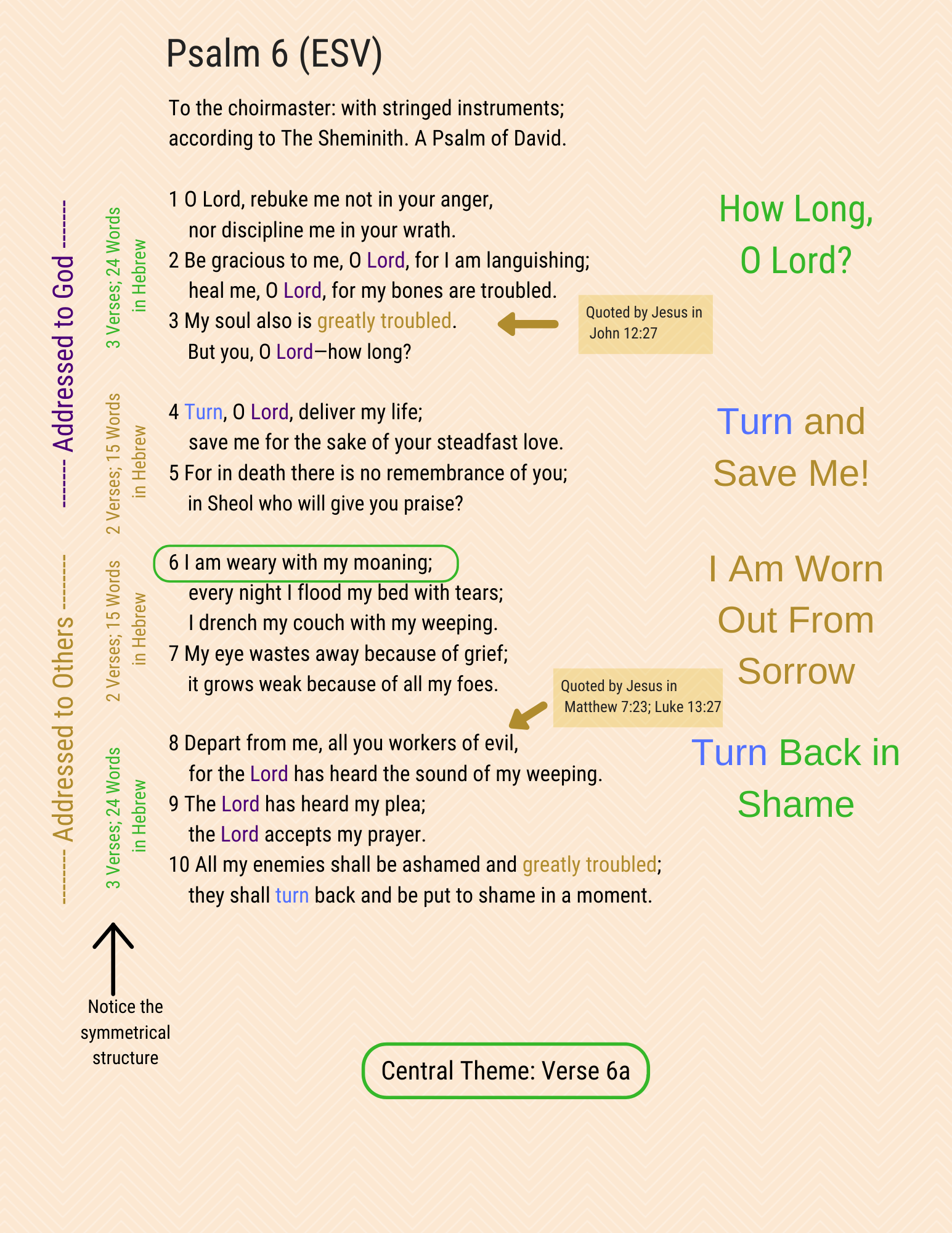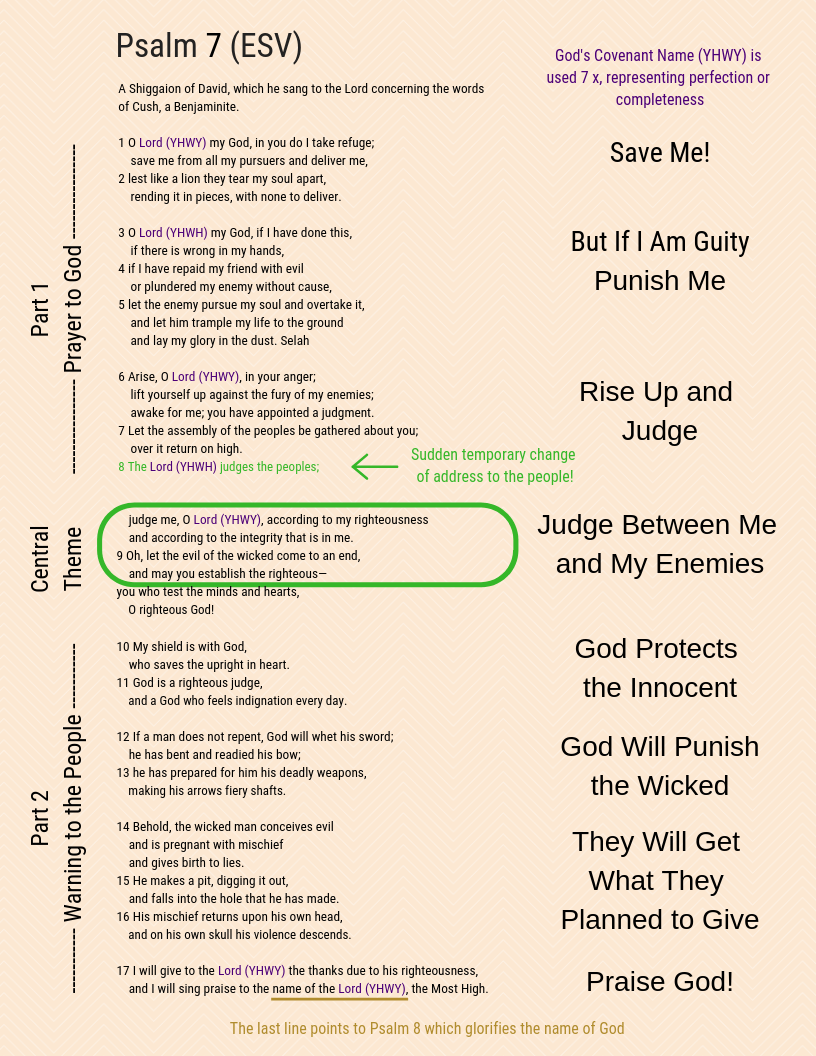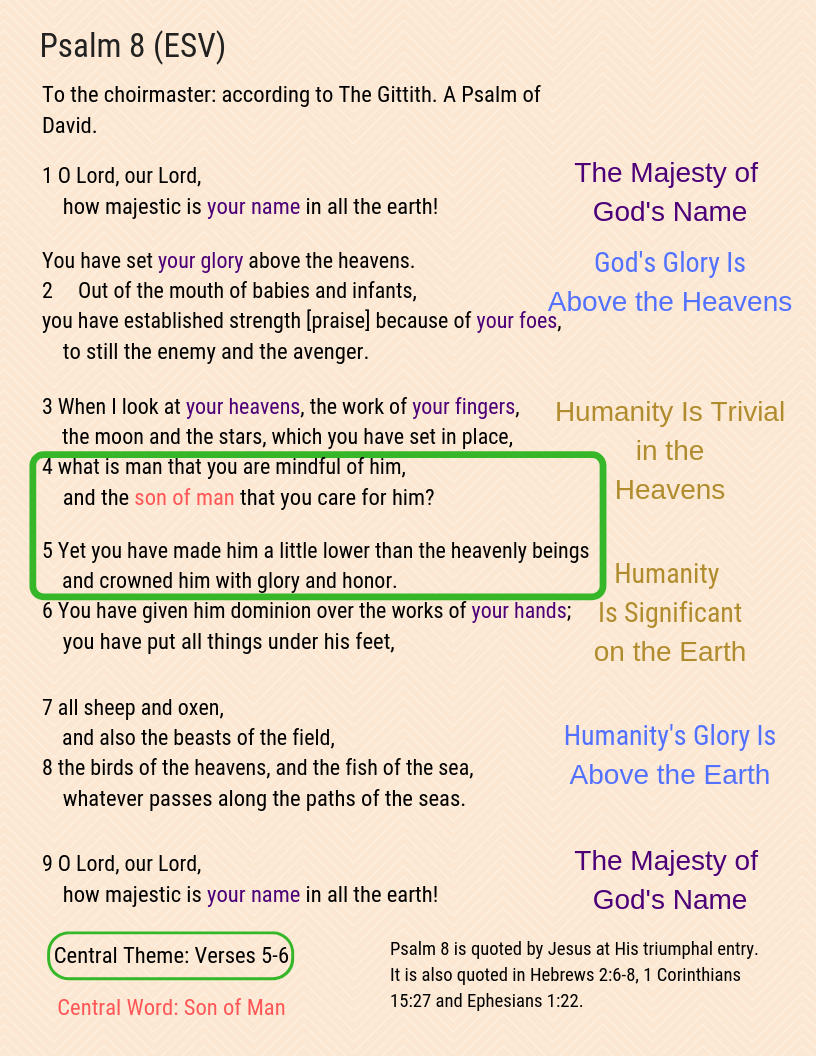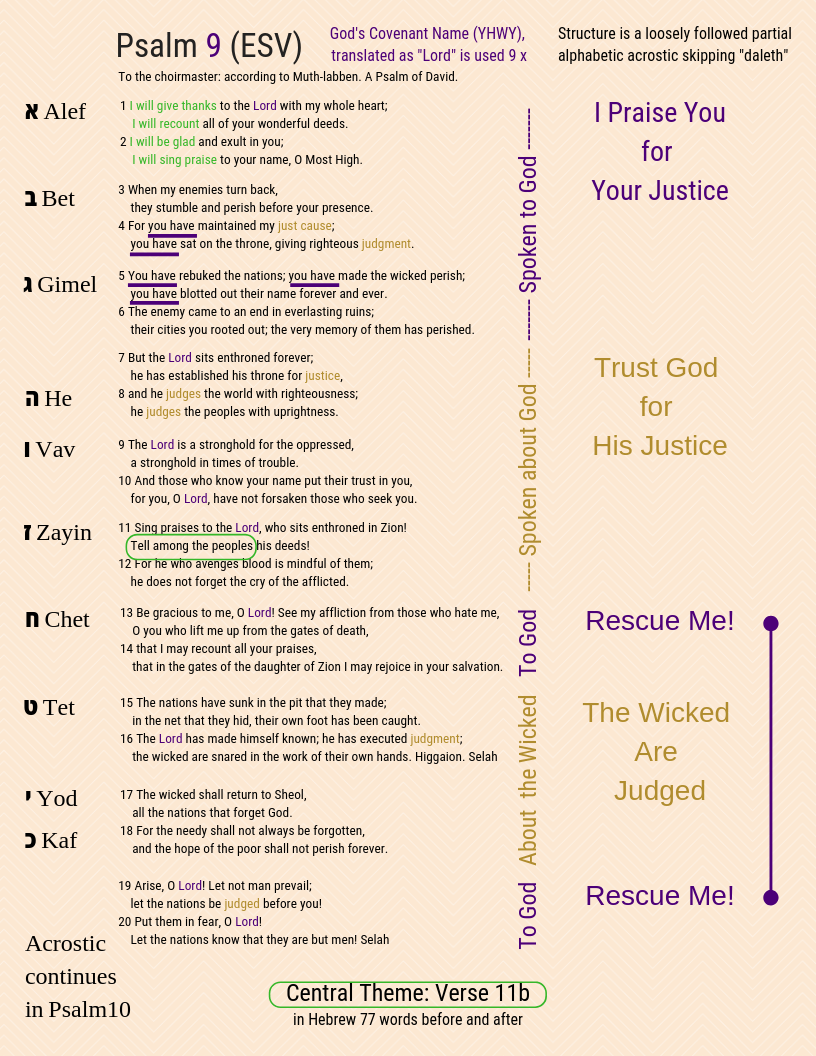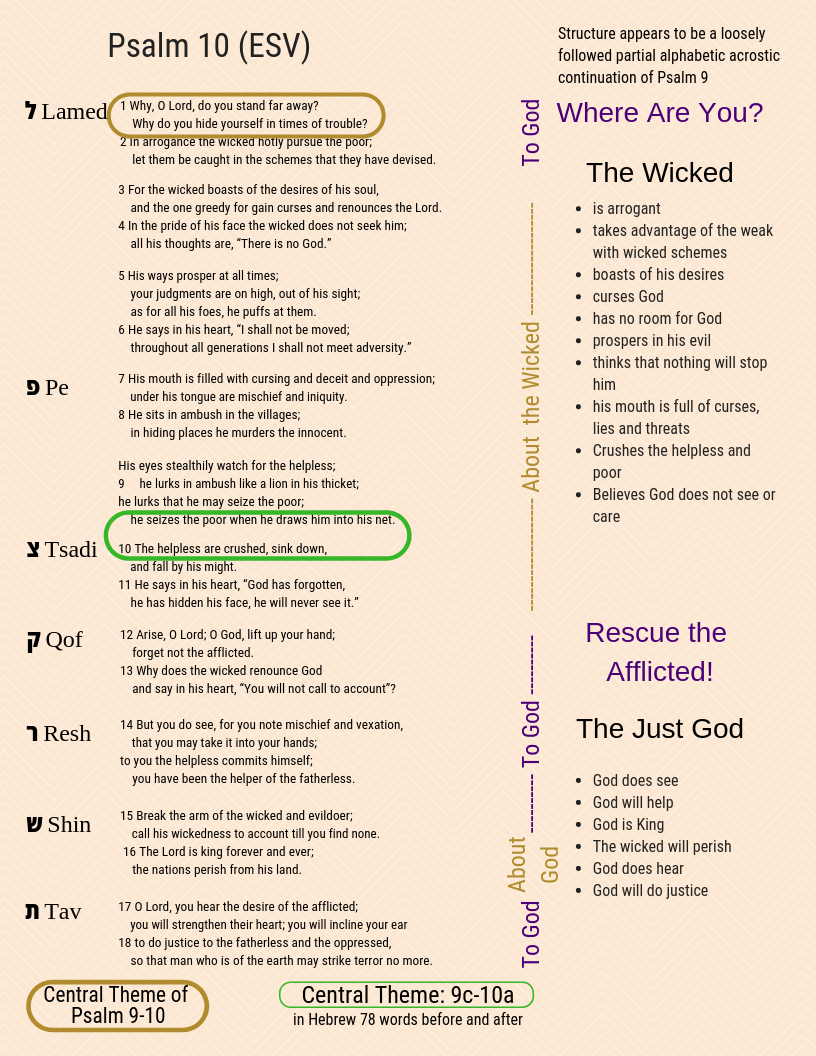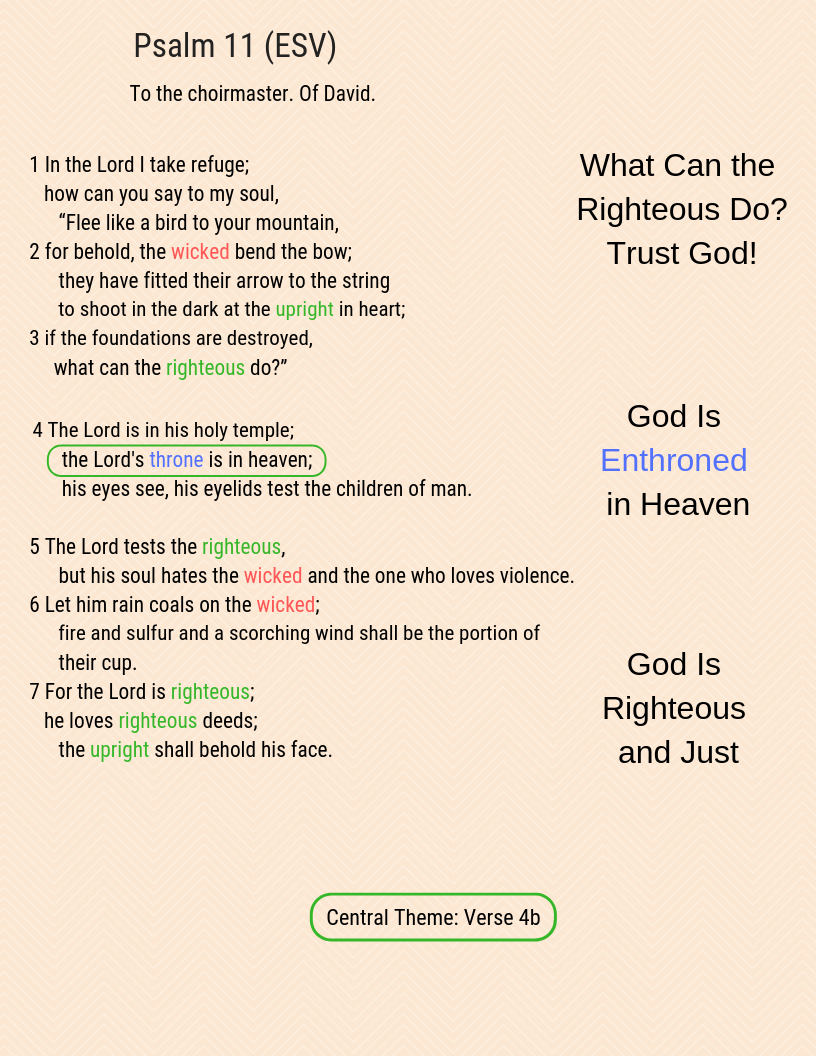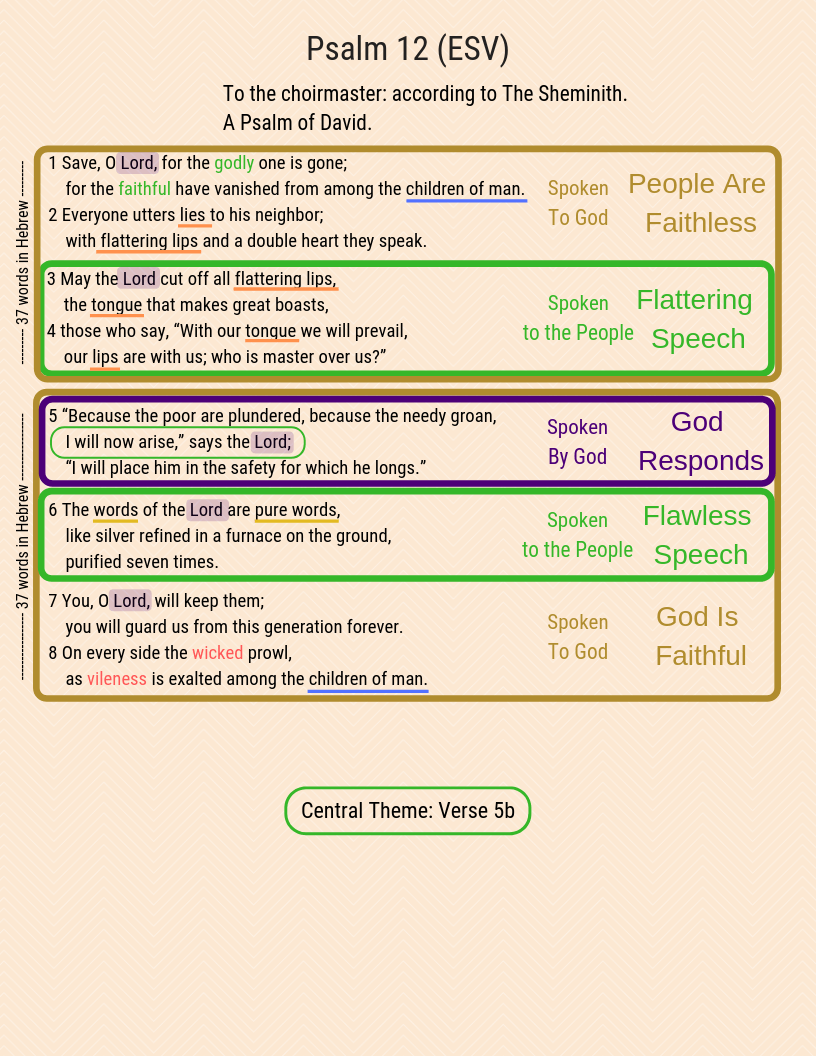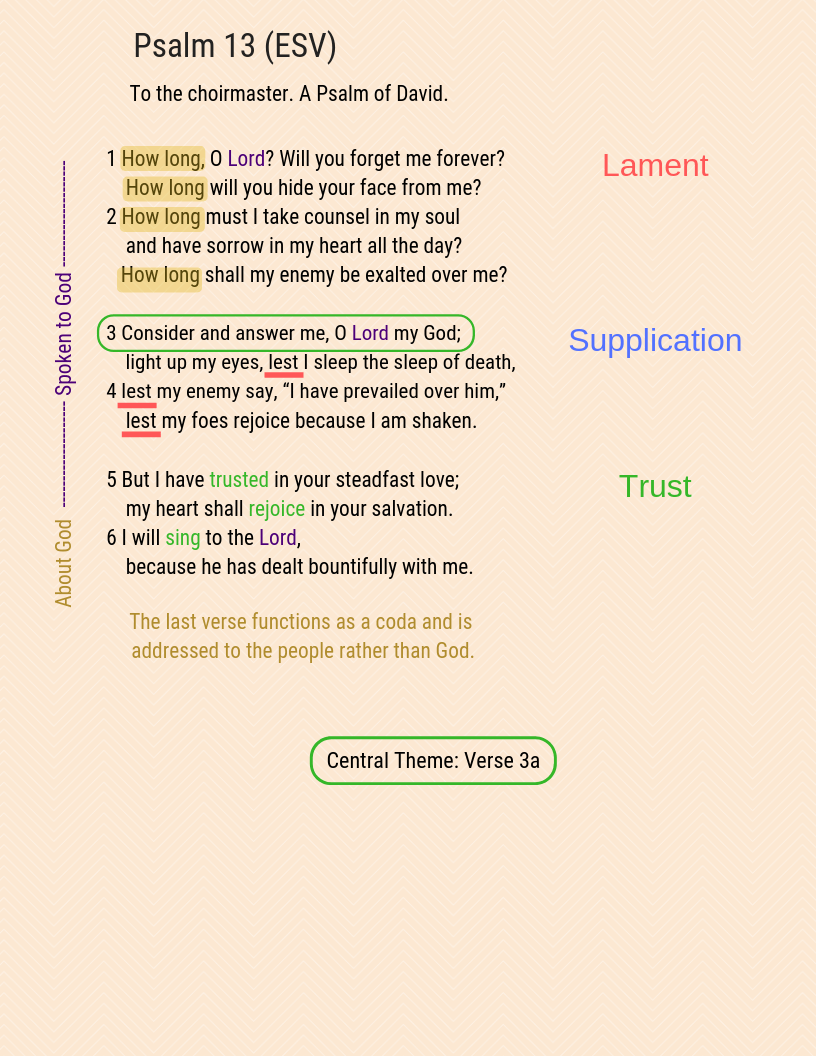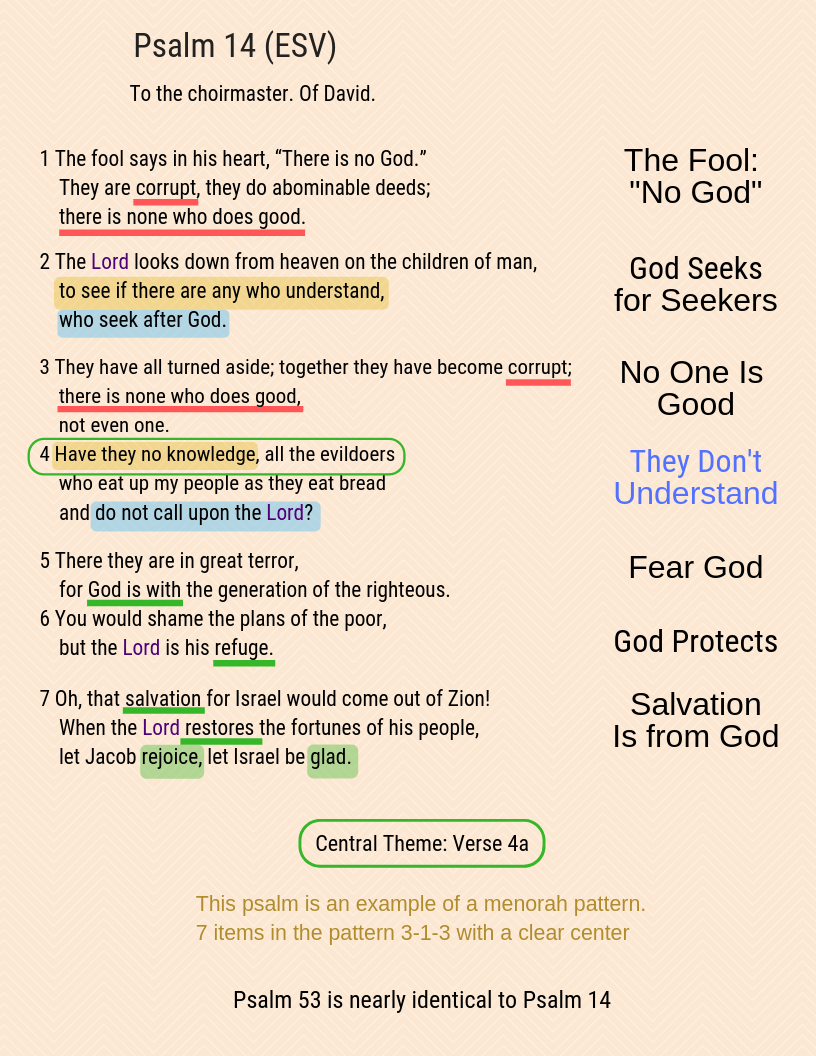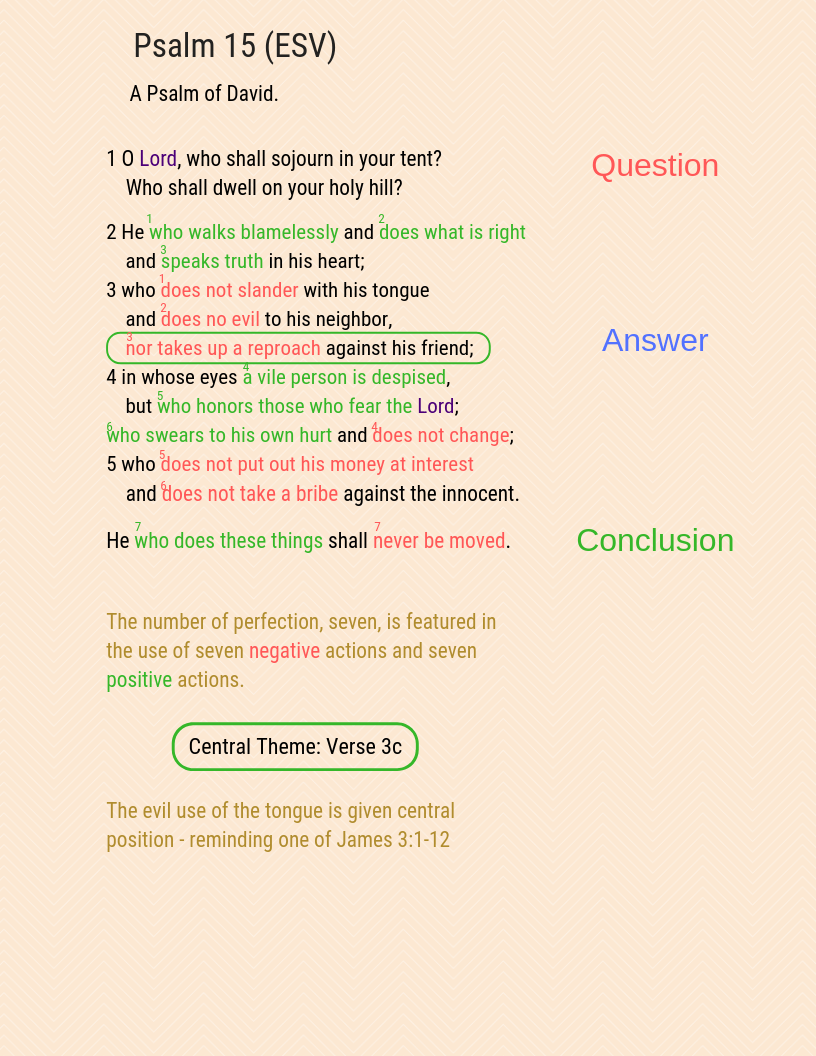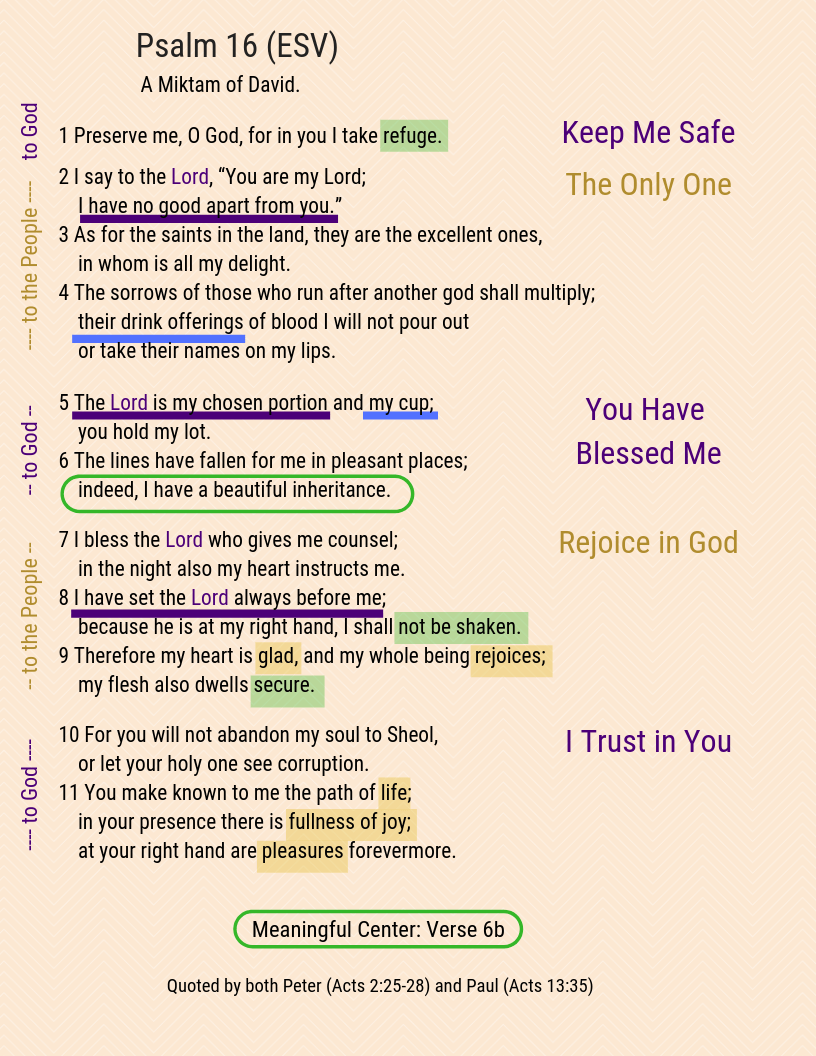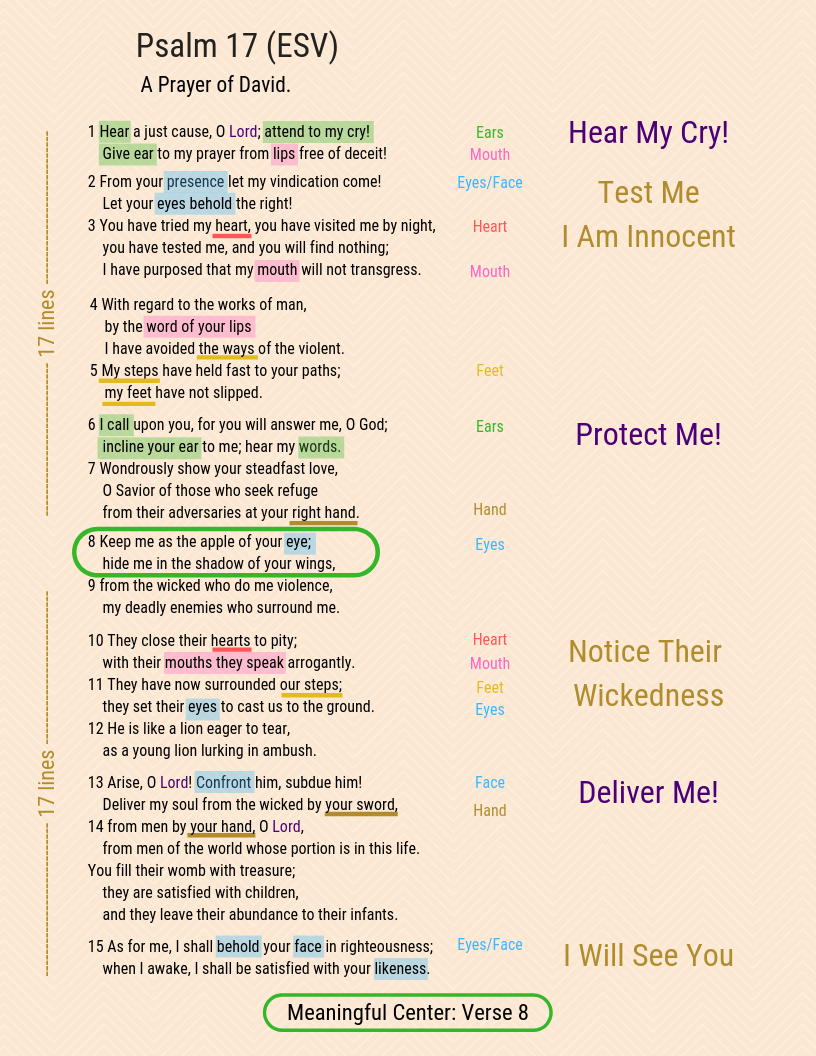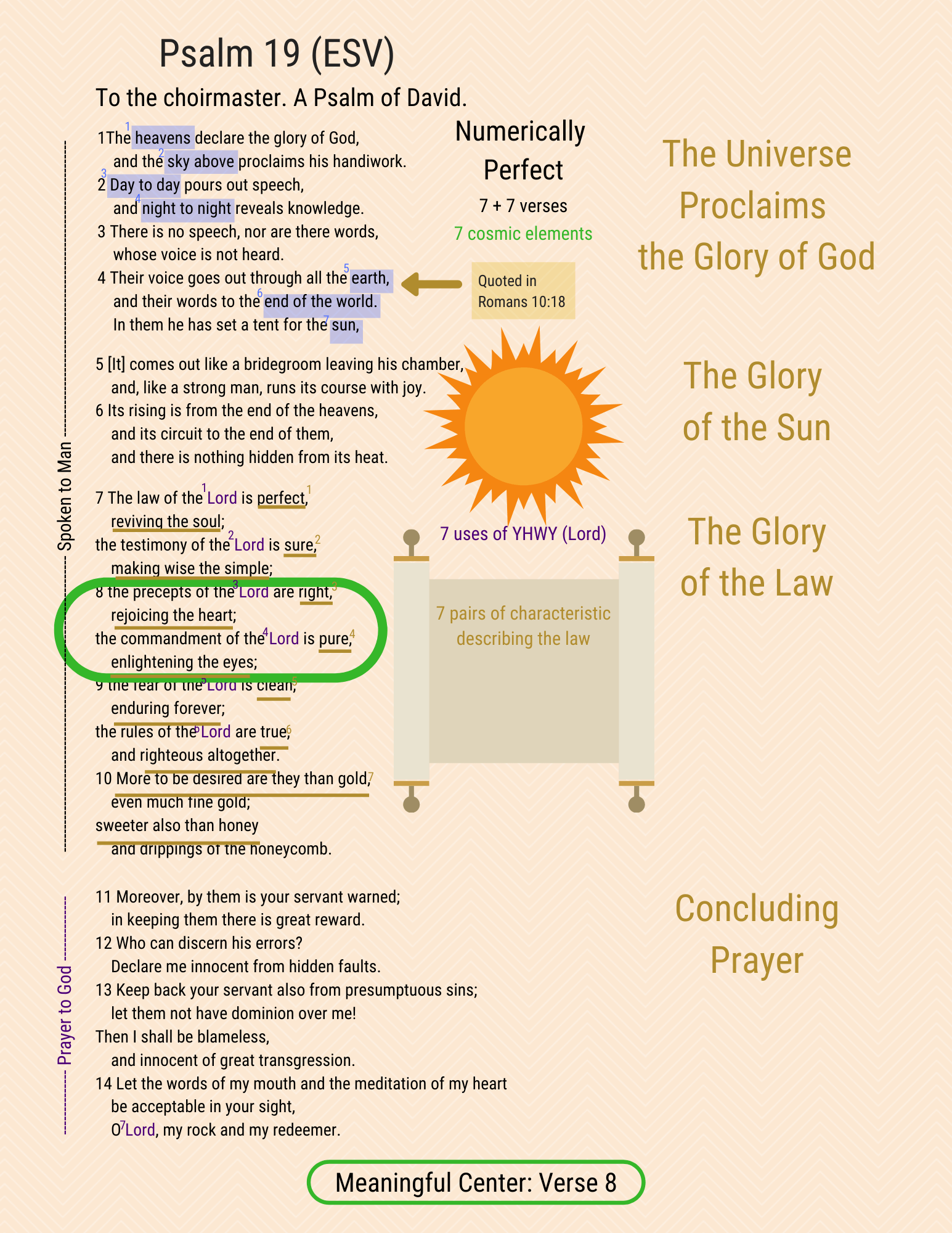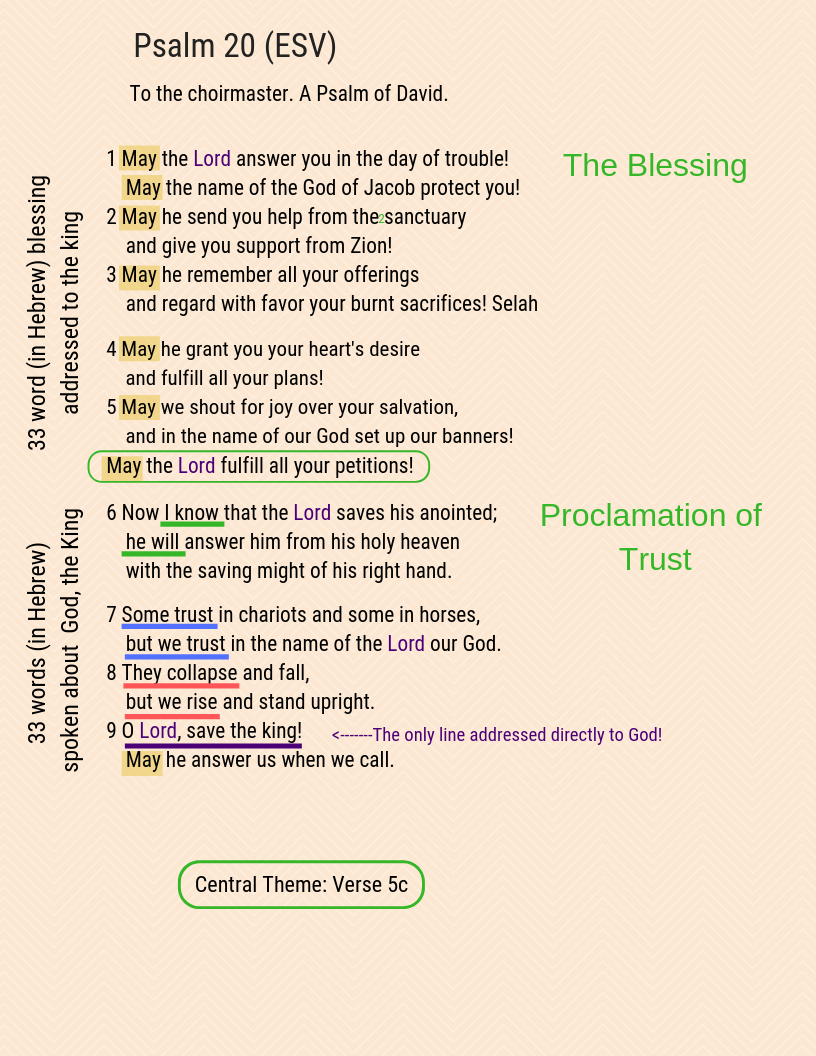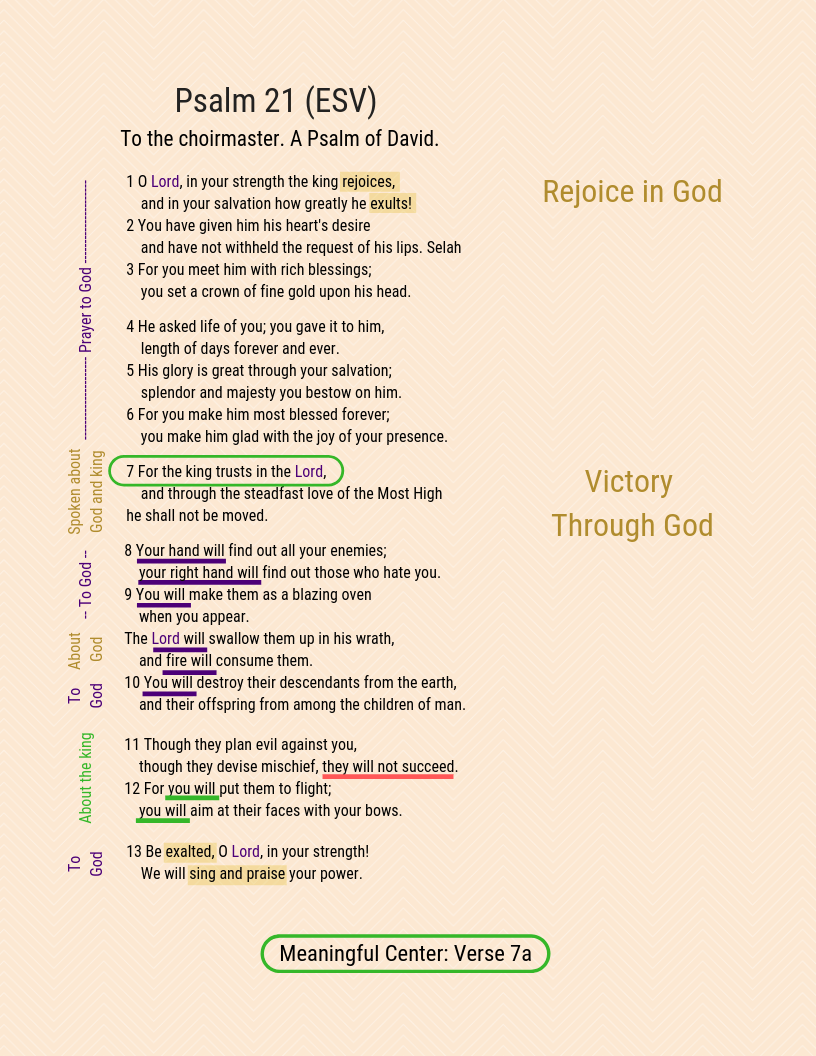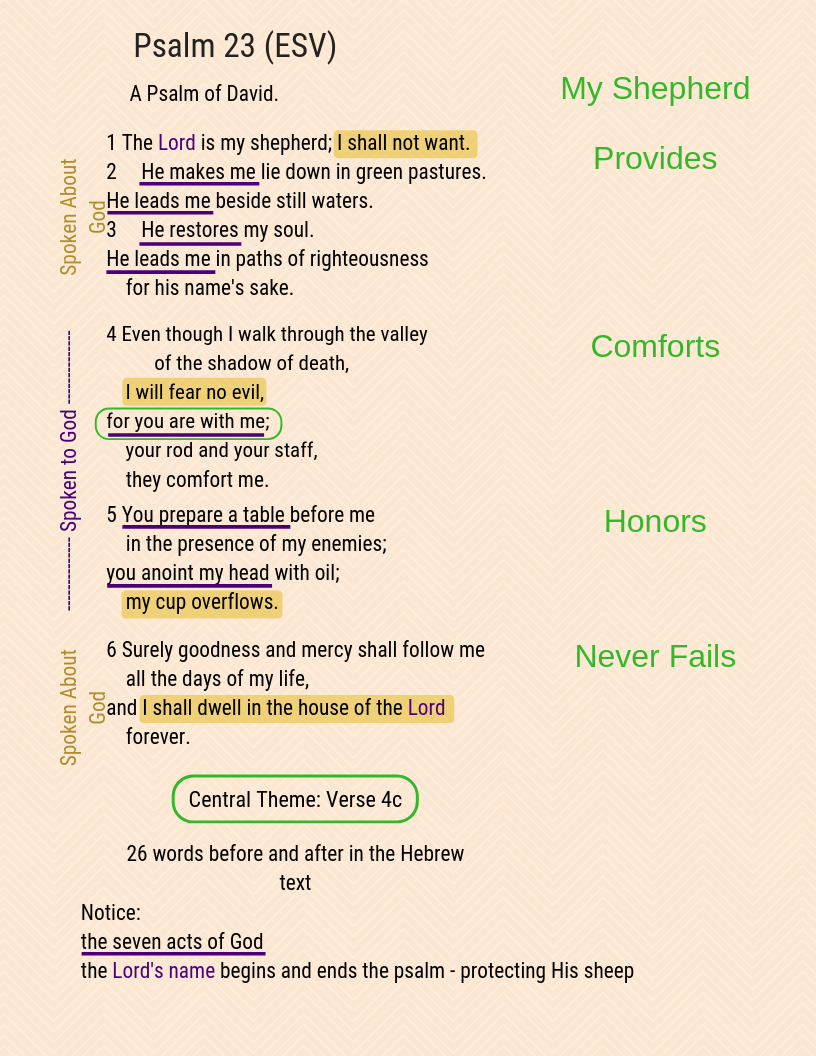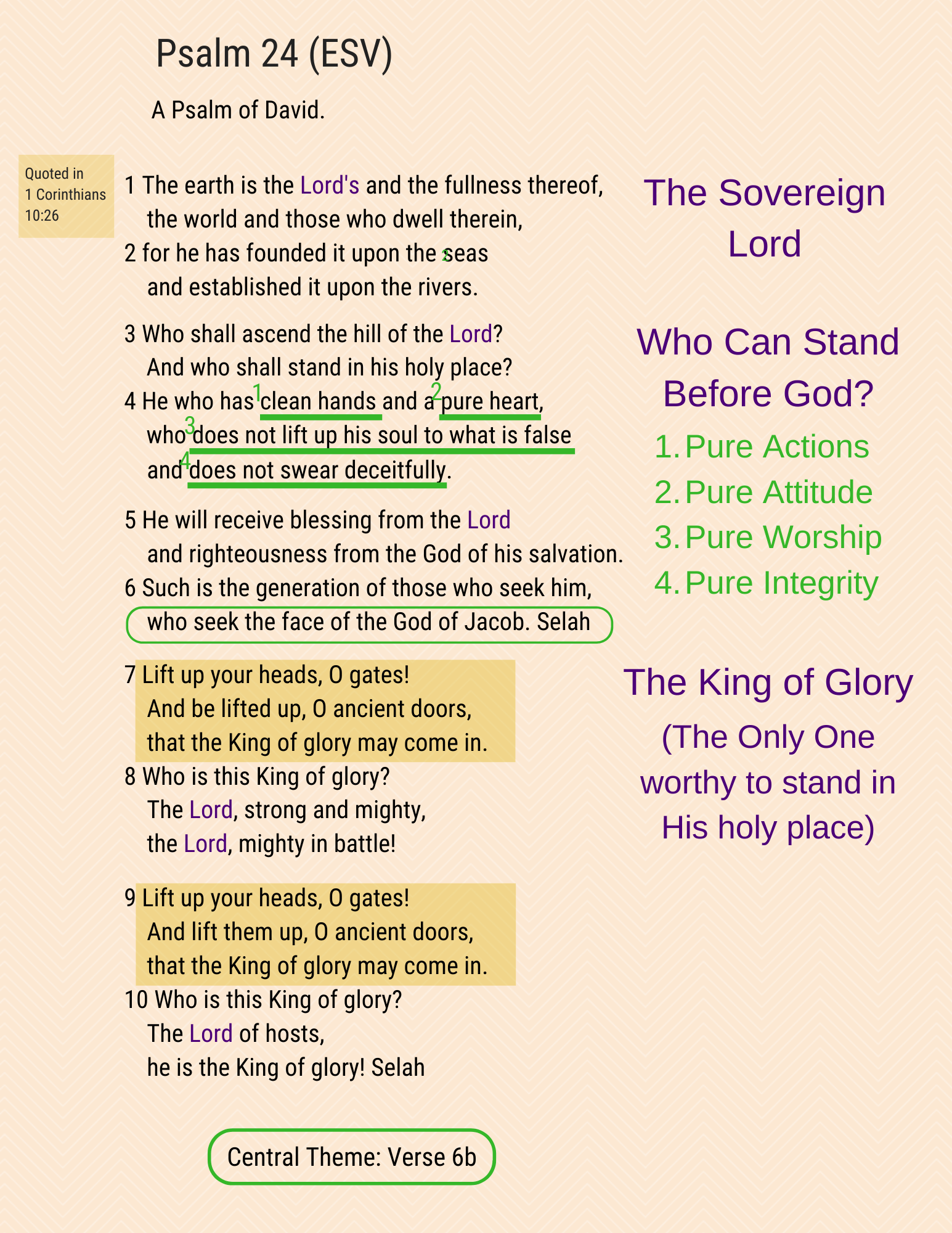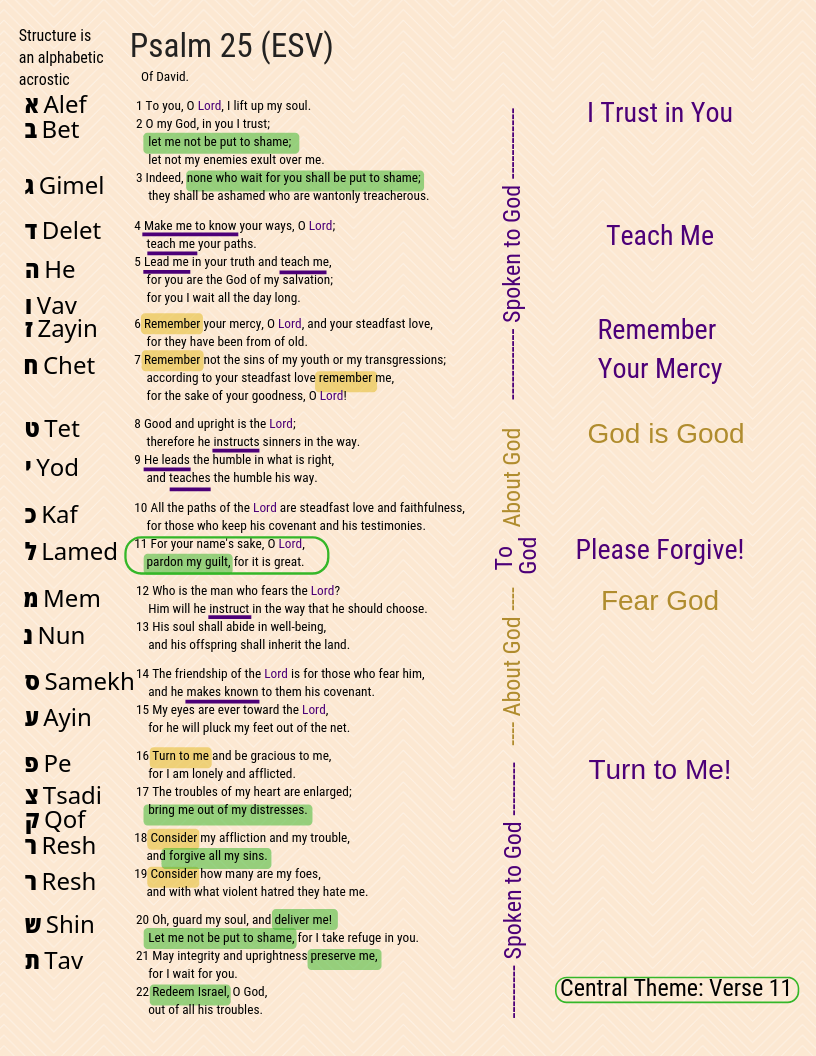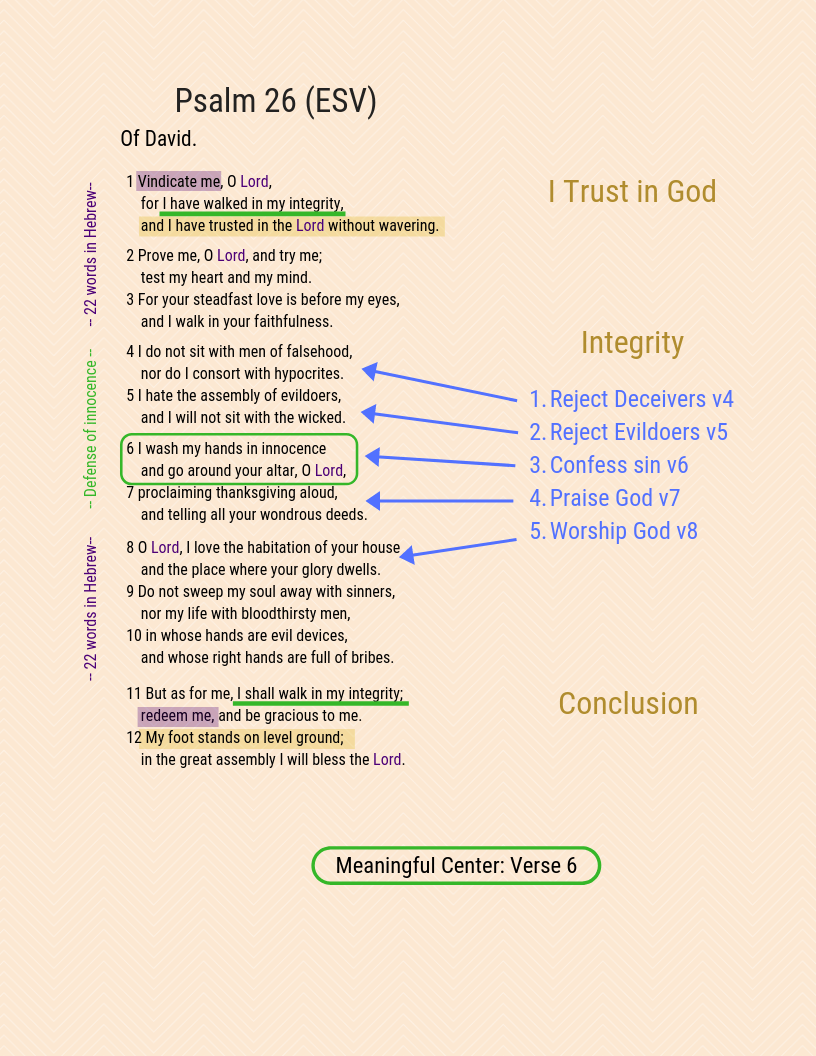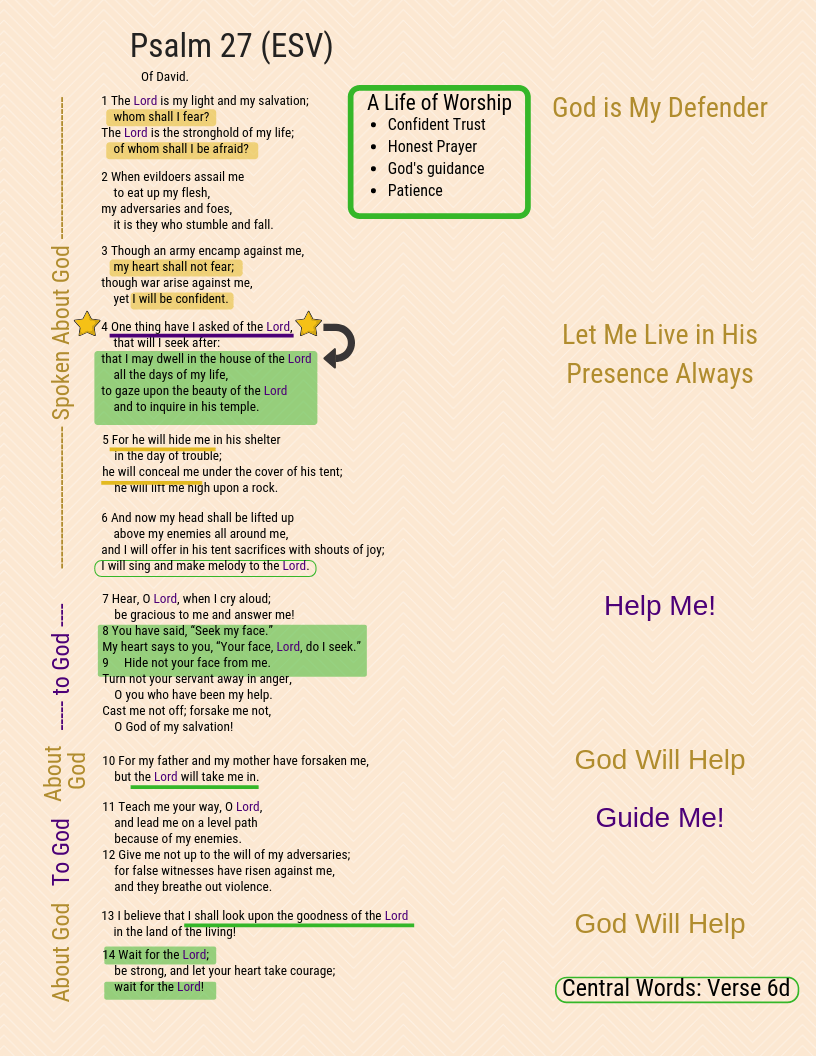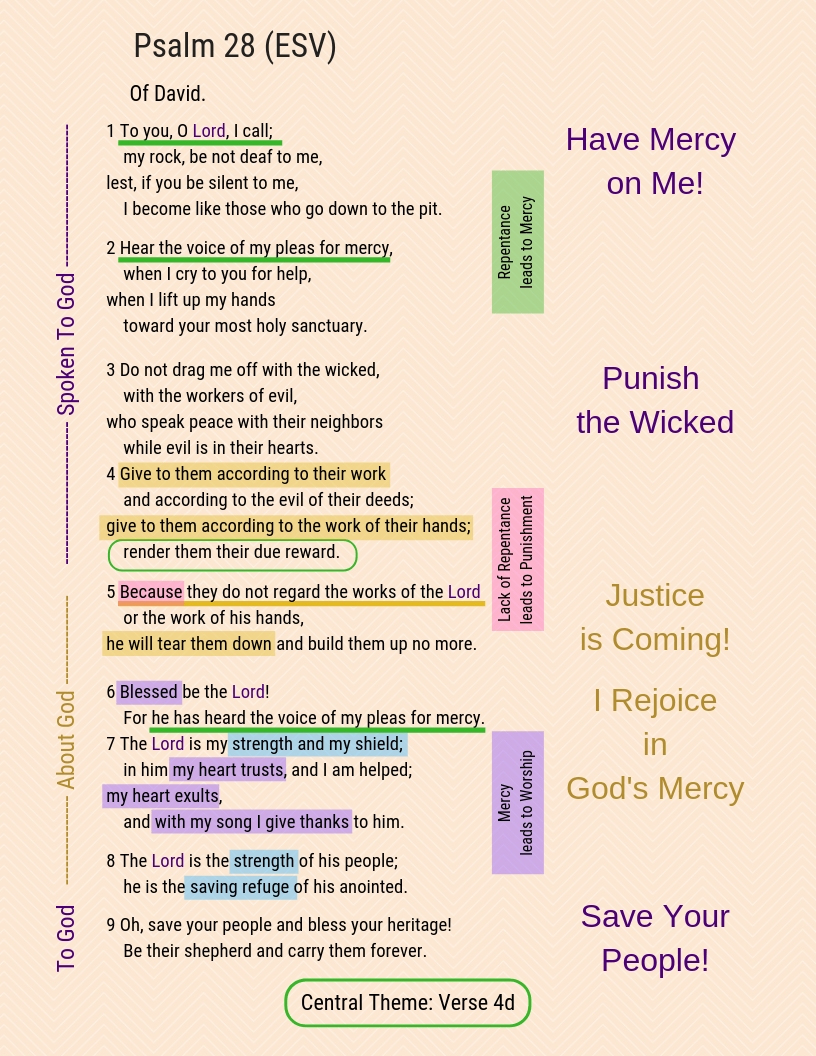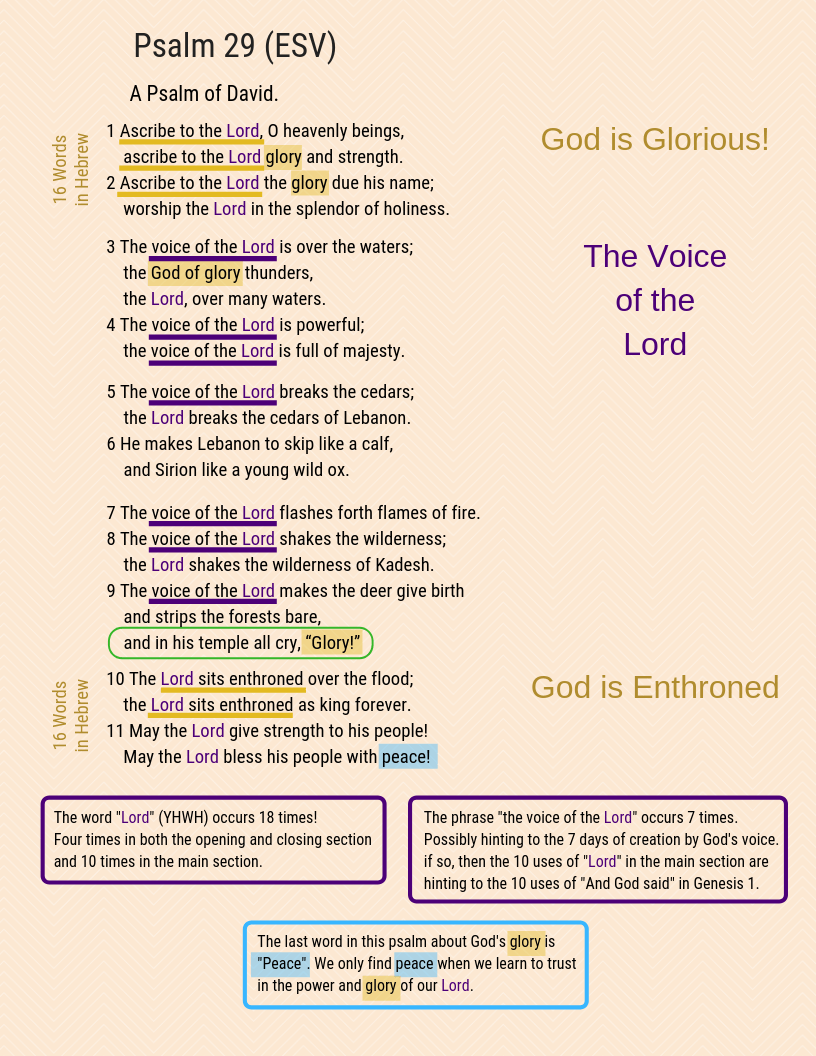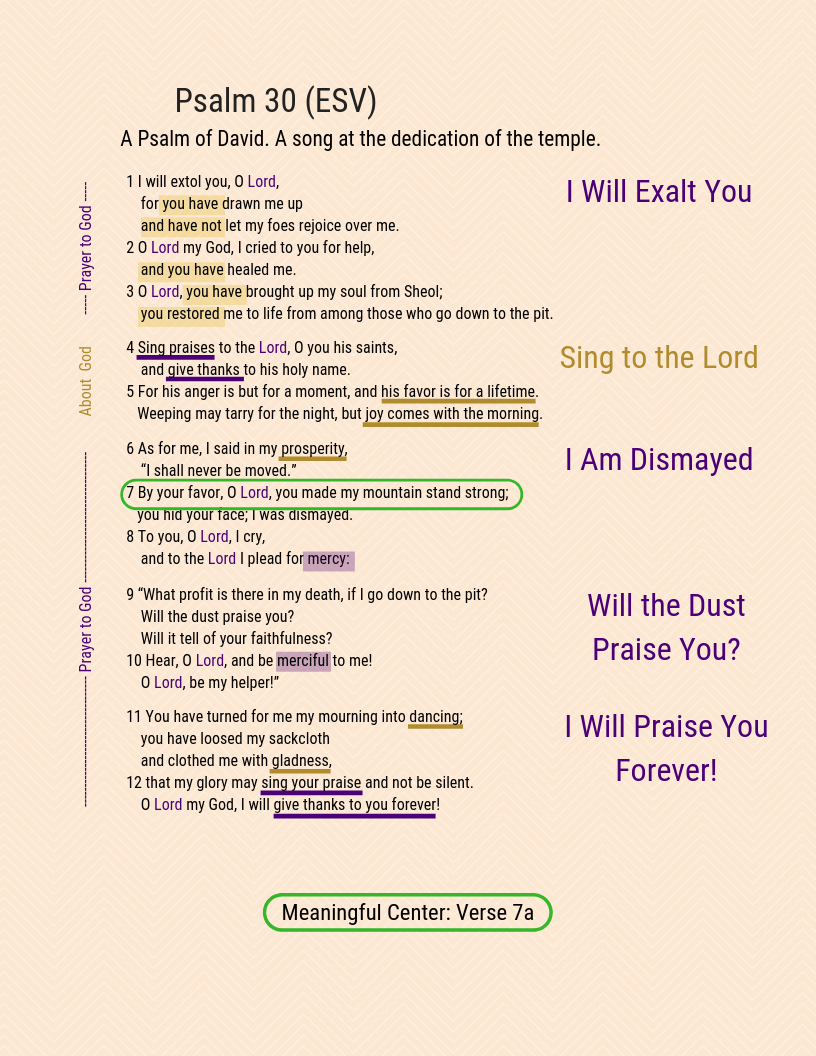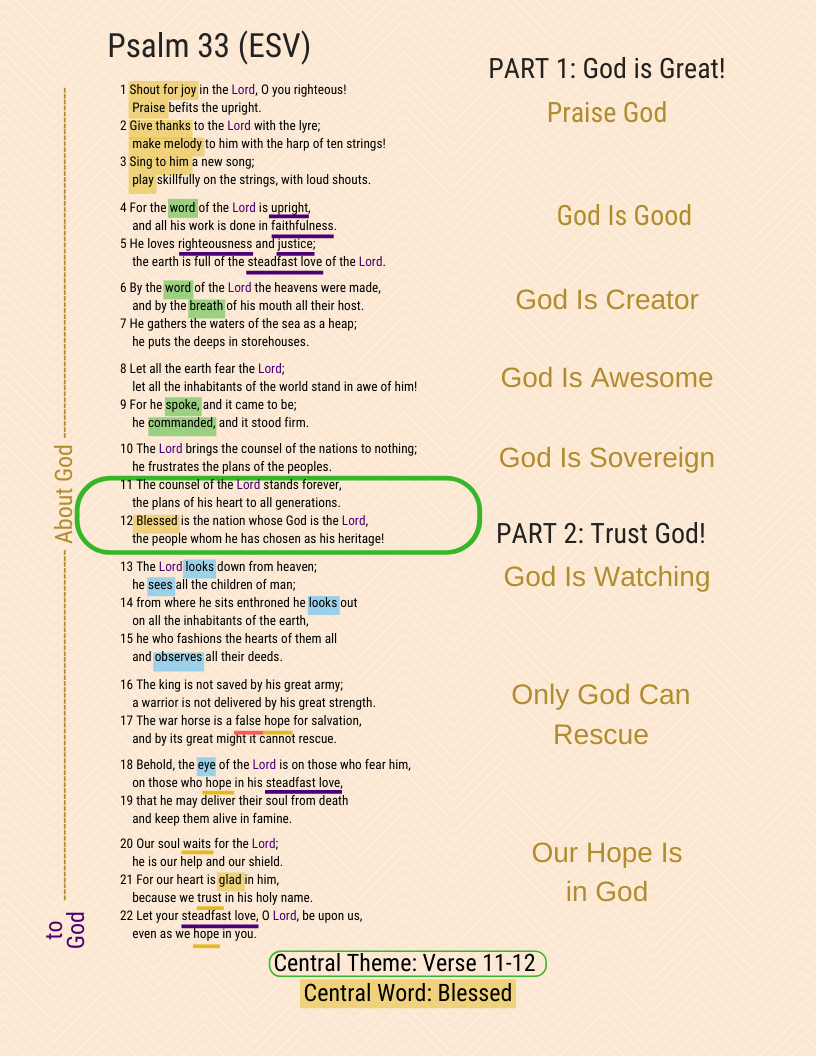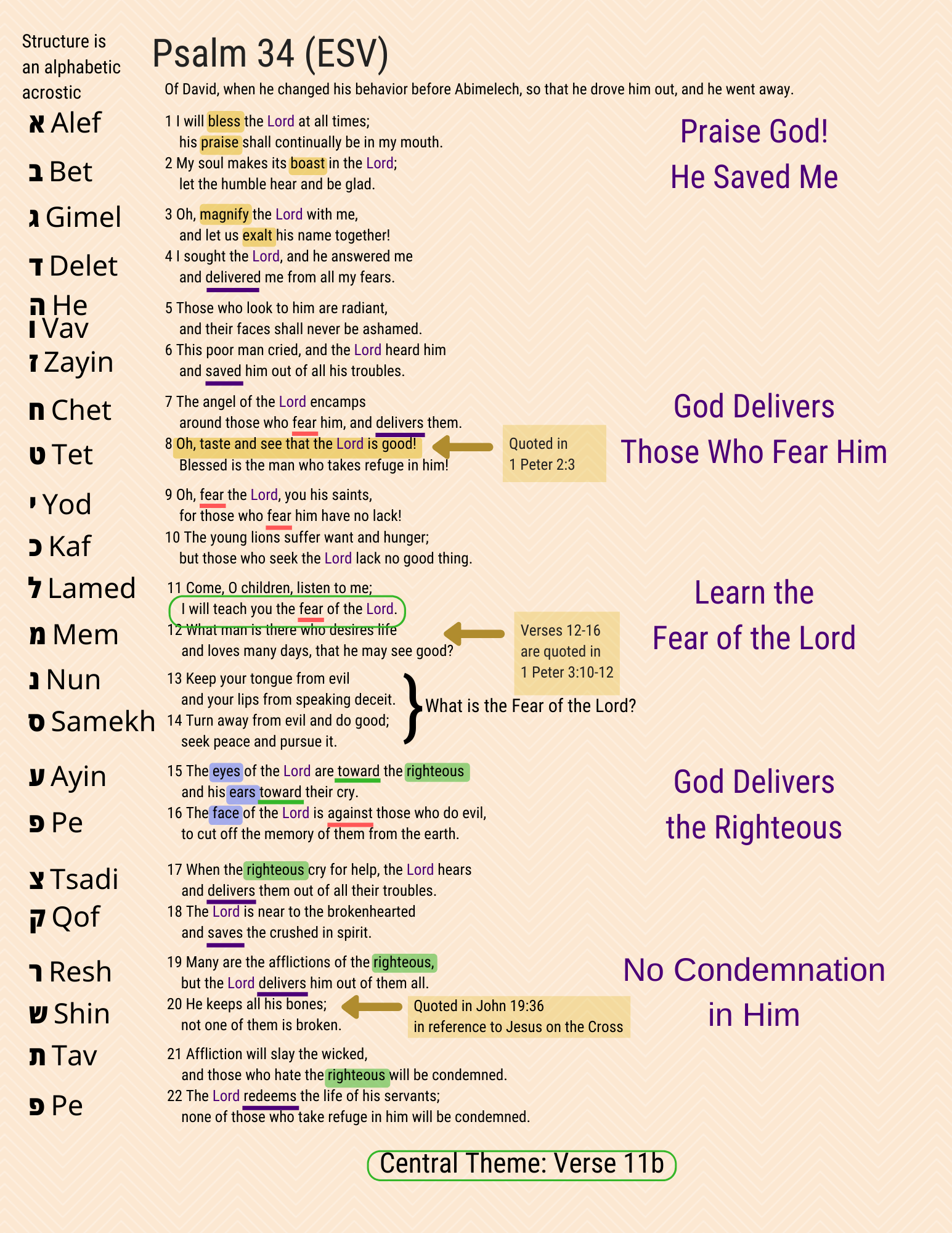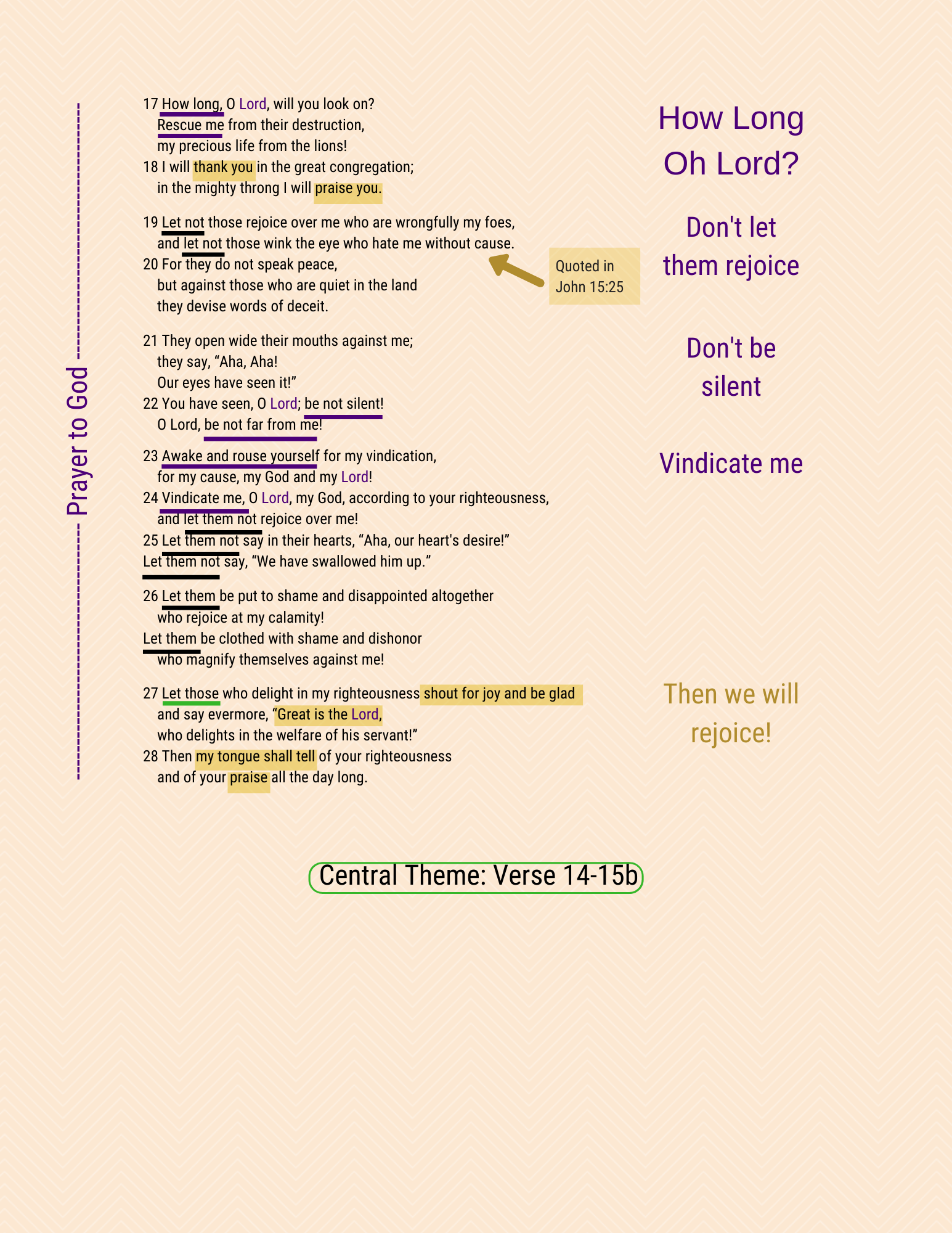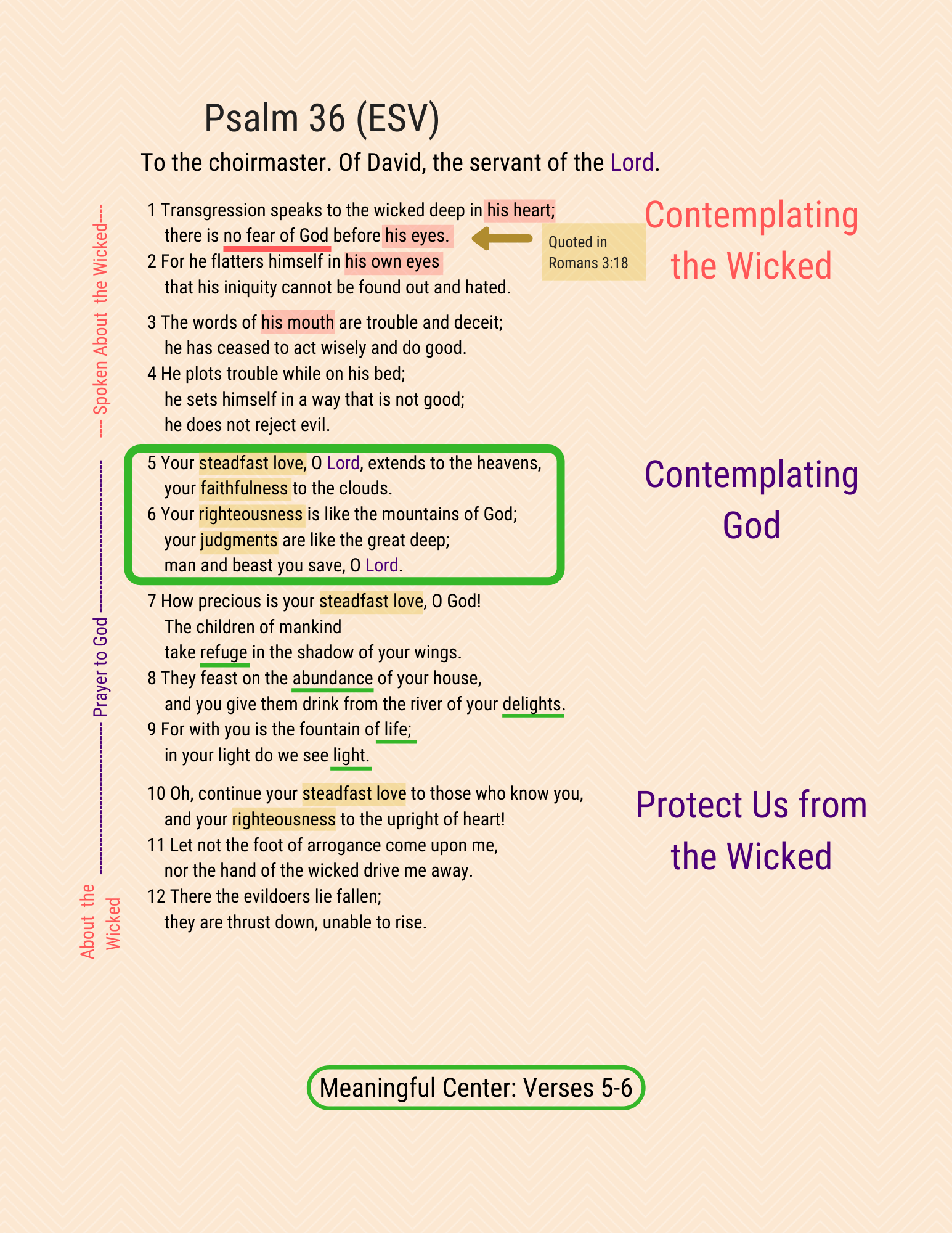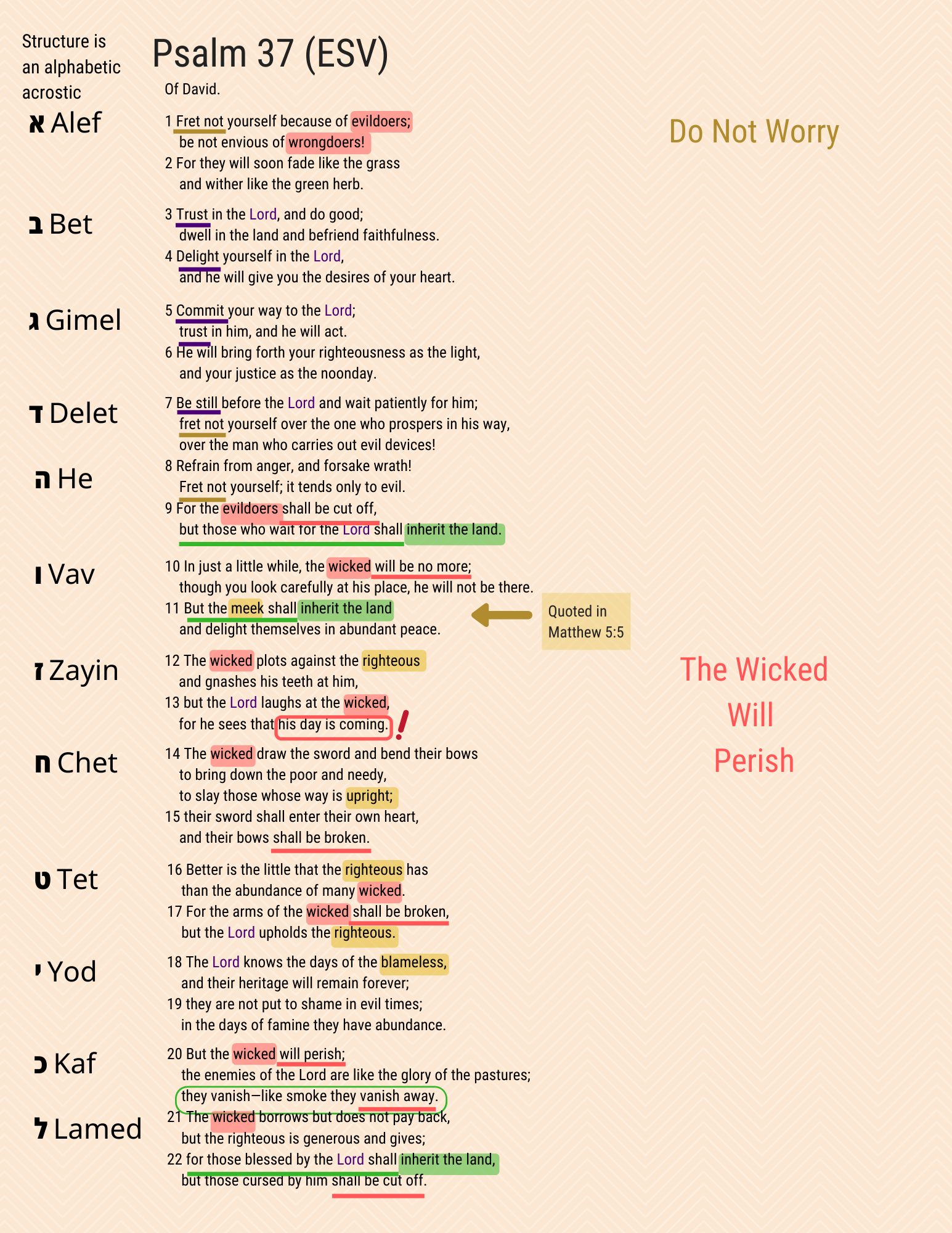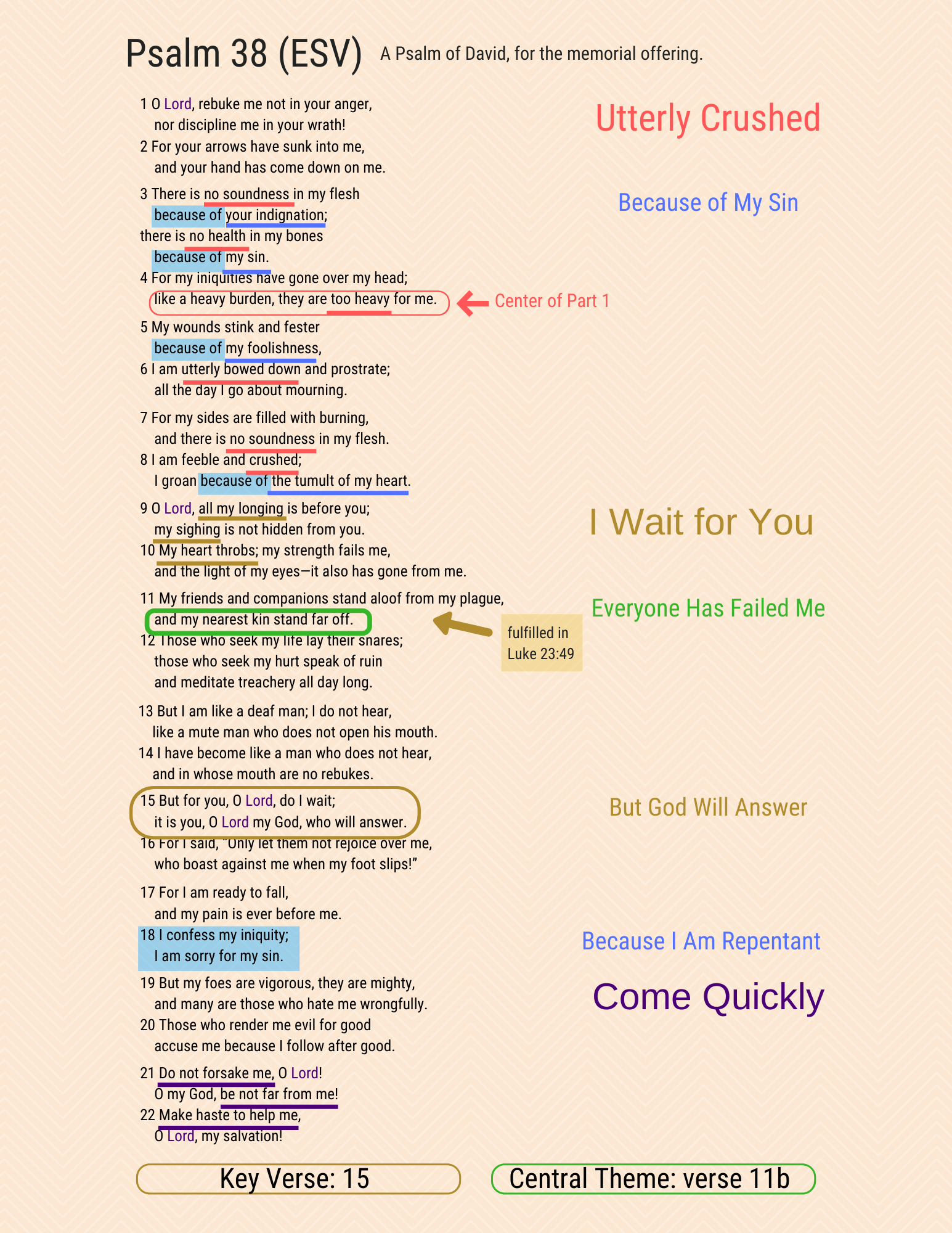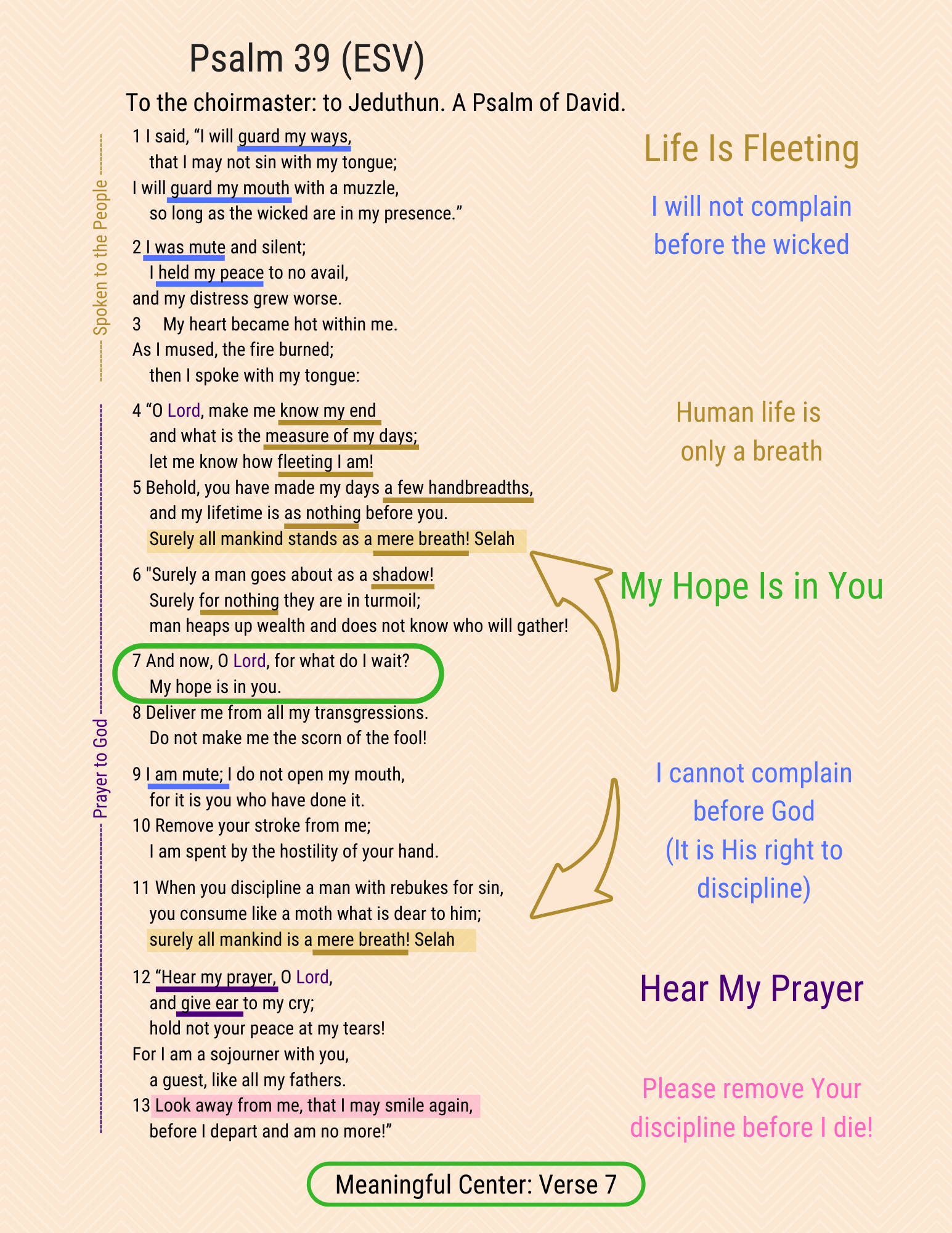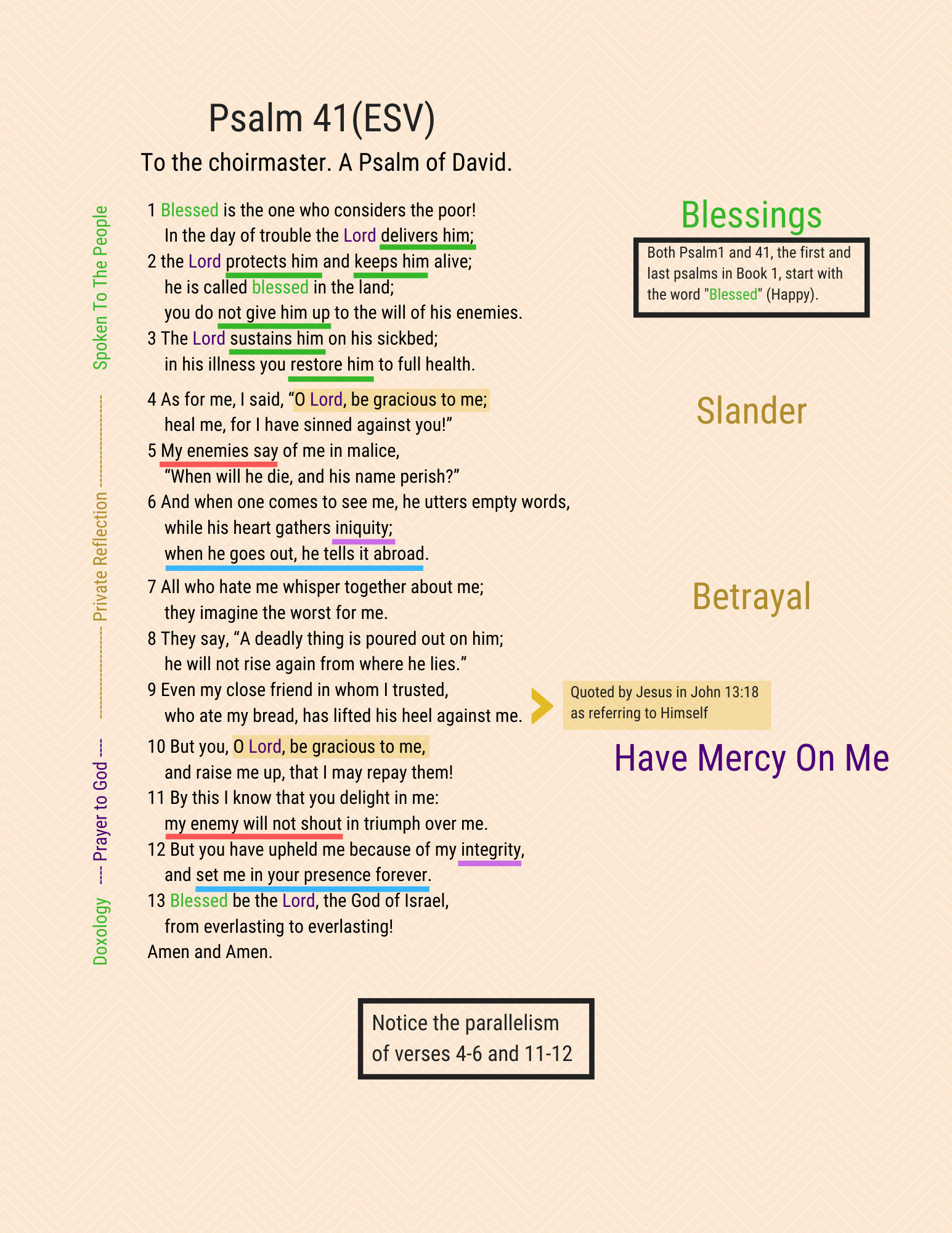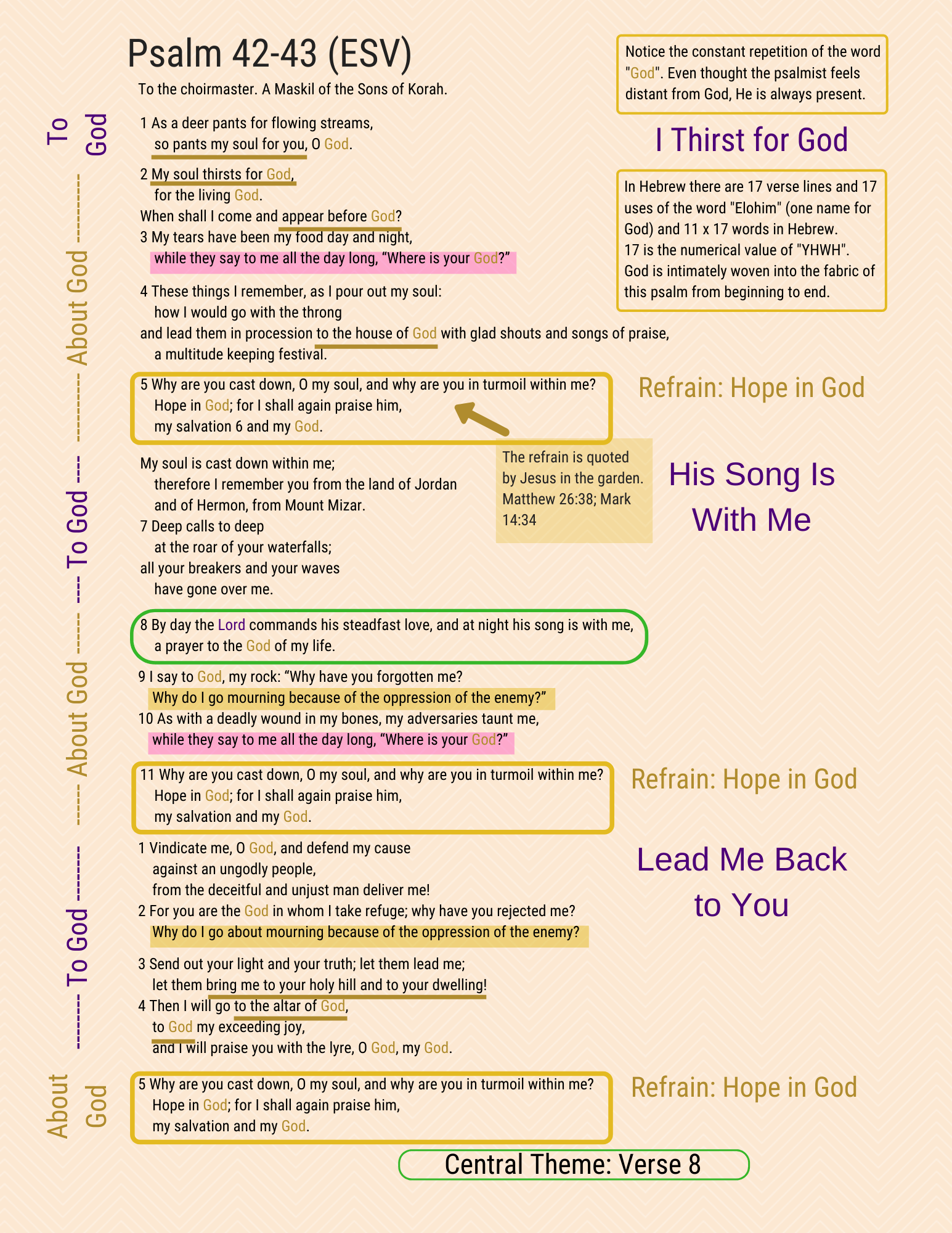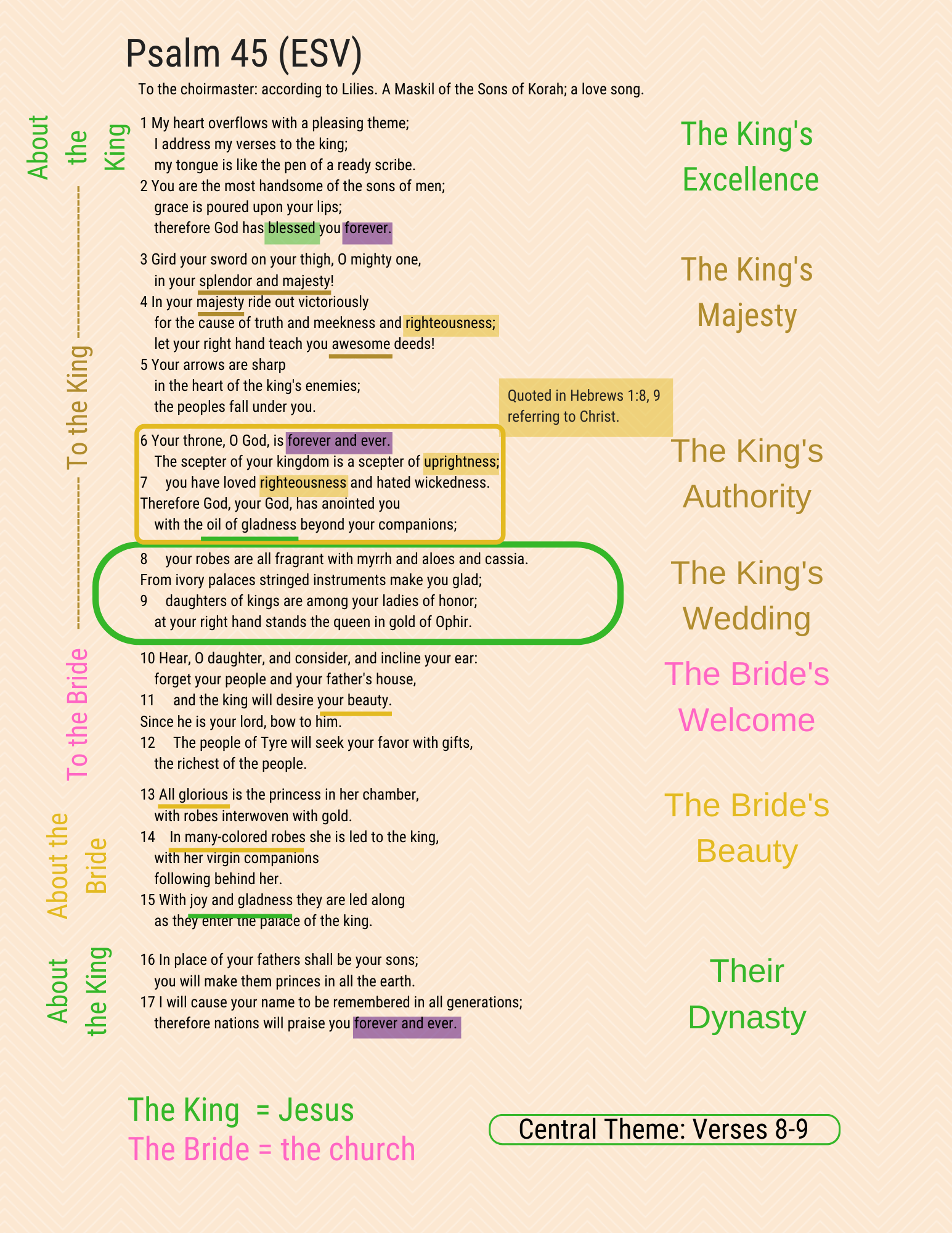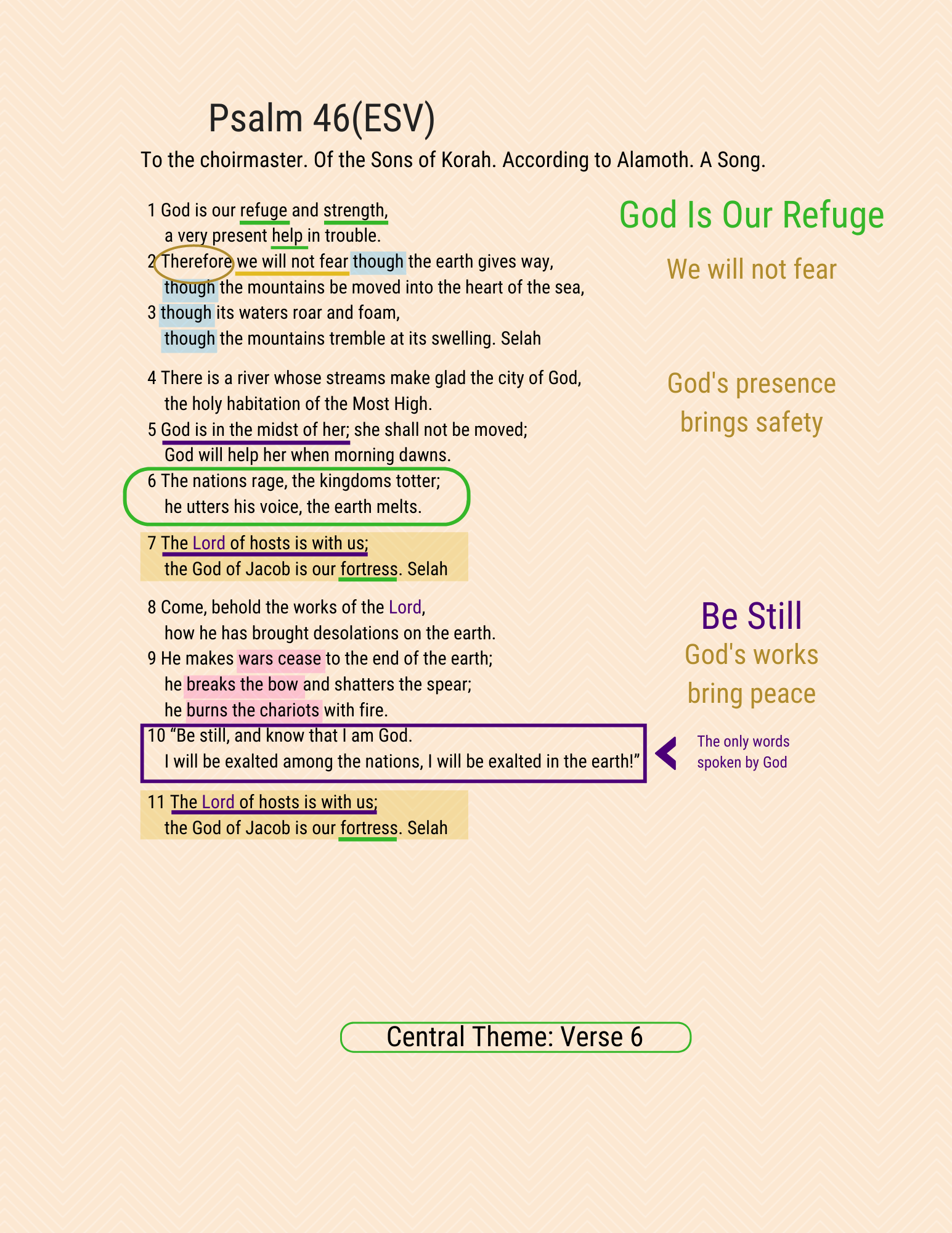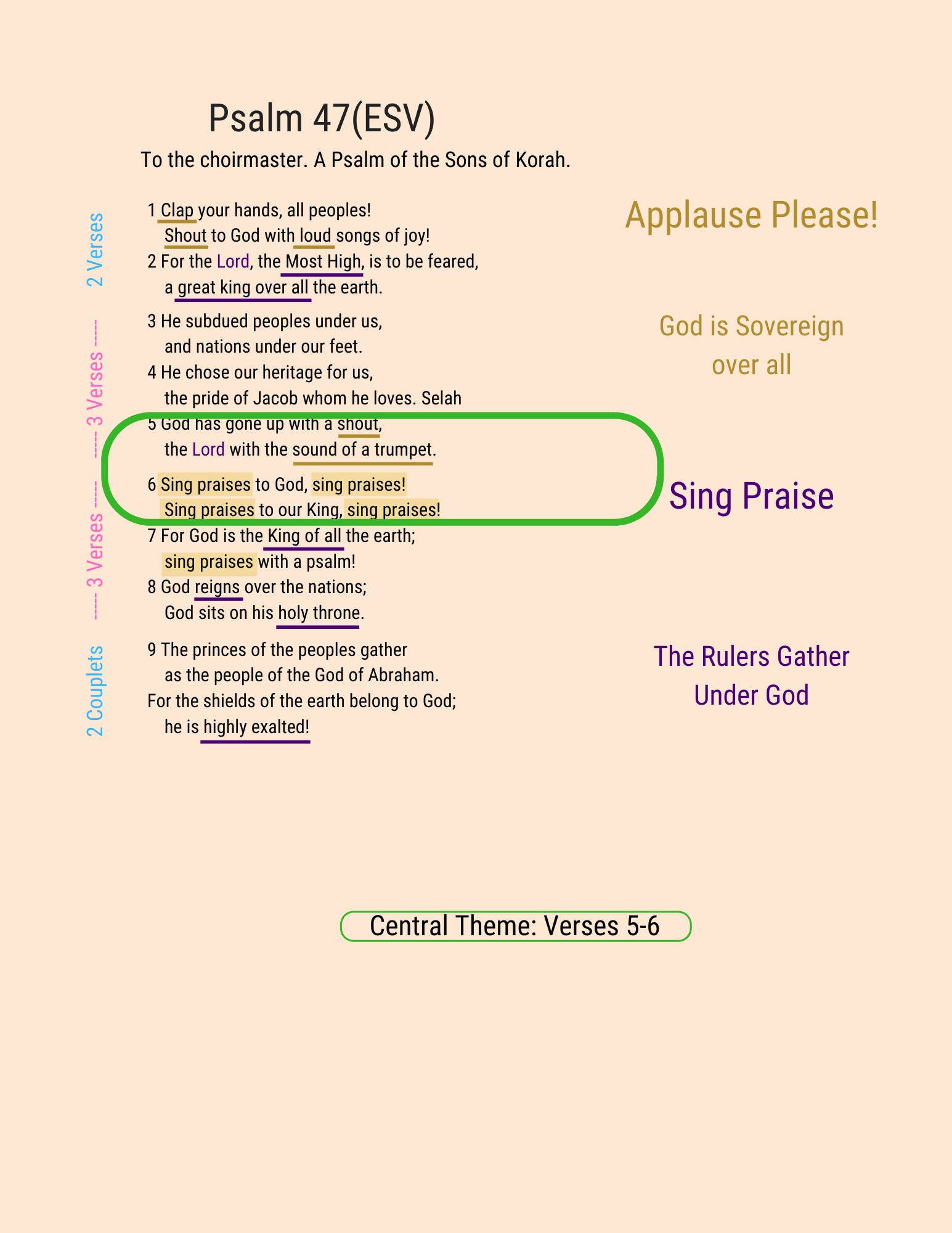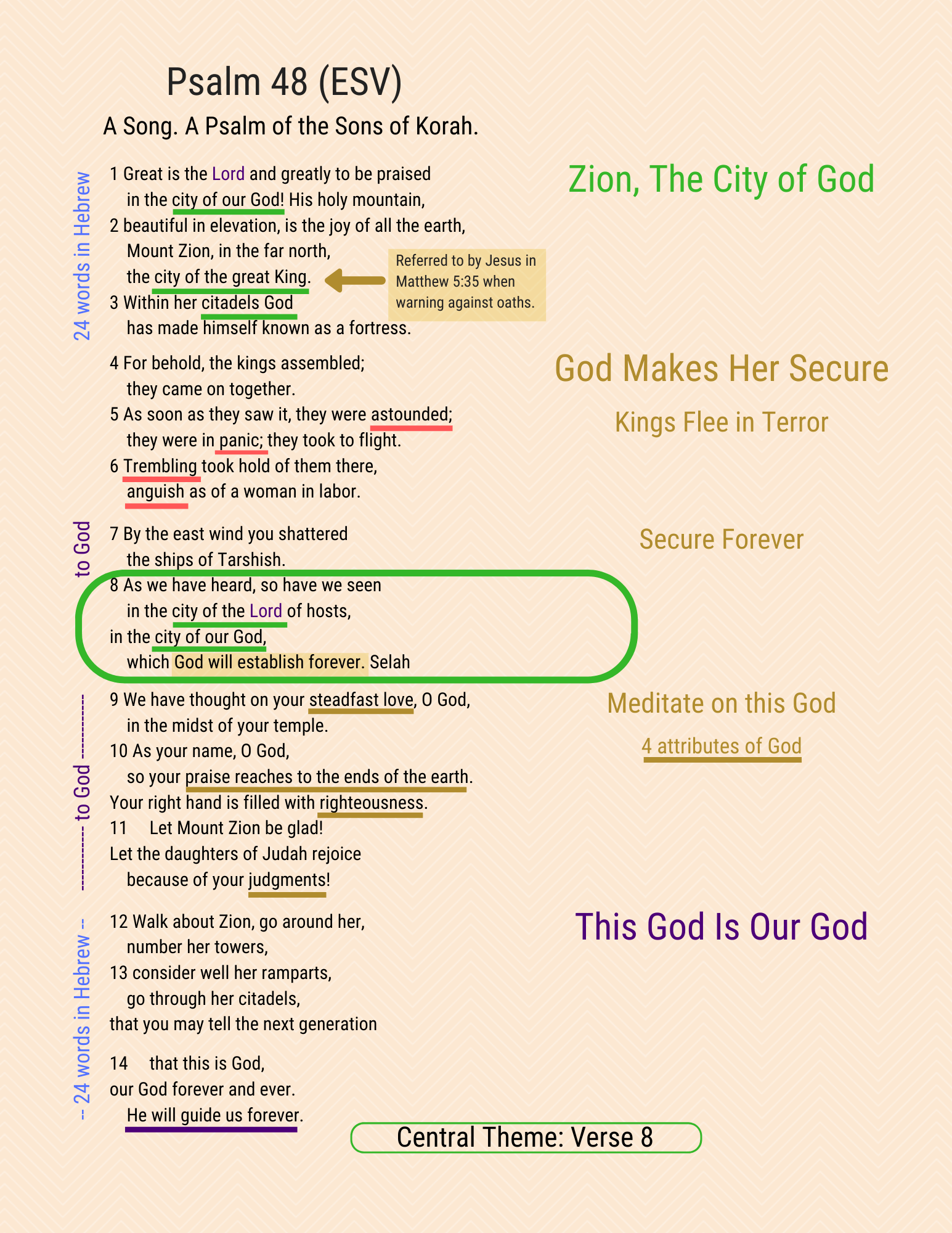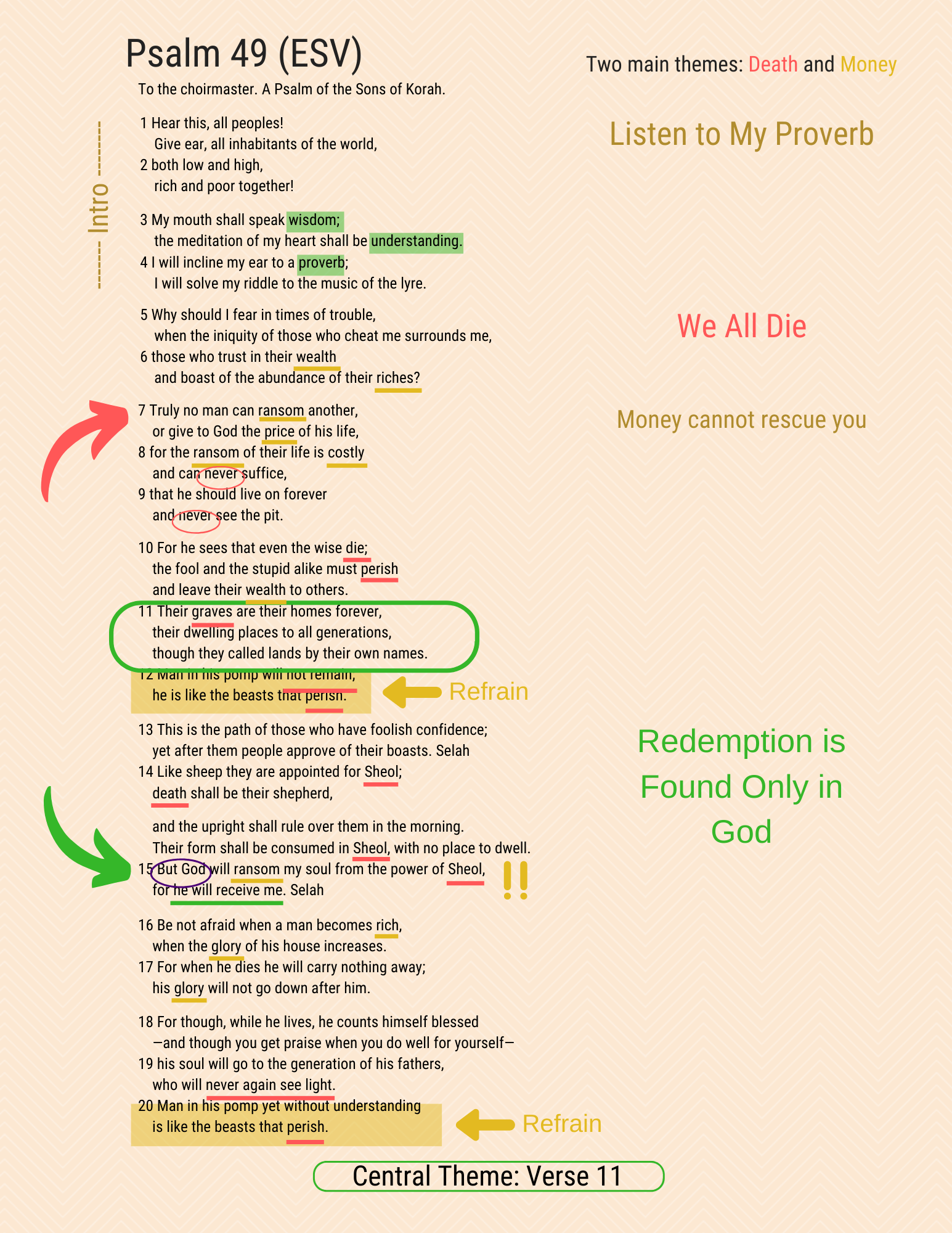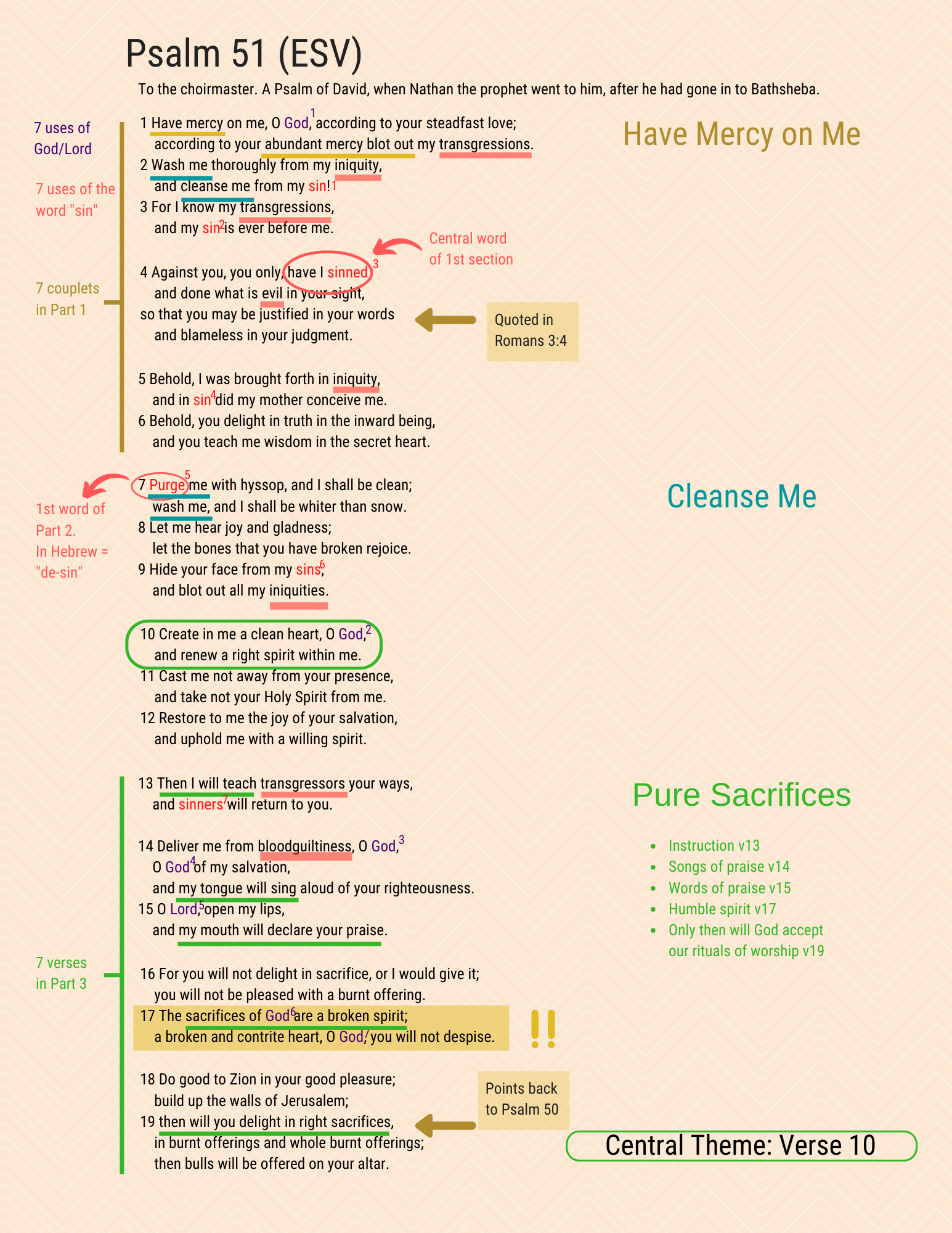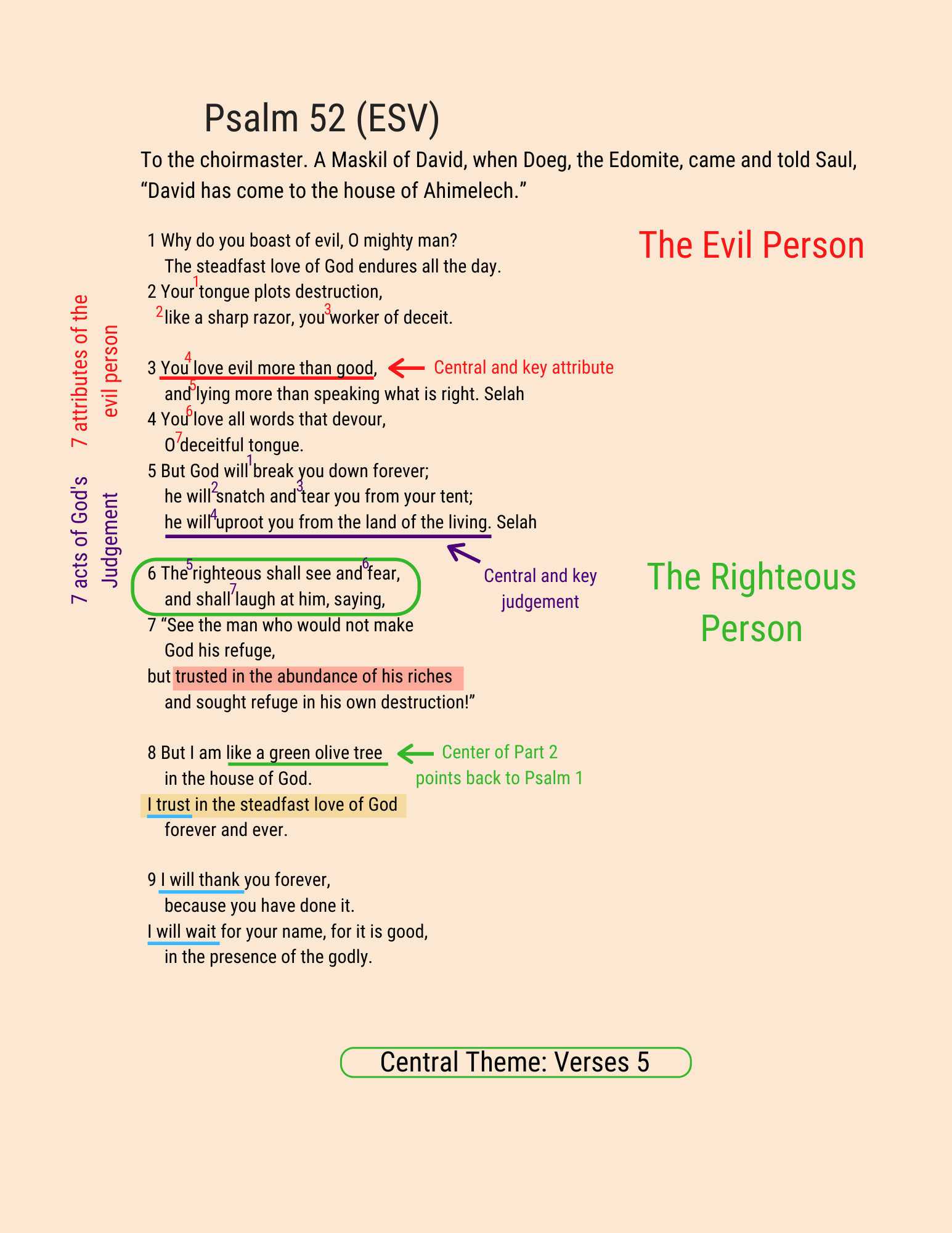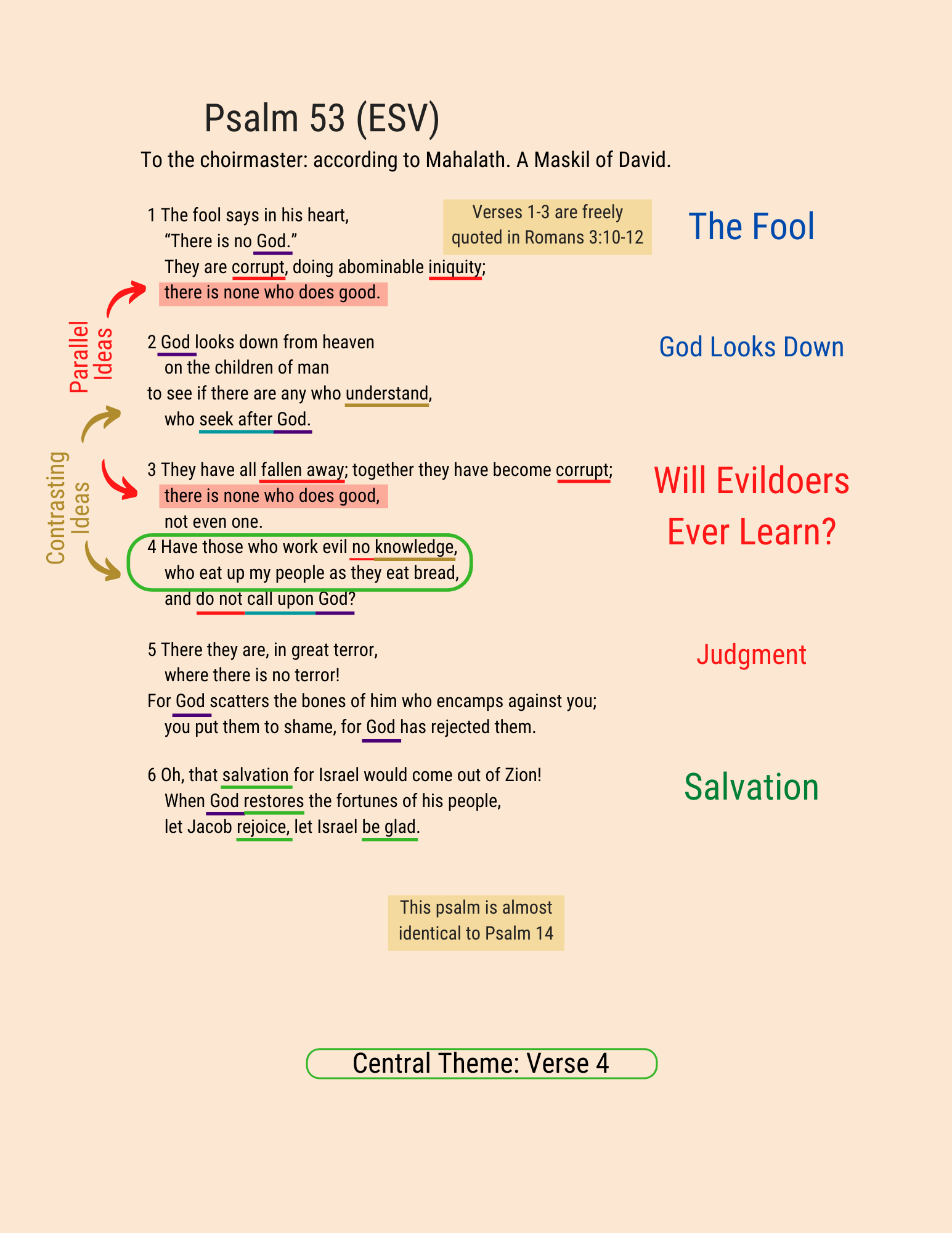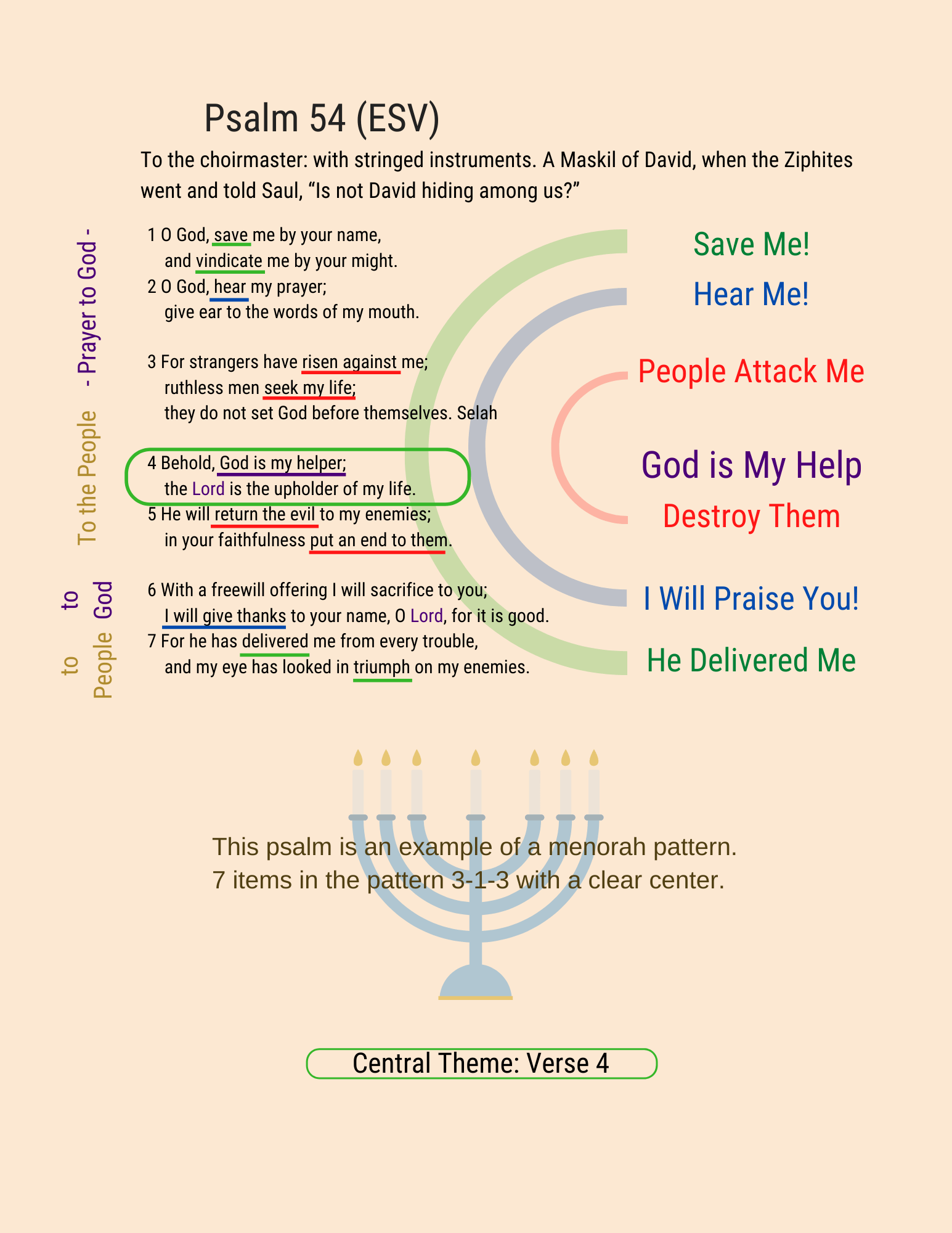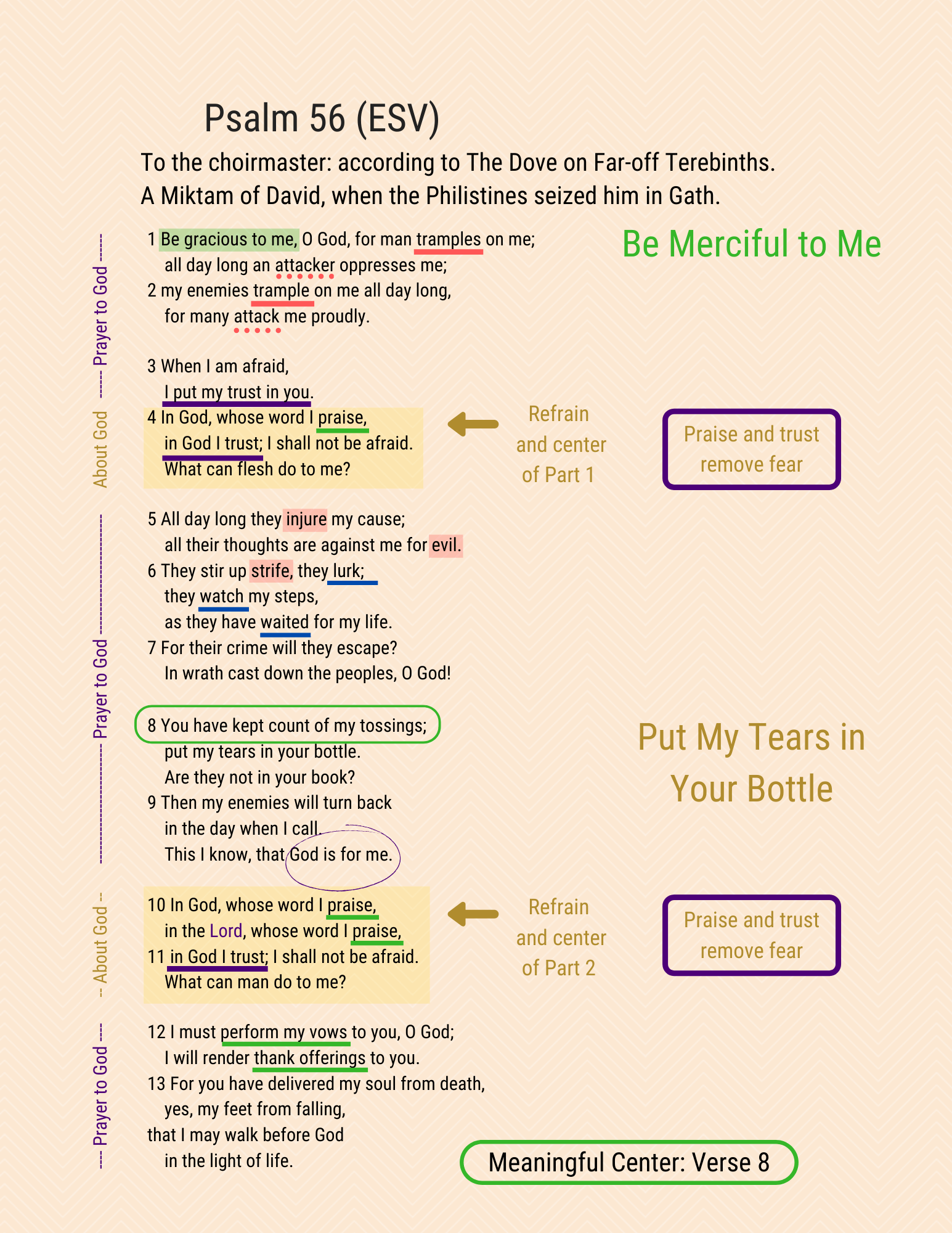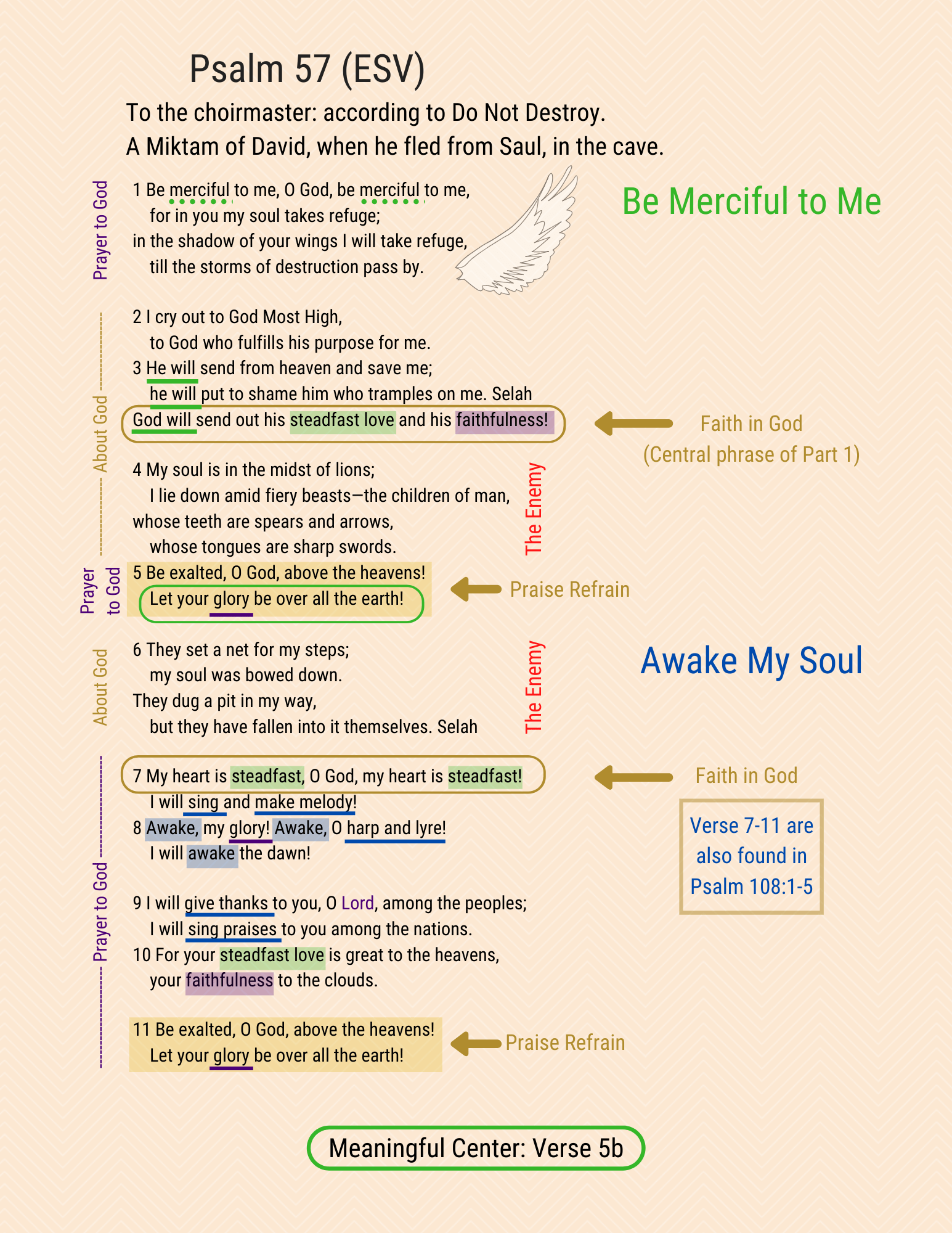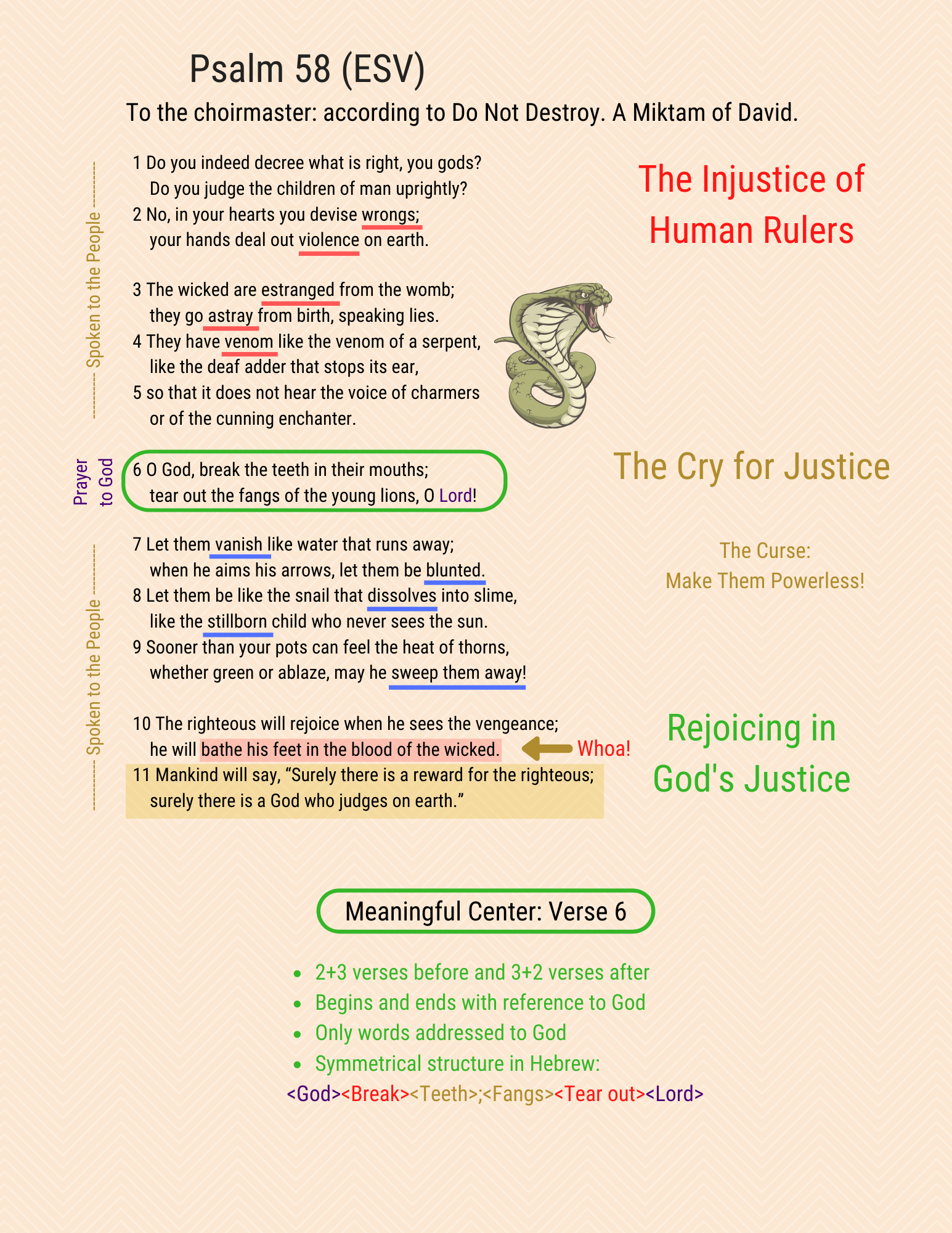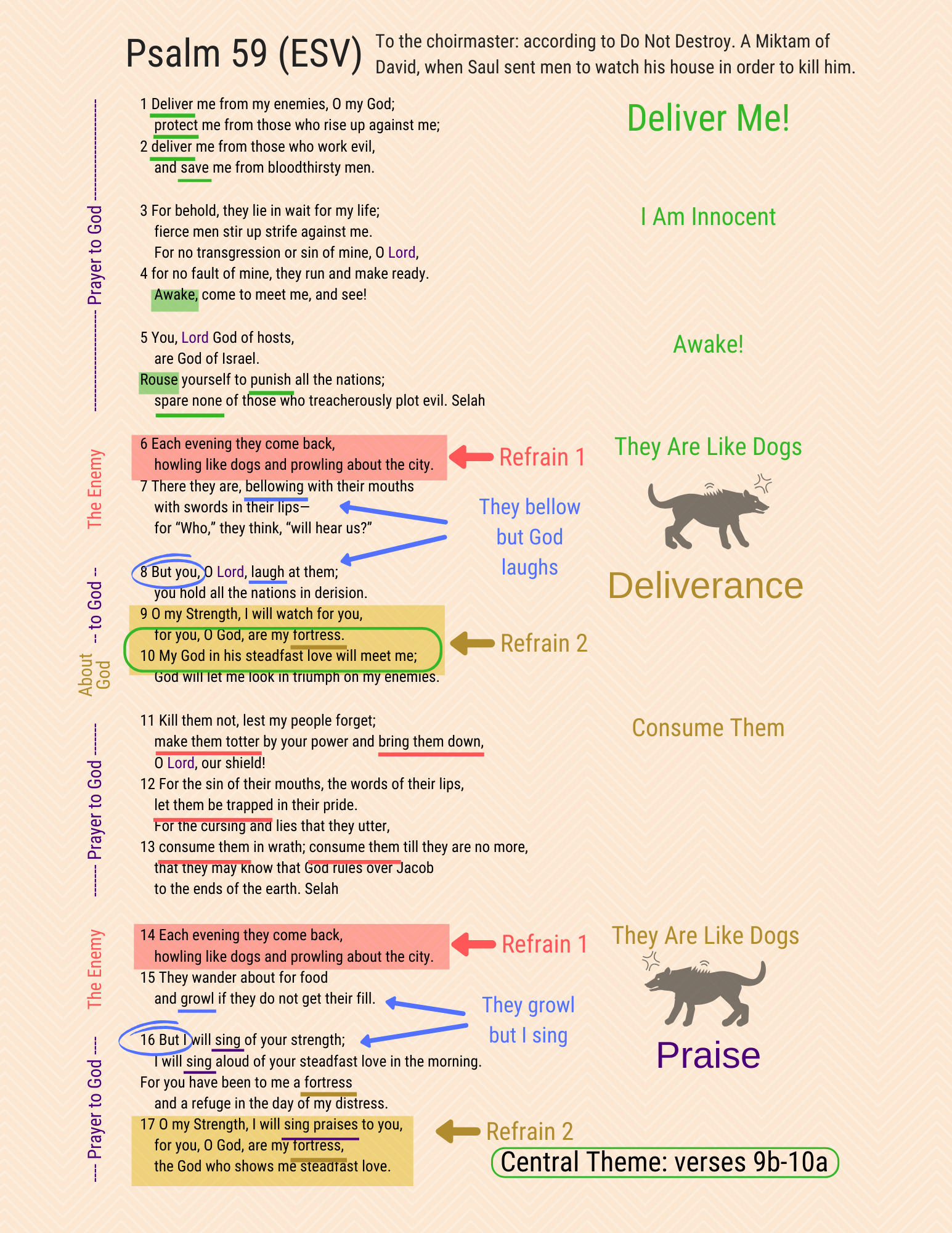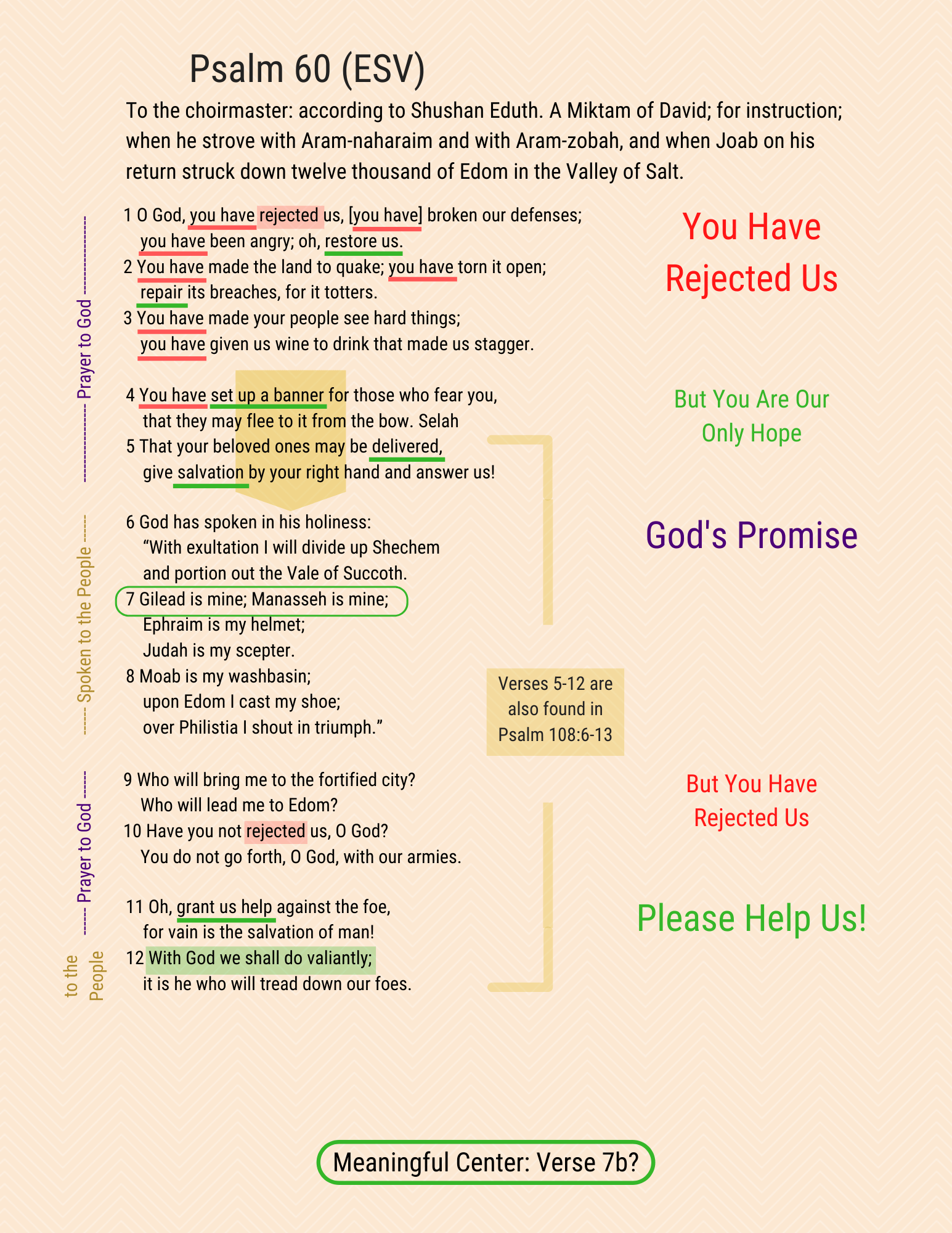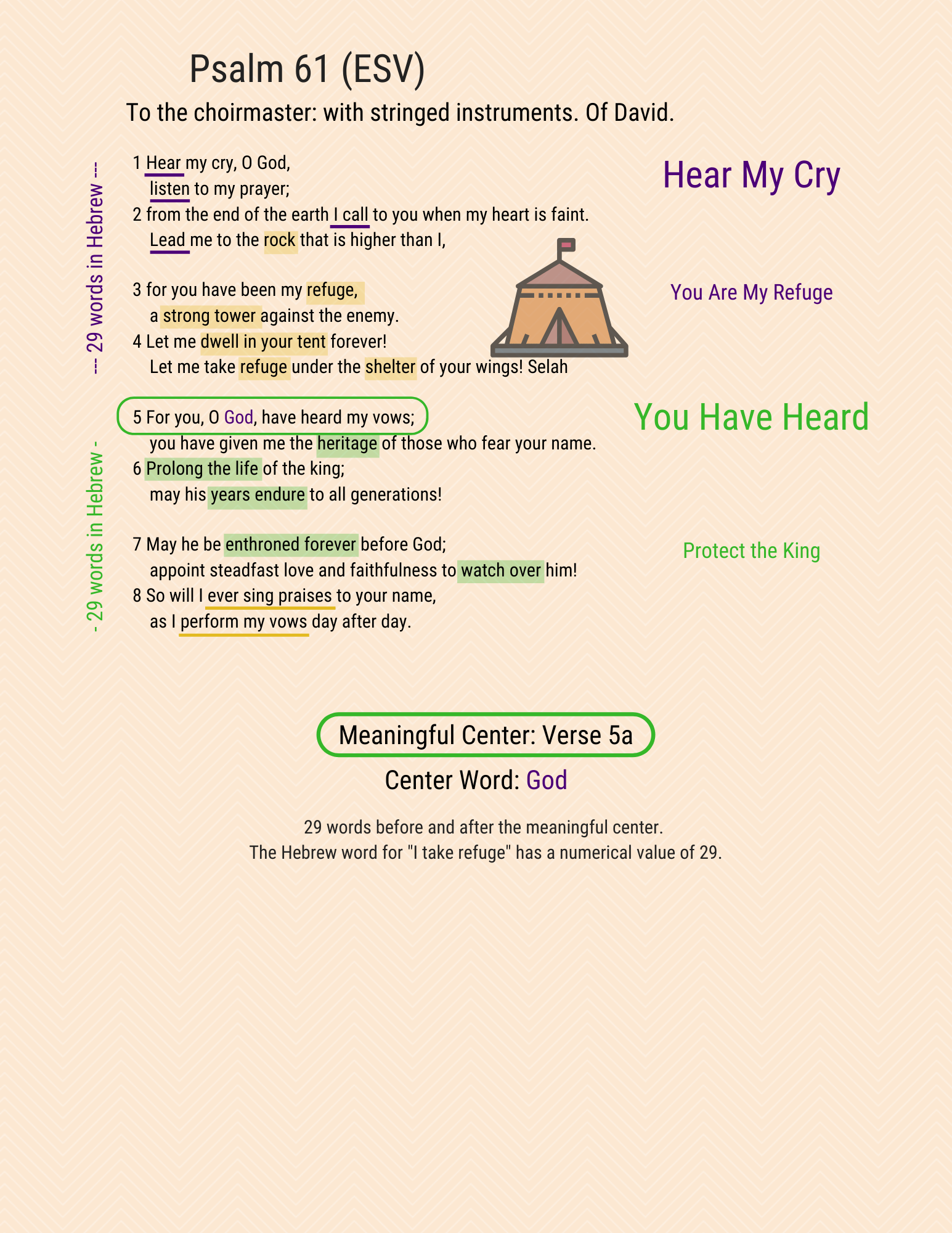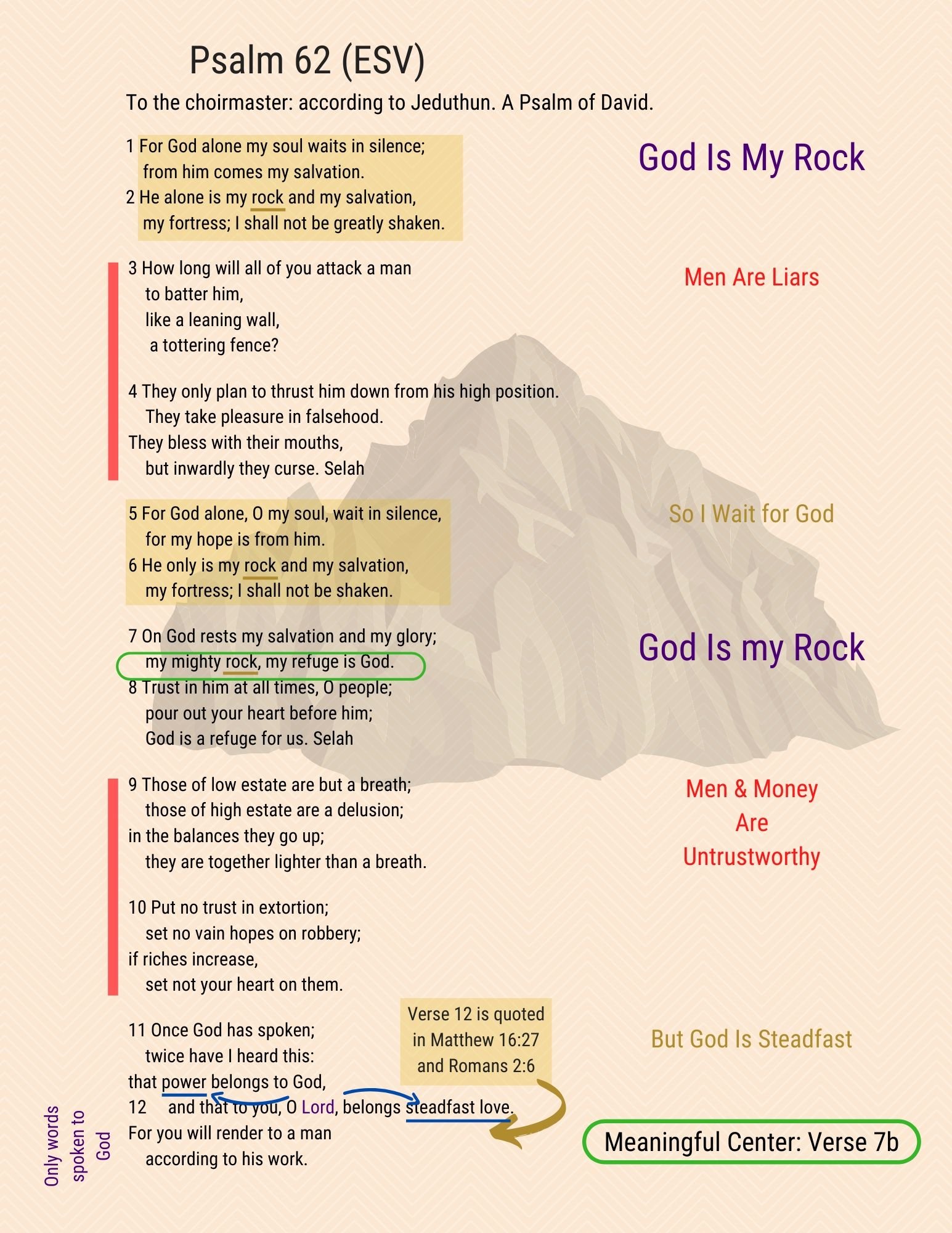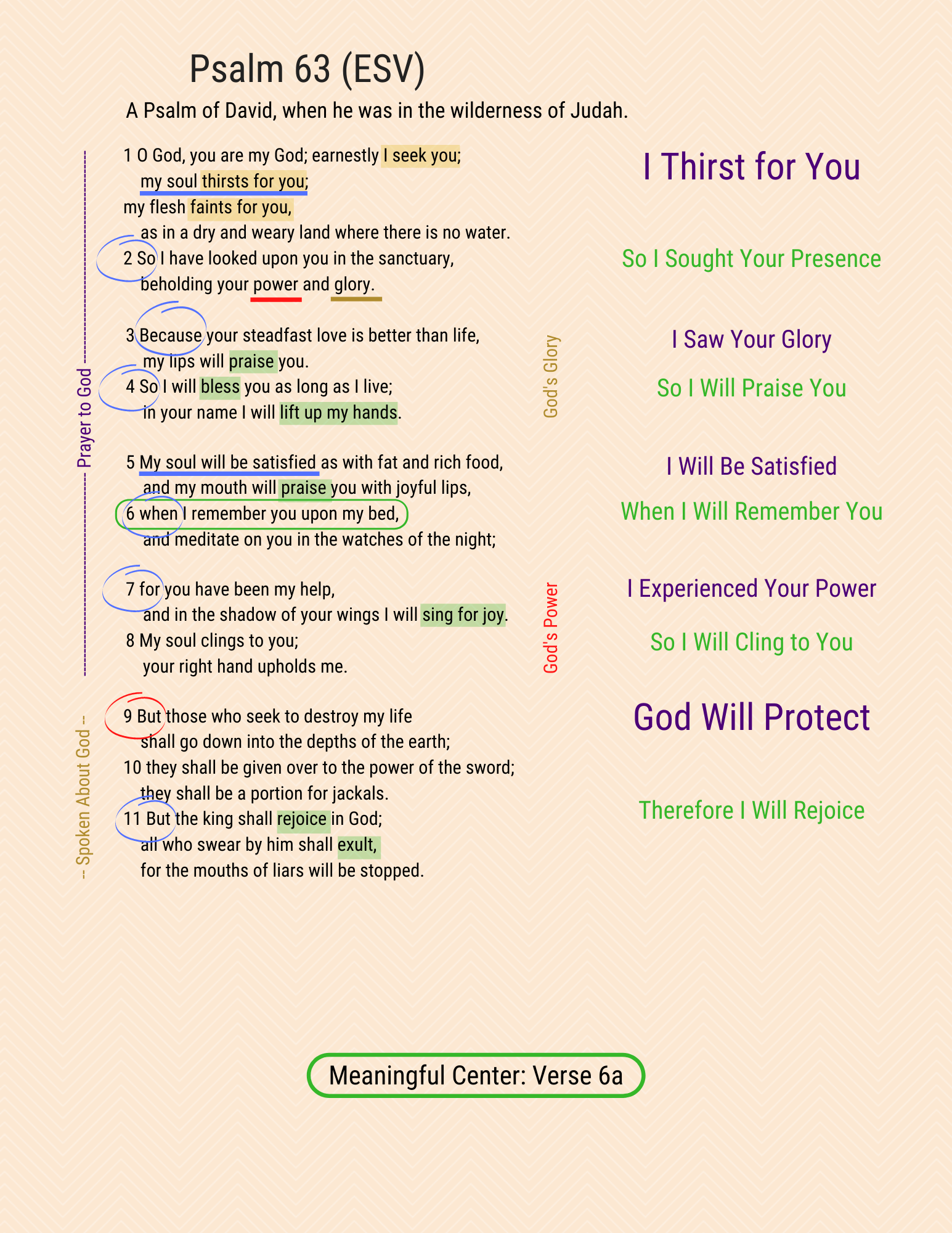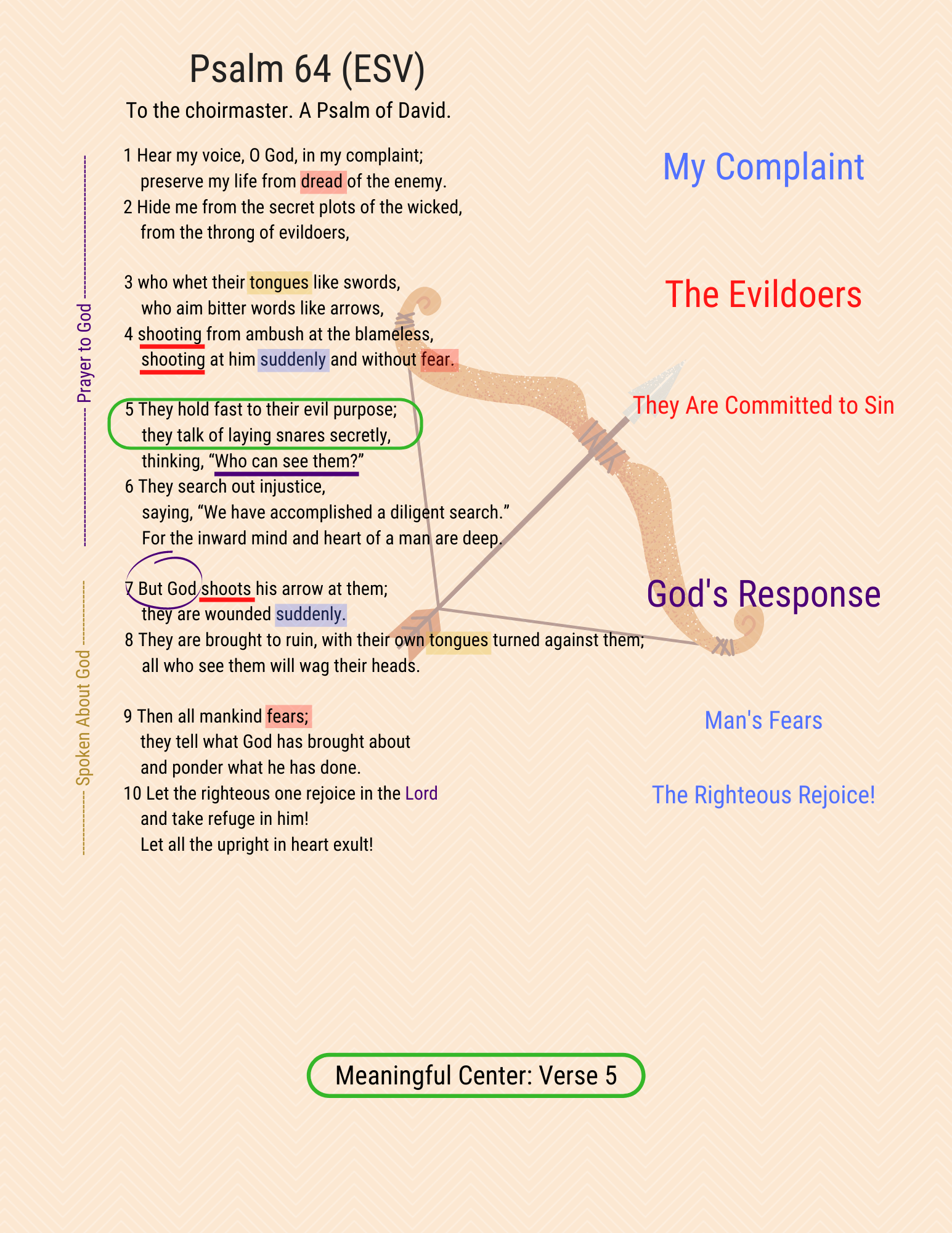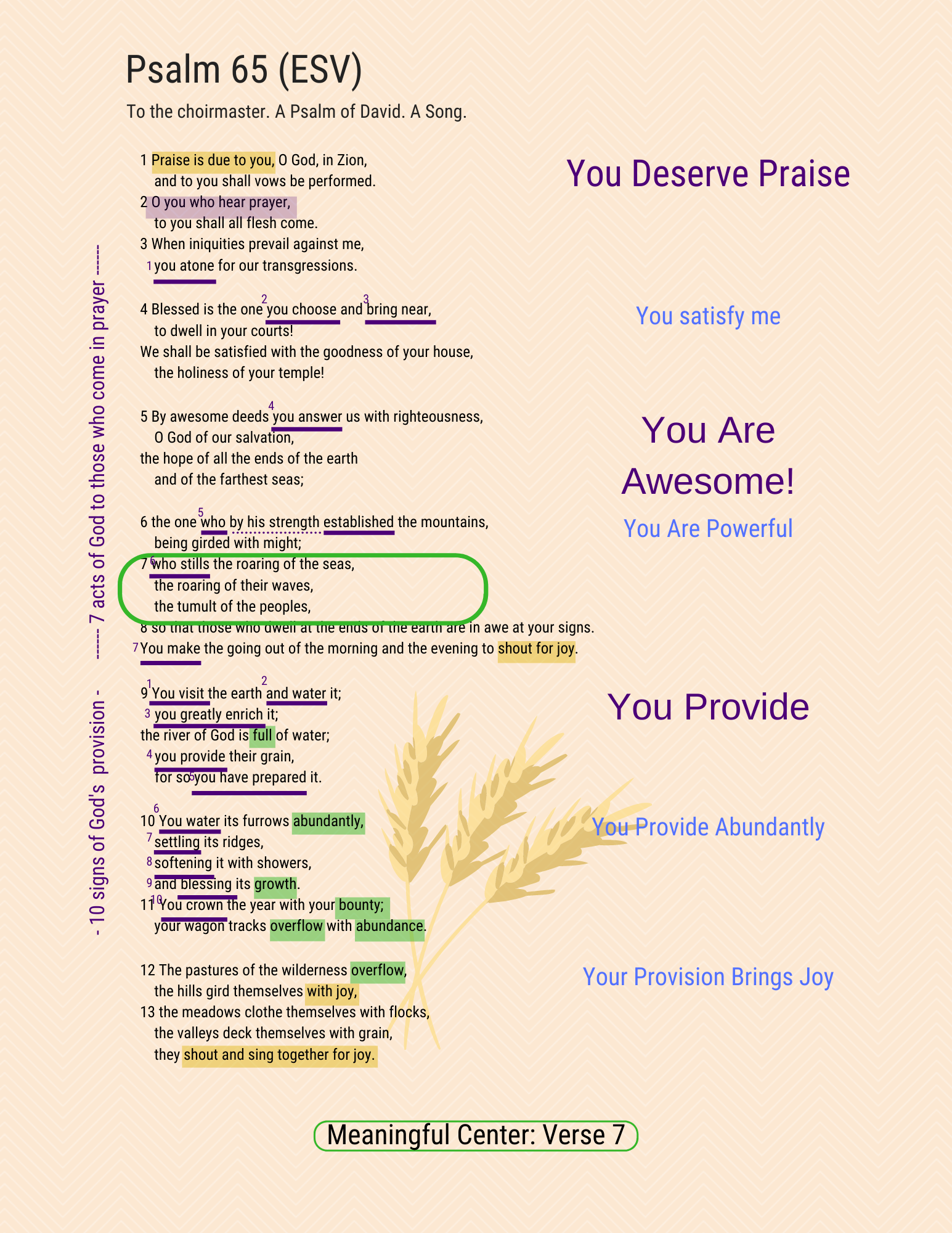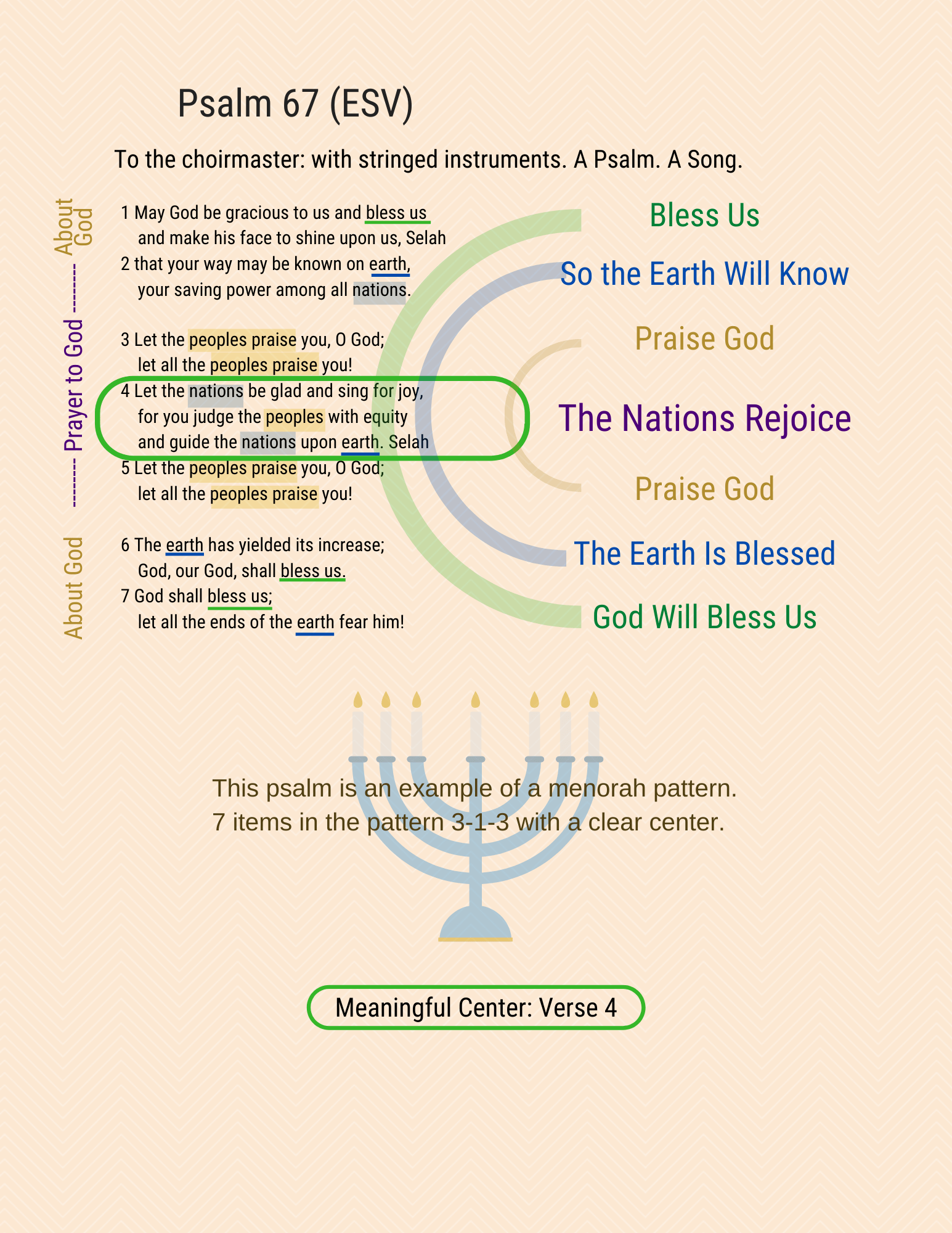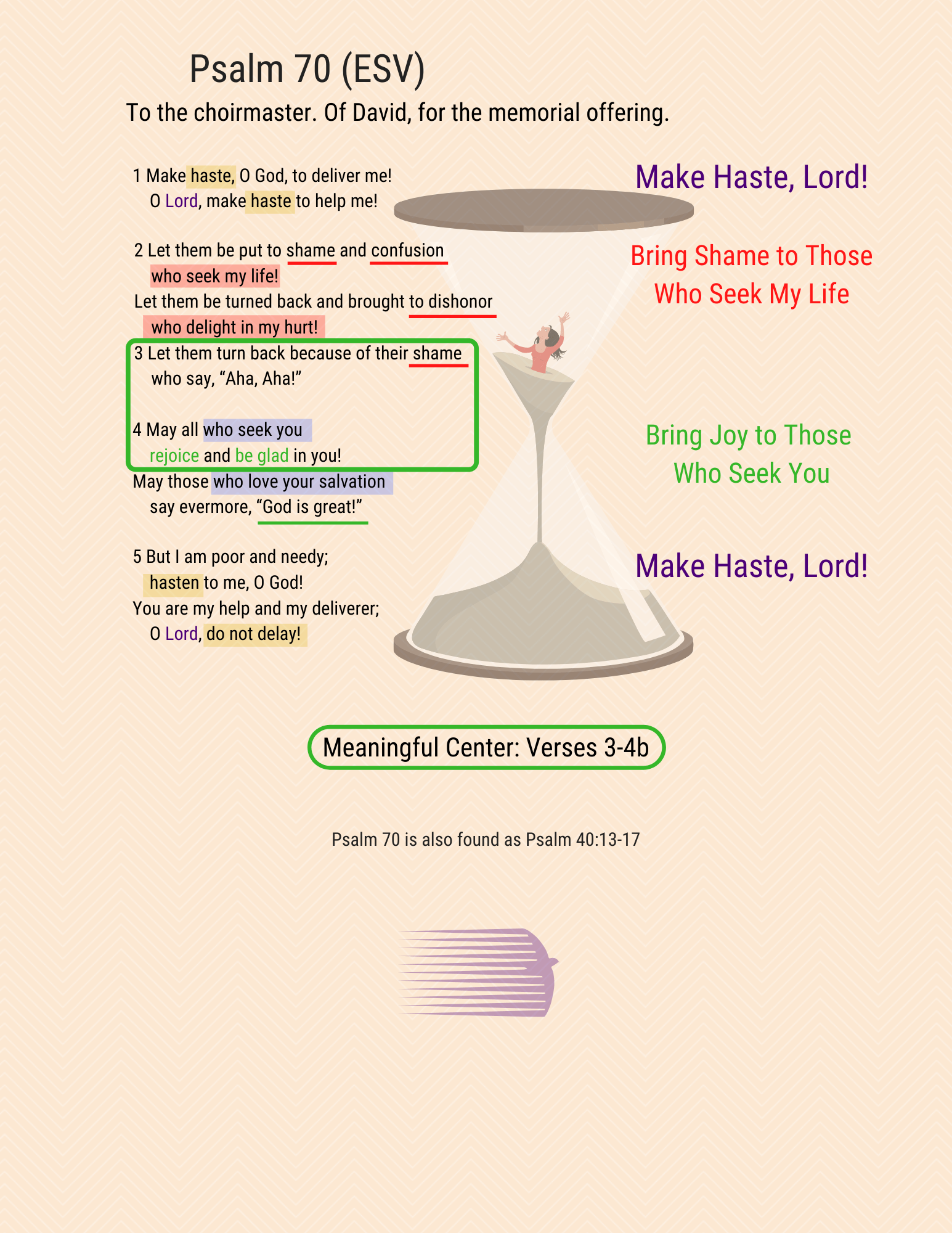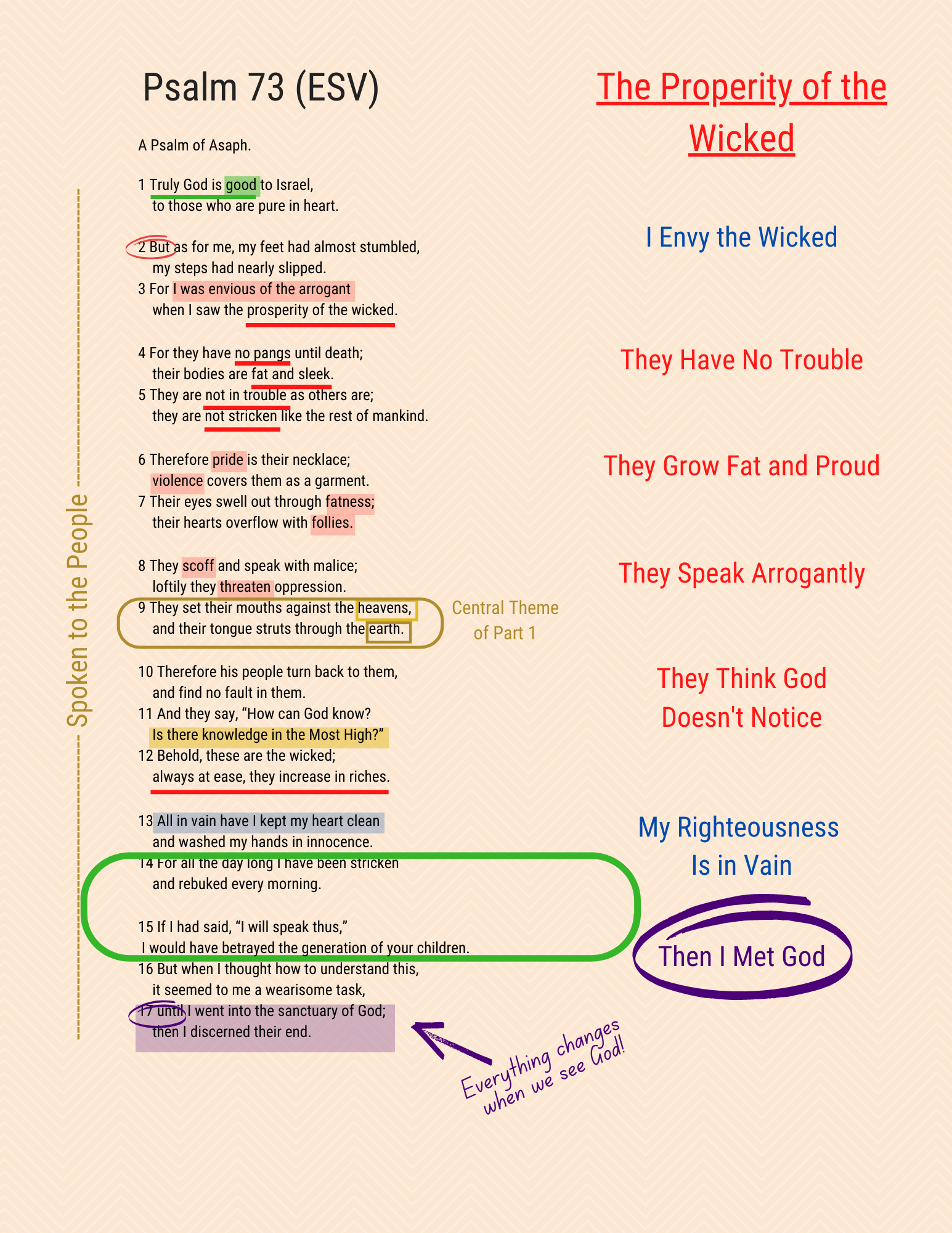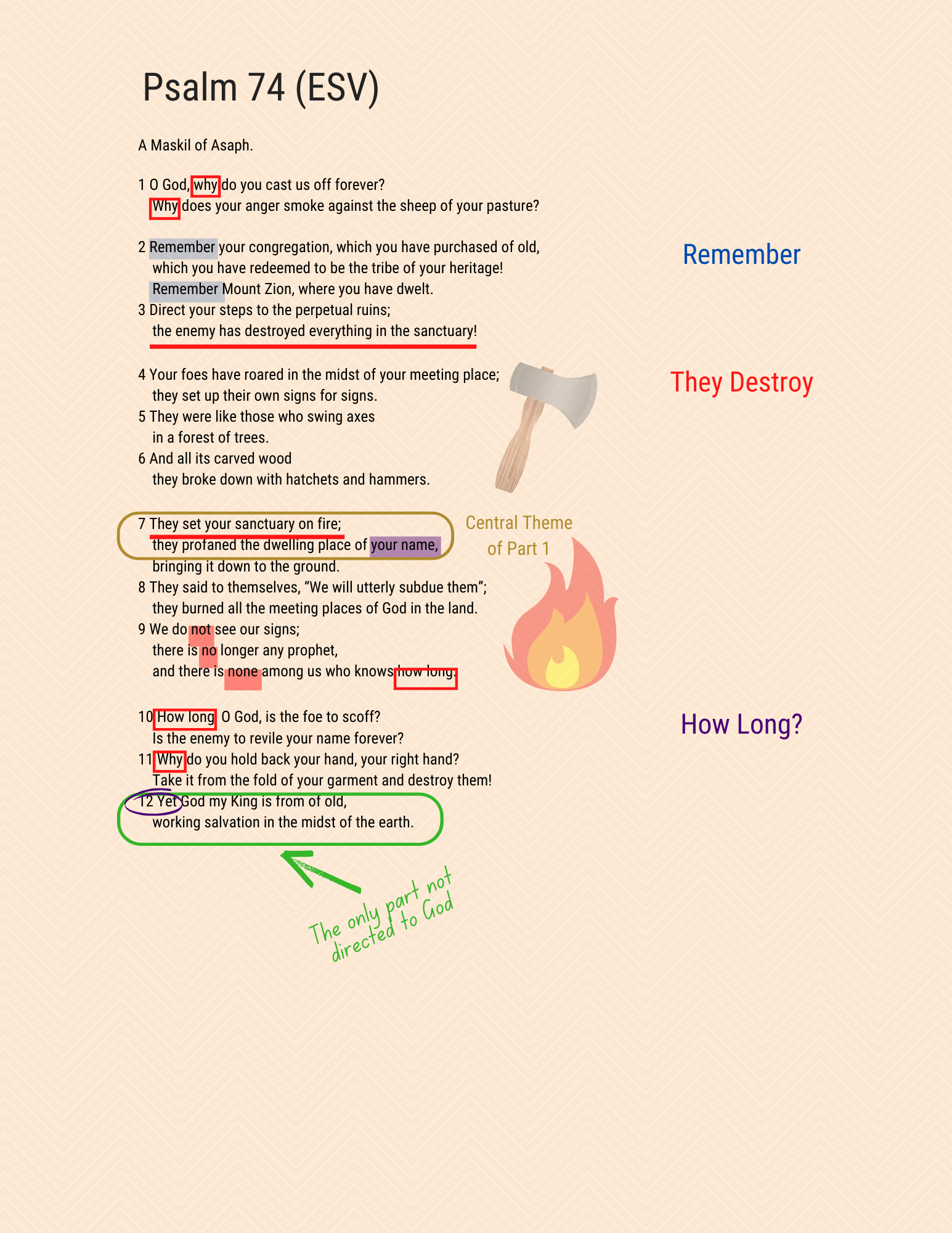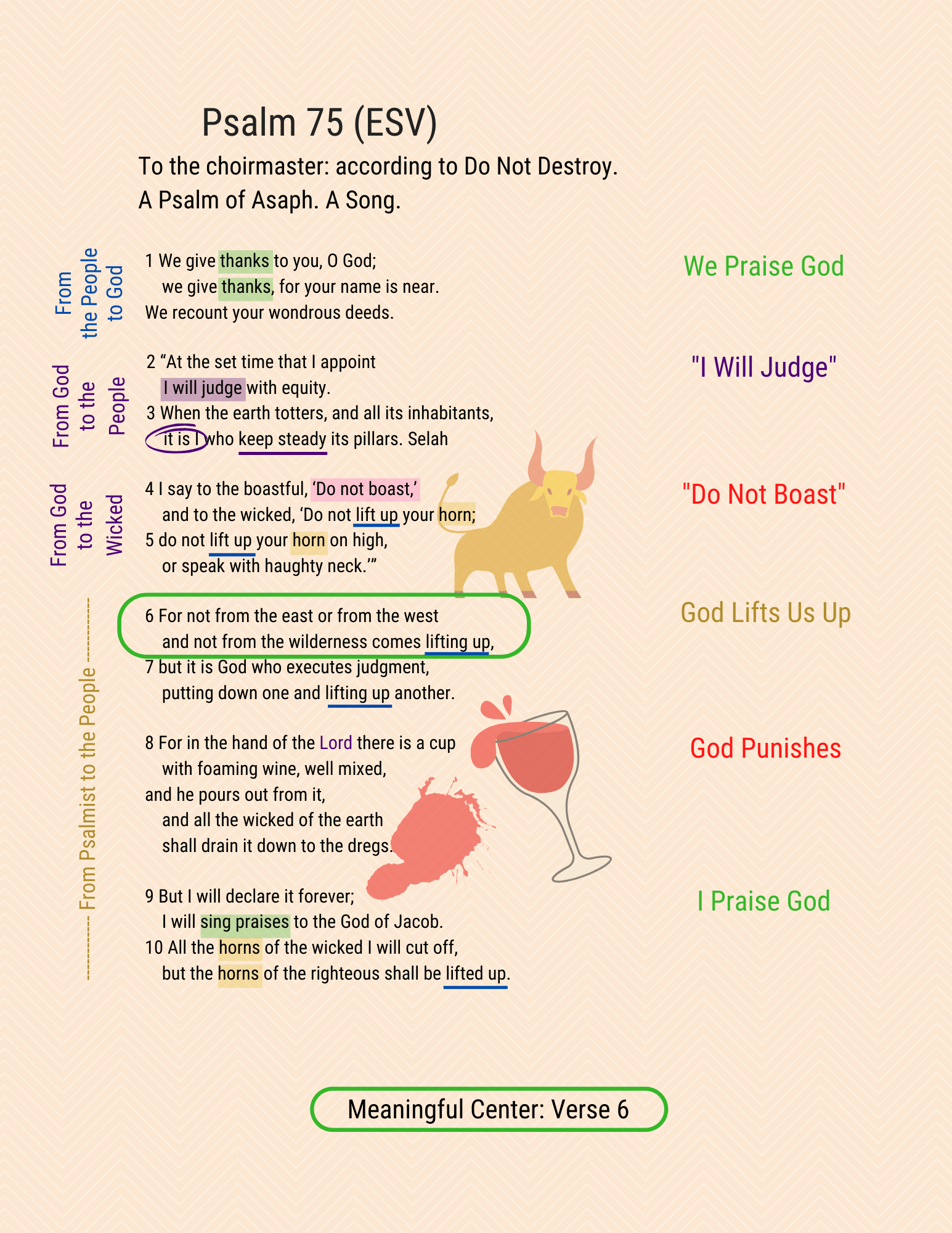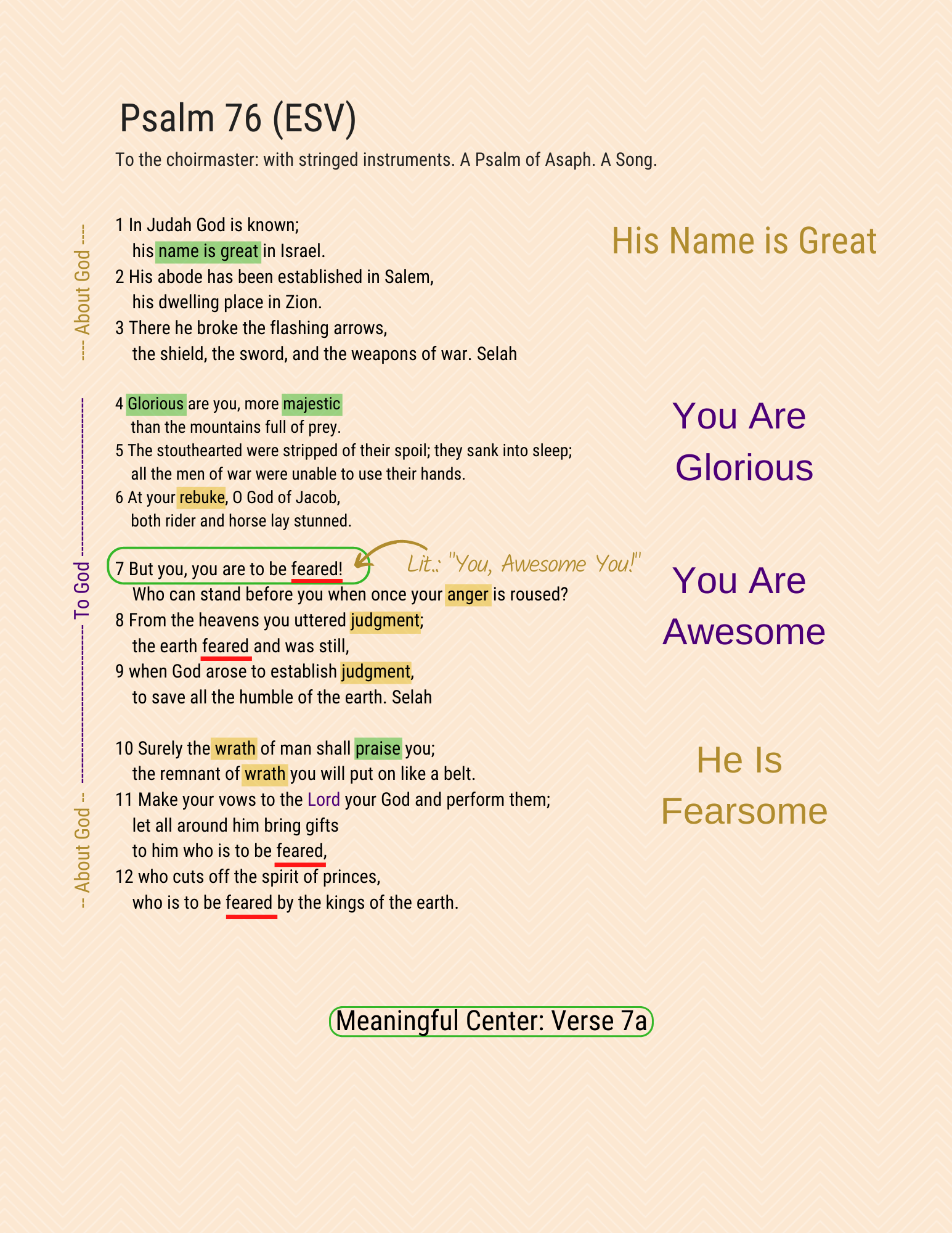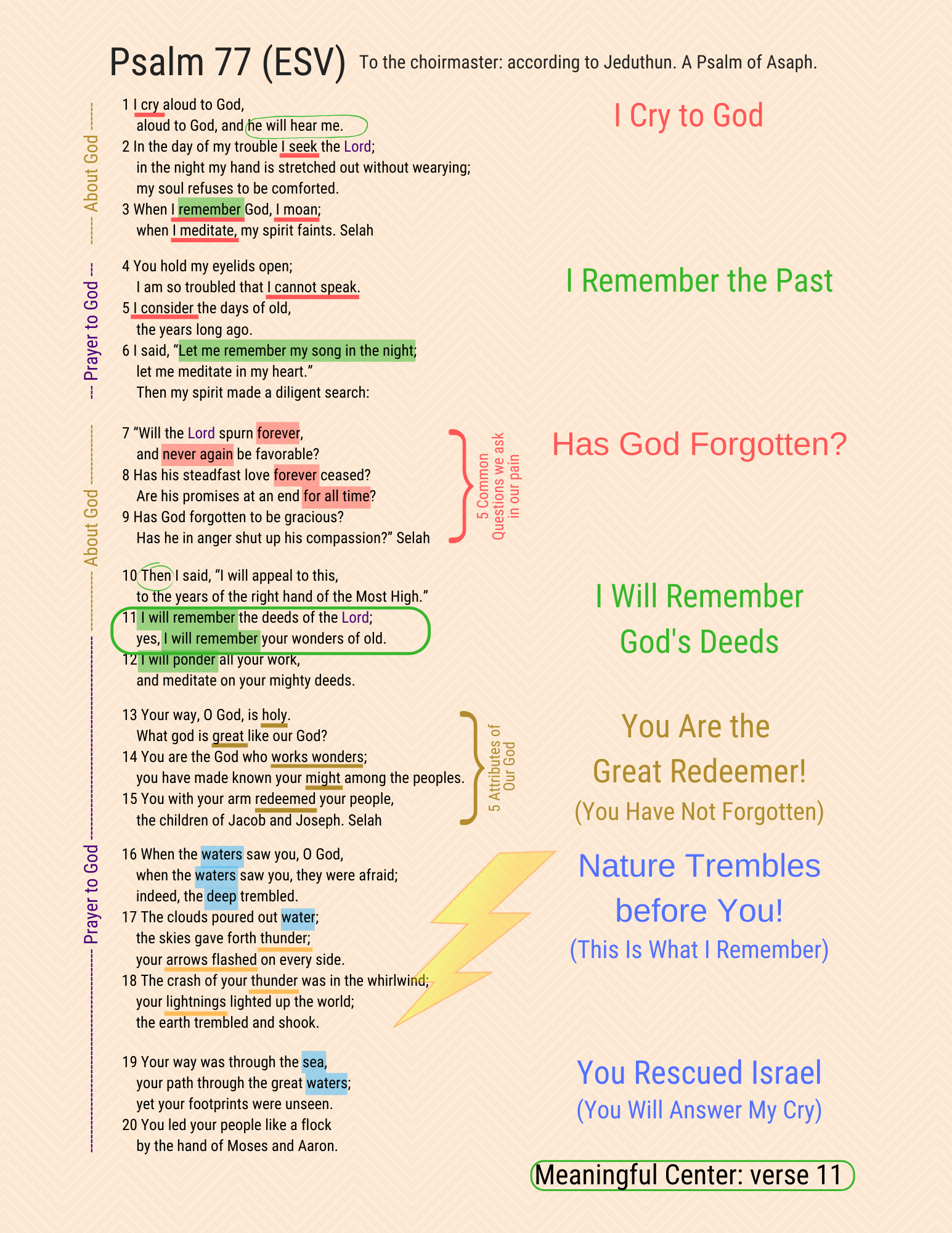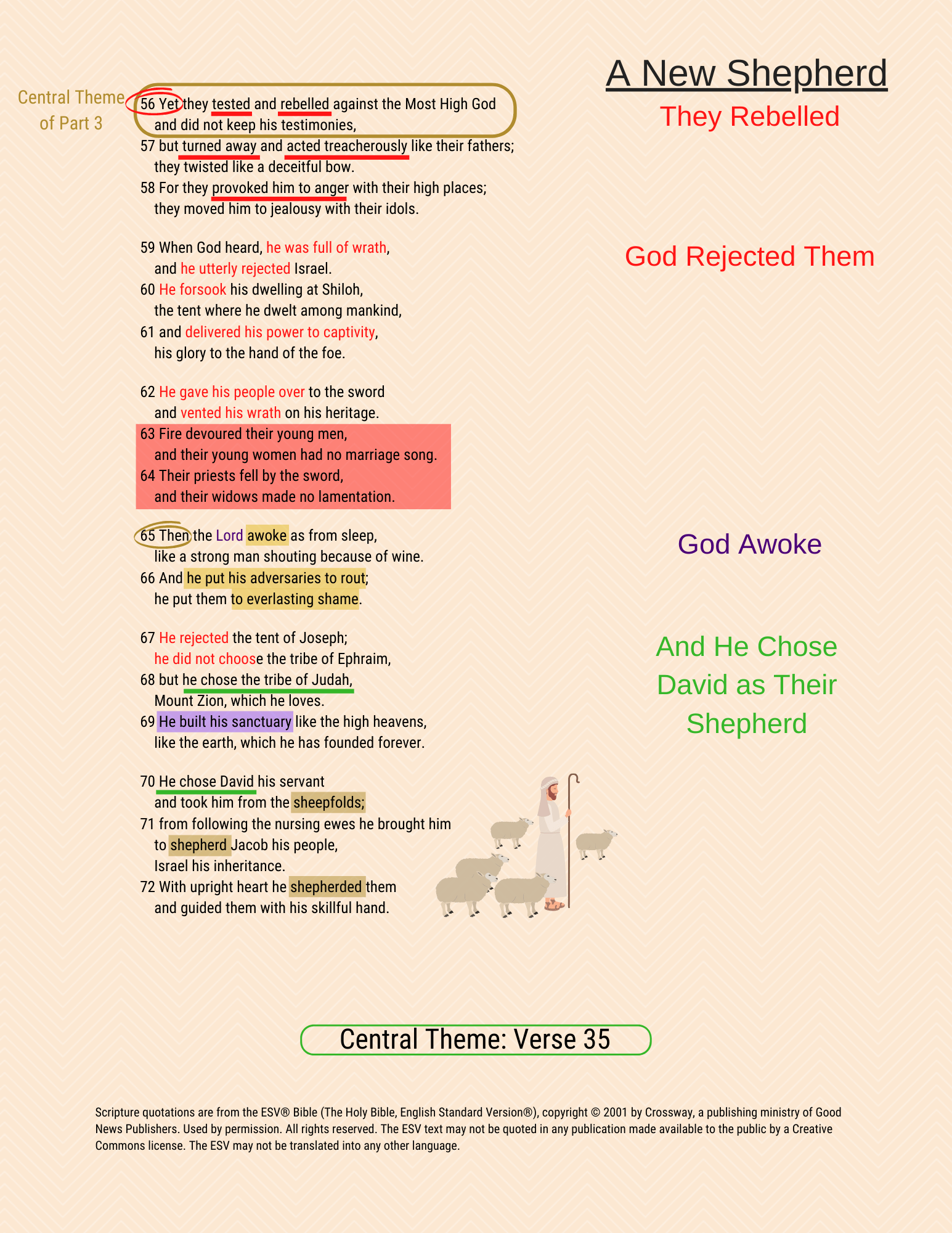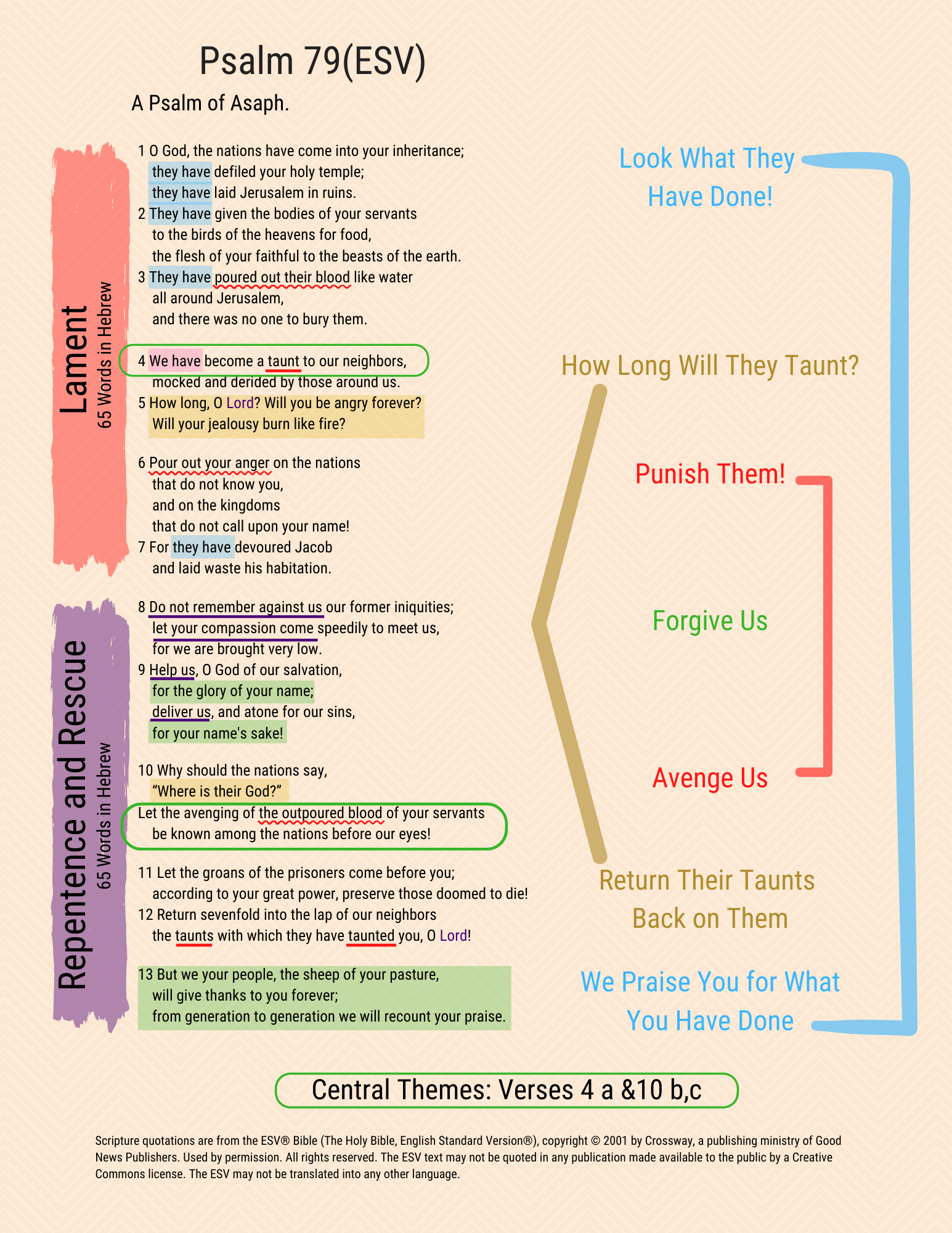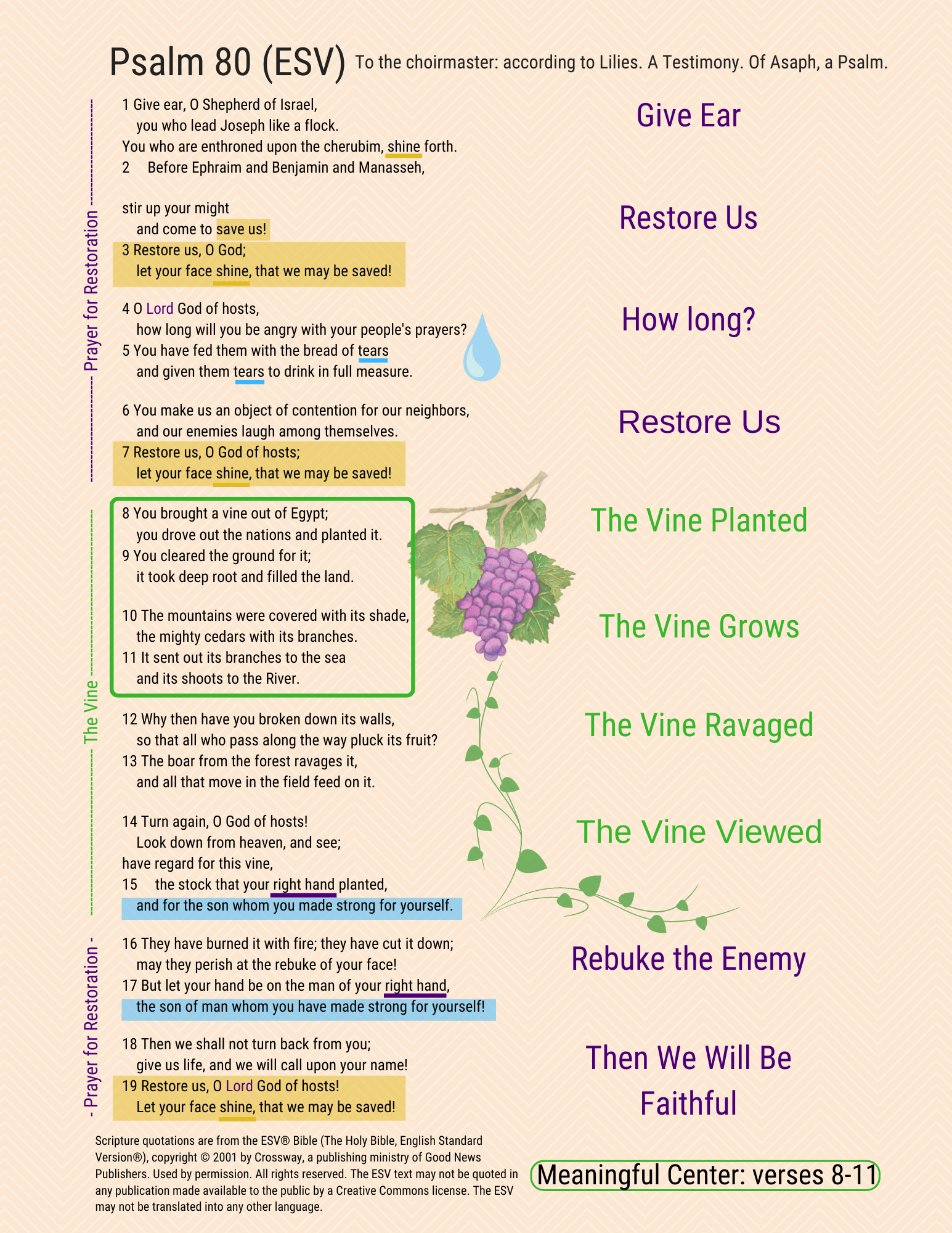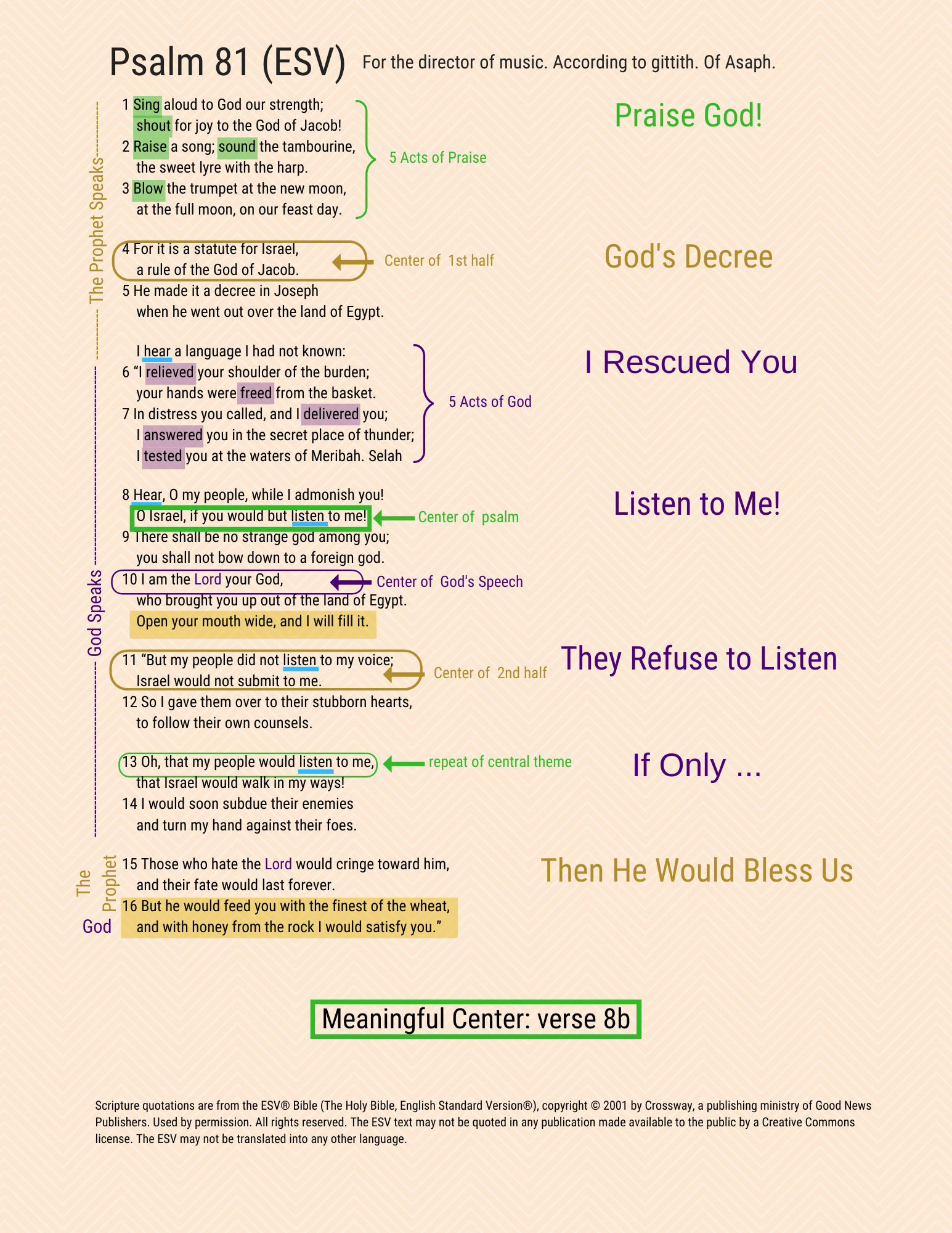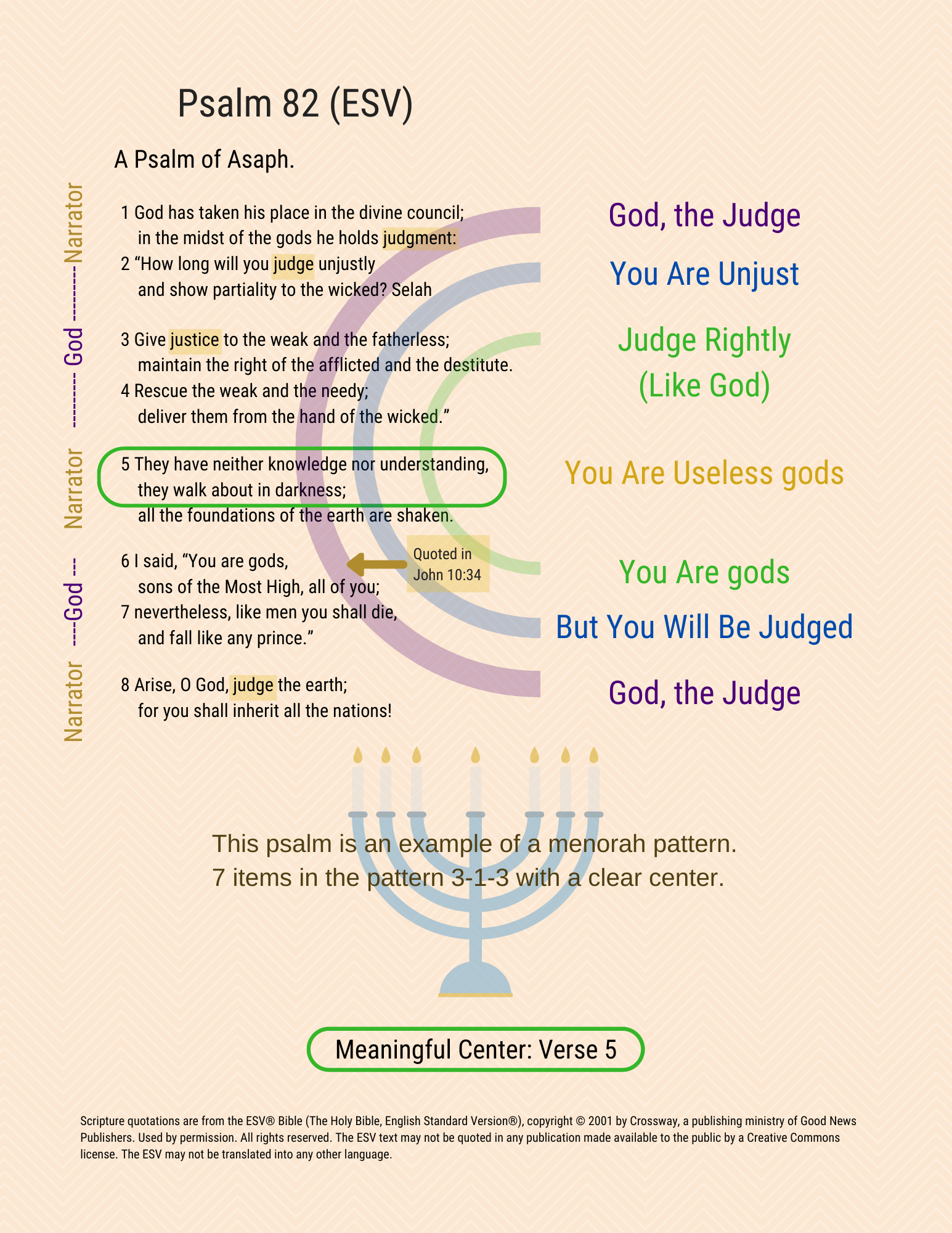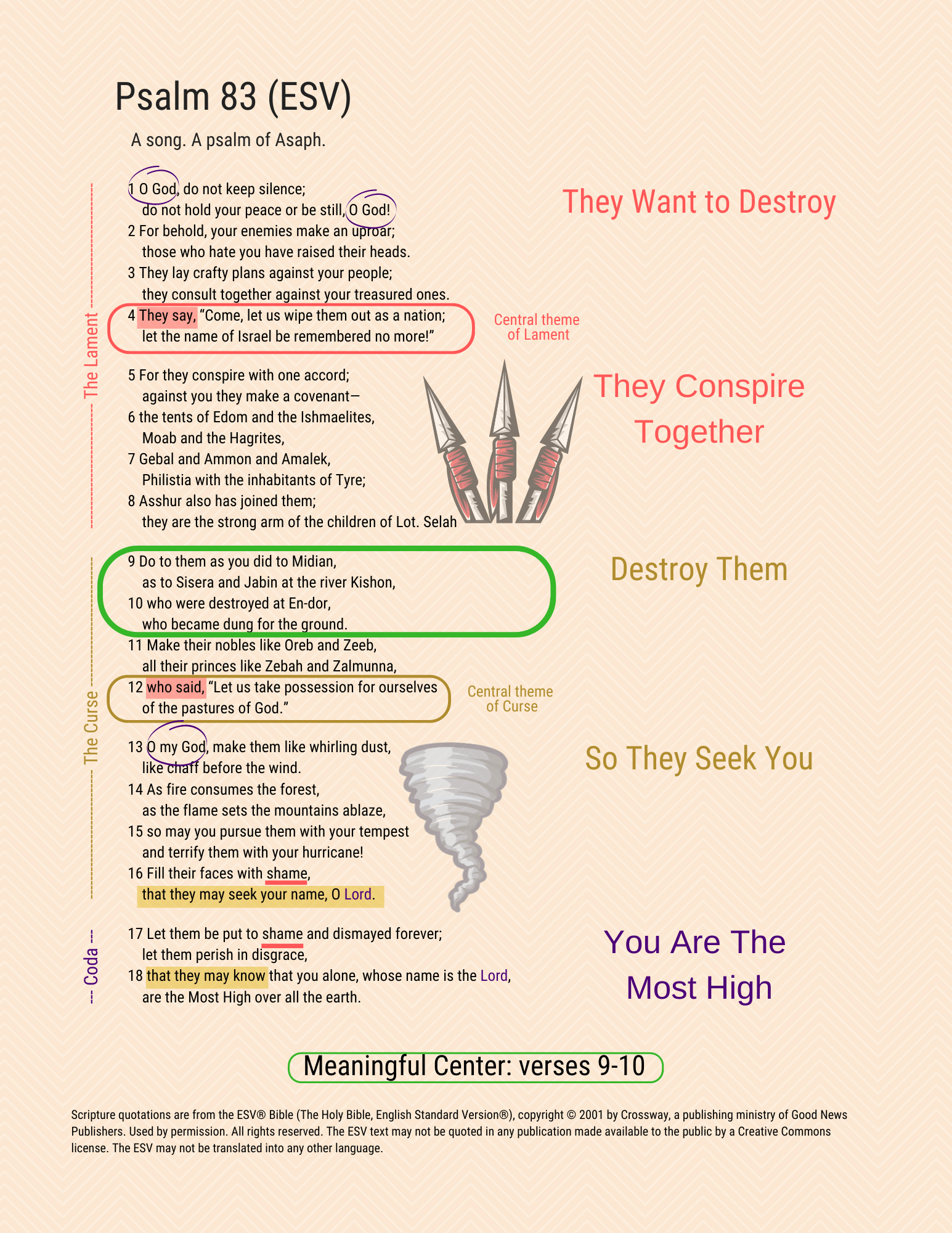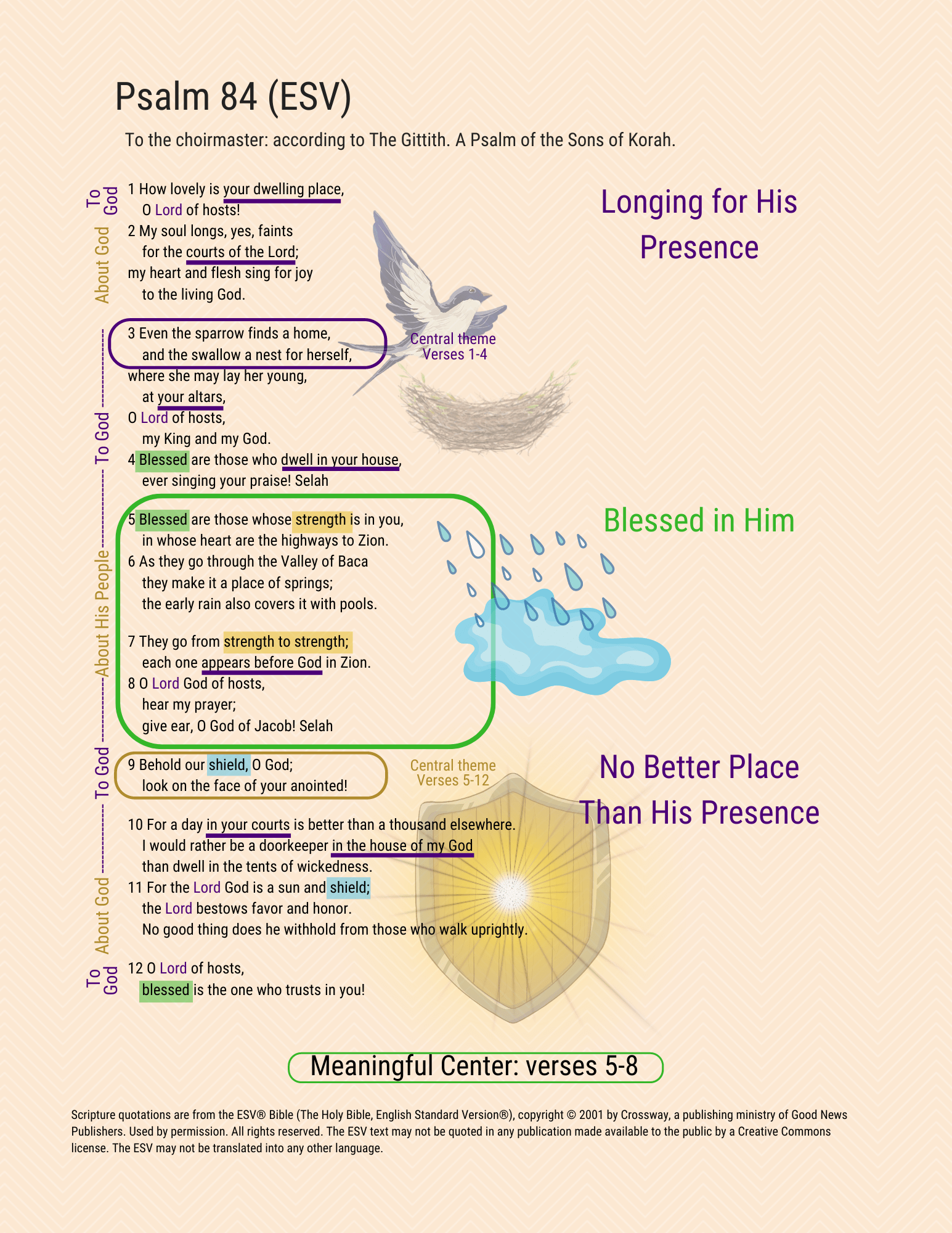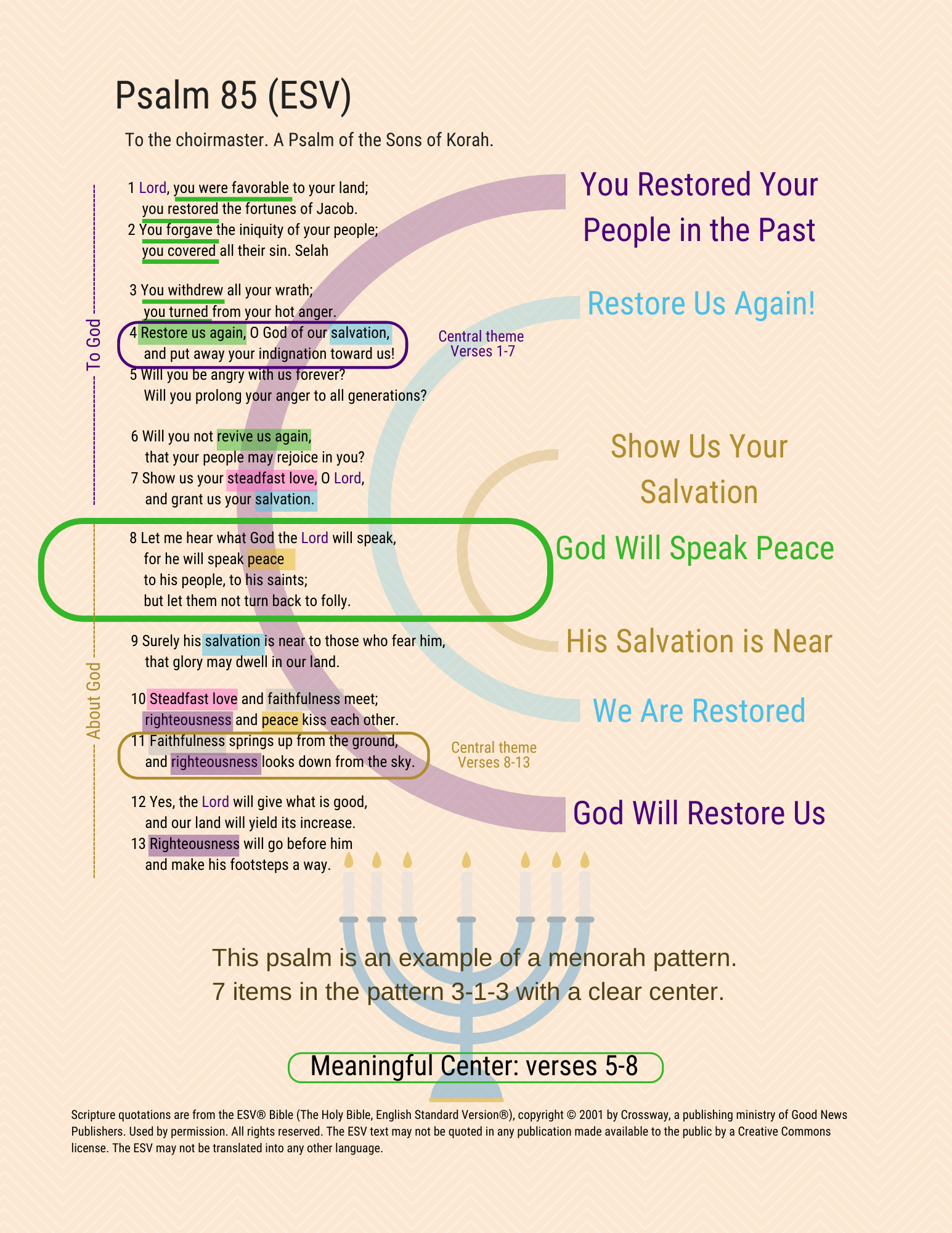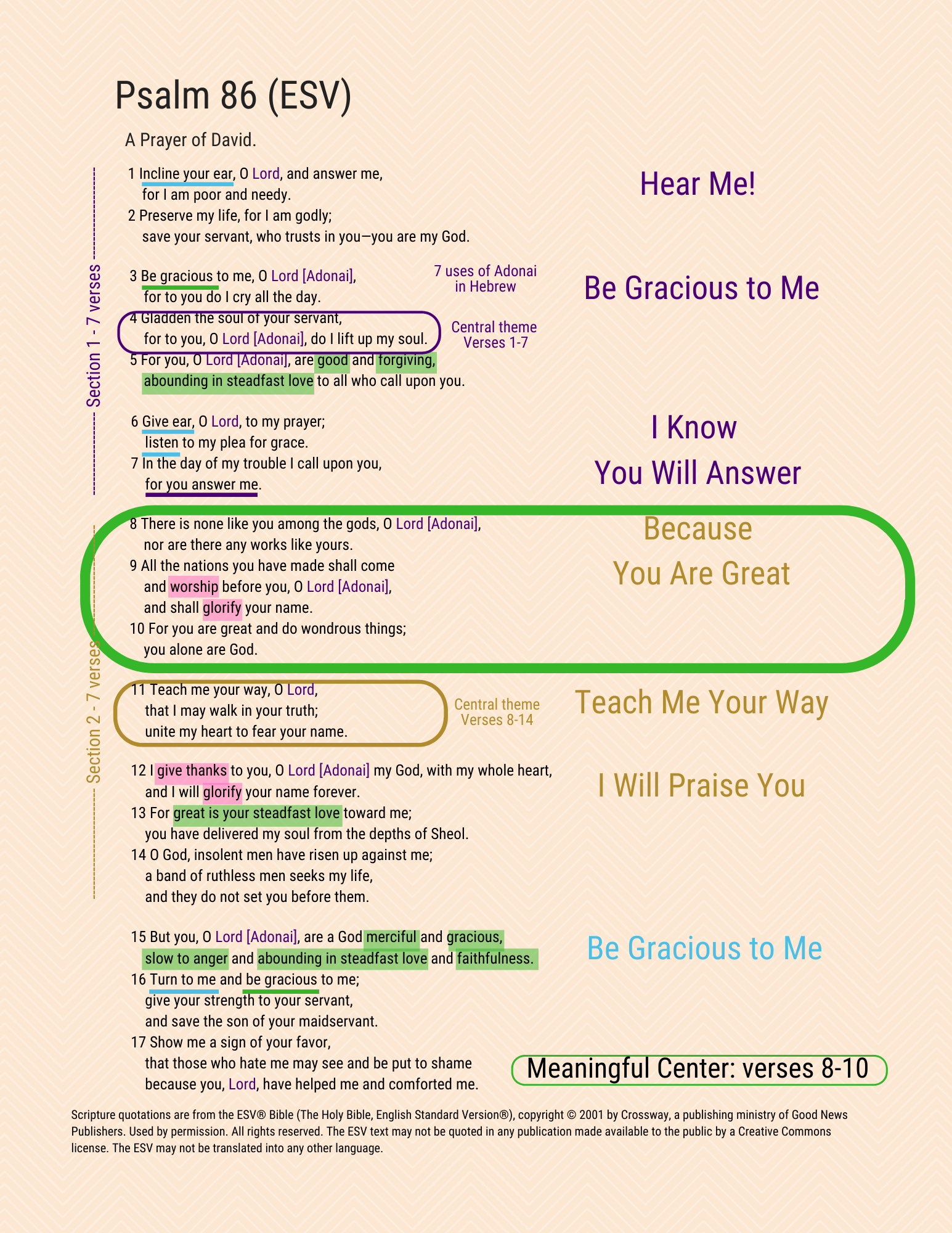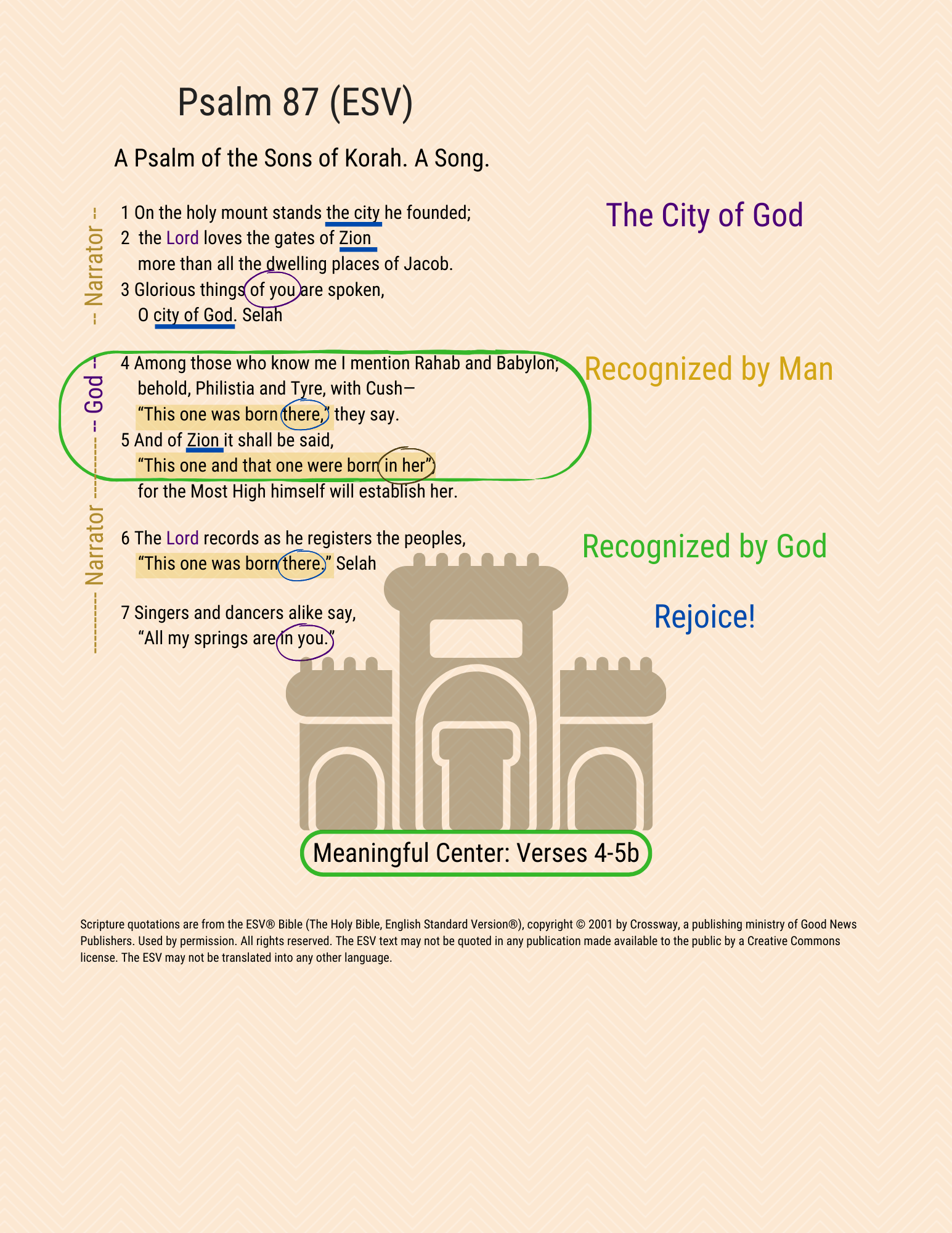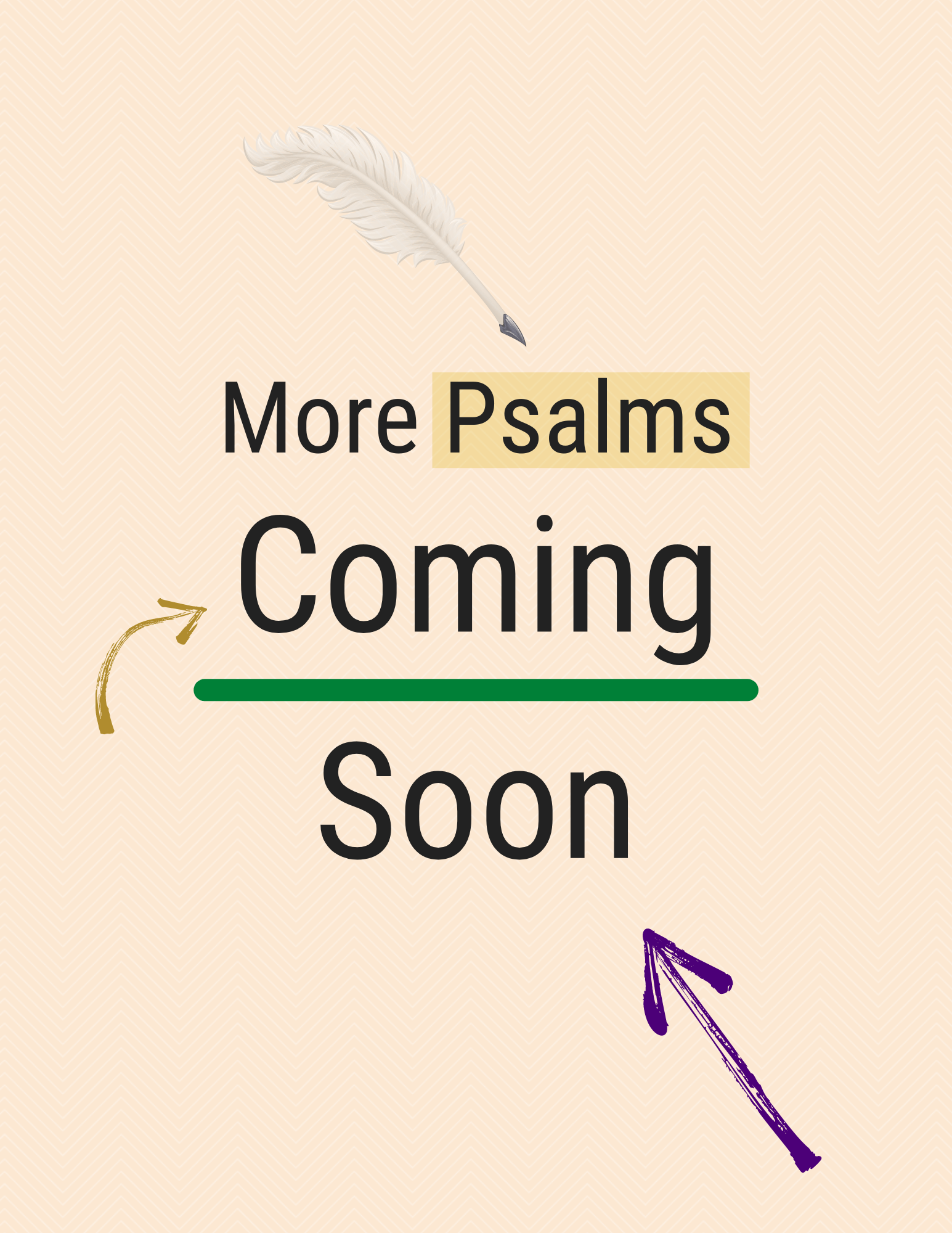Introduction
The Psalms are a collection of ancient Hebrew poems, songs and prayers written to be used in worship of God. The original Hebrew title was Tehillim which means "praises".
One can classify the Poems by their genre and/or by their structure.
Psalm Genres
Most scholars recognize three primary form of poems:
- laments,
- thanksgiving and
- hymn.
Each of these genre include specialized types. Penitential (seeking forgiveness) and Imprecatory (cursing) Psalms are specialized laments. Salvation History and Psalms of Trust are forms of thanksgiving.
Another way scholars group the psalms are by topic rather than form. The most common topics are:
- Liturgical,
- Royal,
- Covenant,
- Songs of Zion,
- Wisdom,
- Poems of the Law and
- Messianic
Dennis Bratcher has made a table showing many of the genres of psalms.
Psalm Structures
There are various structural devices that can be used to better understand and categorize psalms.
The meaningful center is an important key structural device in many of the songs. The center word, phrase or verse is often a summary of the overall theme of the poem.
There are two common compositional devices the authors use to structure the songs:
- Alphabetic Acrostic
- Menorah Pattern - poems using 7 items in a 3-1-3 pattern in imitation of the Jewish menorah used in the temple.
Although not accepted by most biblical scholars, some scholars have also argued, quite persuasively, that many of the psalms are organized based upon a very carefully designed numerical structure. Casper Labuschagne's General Introduction to Logotechnical Analysis gives a rather detailed description of the use of numbers to structure the Old Testament content.
The editors of the Psalms divided it into five books, each of which closes with a doxology. There is no agreed upon reason for the number of divisions or why certain psalms are in each book. Commentators traditionally have drawn parallels between the 5 books of Moses and the 5 books of the psalms. Dr. Ernest Martin also argues for a parallel with a five-fold division of the Old Testament called the Megillot. You can read his complete description here.
| Psalms | Law | Megillot | Season |
|---|---|---|---|
| Book 1 | Genesis | Song of Songs | Passover |
| Book 2 | Exodus | Ruth | Pentecost |
| Book 3 | Leviticus | Lamentations | 9/10th of Ab |
| Book 4 | Numbers | Ecclesiastes | Tabernacles |
| Book 5 | Deuteronomy | Esther | Purim |
Book I - The Blessed Person
Book 1 is made up of Psalms 1-41 and is comprised almost exclusively of songs written by David. The first two appear to be an introduction to the Davidic cycle of Book 1. As introductory poems they set up the theme of the ideal king, David, who delights in God's law and is specifically anointed by God as His unique representative king.
Throughout these psalms a few themes stand out:
- Happiness is found in God's word and living it out through compassion to others. Happy or "blessed" is the first word in both Psalm 1 and Psalm 41, forming bookends to the collection.
- David's firm trust in God. Over and over in these psalms we see David crying out for God's help and mercy, yet never doubting that God will eventually come to his rescue.
Below are links to posts on each of the psalms in Book I.
Book II - Prayers of the Outcasts
Book II is Psalms 42-72 and includes poems written by the Sons of Korah, David, Asaph and Solomon. These psalms continue the cry for help and many of the poems are written when David was in exile running from King Saul paralleling the book of Exodus.
Below are links to posts on psalms in Book II.
Book III - Songs of Distress
Book III is Psalms 73-89 and includes 11 songs by Asaph, poems by the Sons of Korah and one by David. This is the darkest of the books making a clear parallel to the book of Lamentations.
Book IV - The Lord Reigns
Book IV is Psalms 90-106 and is made up primarily of anonymous poems with only three naming their author: two by David and one by Moses. It responds to Book II by reminding us that God is still in control. Psalm 93, 97 and 99 all begin by reminding us that "the Lord Reigns".
Book V - Songs for Home
The last book, Psalms 107-150, continues to have many anonymous poems but it also includes a significant number by David and one by Solomon. The songs are much more positive than many of the previous books and include the Songs of Assent for pilgrims traveling to Jerusalem and the concluding Five Hallelujahs - the final grand Doxology of the Psalms.

